2024 Press Freedom Forum: Protecting a Free Press from Ever-Growing Dangers

WASHINGTON -- The Association of Foreign Press Correspondents in the USA (AFPC-USA) honored Jonathan Karl of ABC News with its 2024 Press Freedom Award and presented two Russian exiled journalists with Press Freedom Grants at its forum this year marking World Press Freedom Day.
Some 100 journalists, corporate partners, leaders of foundations and NGOs attended this year’s event at the National Press Club in Washington, D.C., with a focus on protecting journalists from ever-growing dangers around the globe and highlighting the increasing numbers forced into exile simply for doing their jobs.
The AFPC-USA awarded $7,000 in 2024 Press Freedom Grants, $3,500 each, to exiled Russian journalists Mikhail Rubin and Elizaveta Kirpanova, both of whom had to leave their homes and country because of the dangers they faced for writing the truth about Vladimir Putin’s Russia.
AFPC-USA Chairwoman Nancy Prager-Kamel opened the event on May 2 with a chilling reminder of the cost. “Last year was the worst year on record for the death – incidental or intentional – of the brave men and women who literally put themselves in grave danger to report and hold accountable those responsible for the atrocities that are occurring around the world today,” she said. “They are truly the canaries in the coal mine.
“Thirty years ago, the U.N. General Assembly established World Press Freedom Day as an opportunity to bring the international community together each year to recognize the importance of press freedom and the foundational role journalists play in supporting human rights and free societies,” she added, welcoming guests to the program.
The 2024 Press Freedom Award went to Karl--Chief Washington Correspondent, ABC News, and co-anchor of ‘This Week’ with George Stephanopoulos—at a time when truth is under attack in America and around the world, including dangerous, unfounded accusations by a former president and his acolytes that the press is the “enemy of the people.”
“I think that one of the real problems we have in our country right now, it's not one person. It's not Donald Trump solely,” Karl observed. “We have a situation where our divisions as a country are not simply a reflection of political differences, but literally a difference in how we view the world. We don't have a common set of facts anymore.
“You're entitled to your own opinions, but you’re not entitled to your own facts,” he added, quoting the well-known adage. “Yet, increasingly, we have alternative realities, and how do you overcome differences?
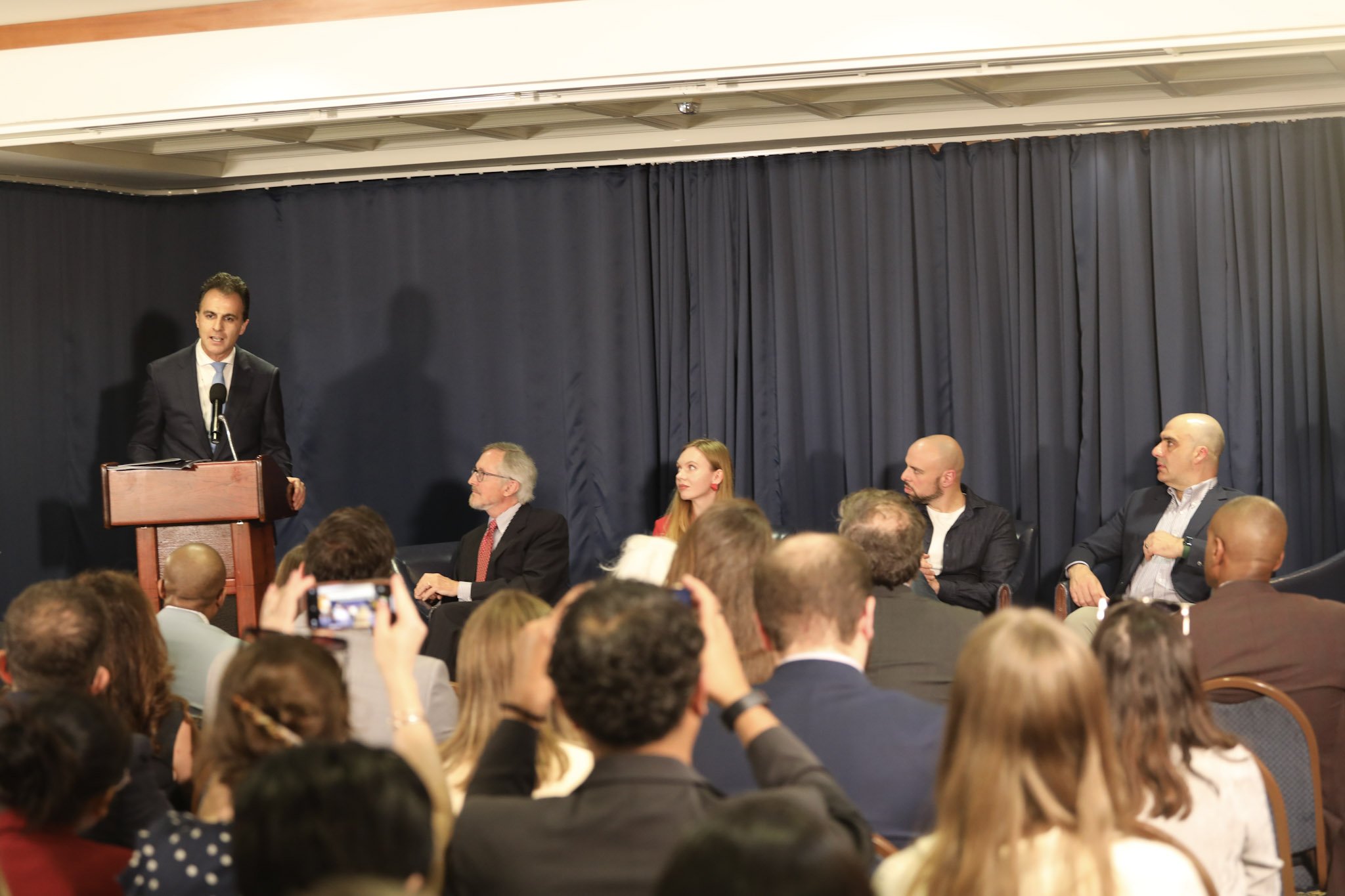
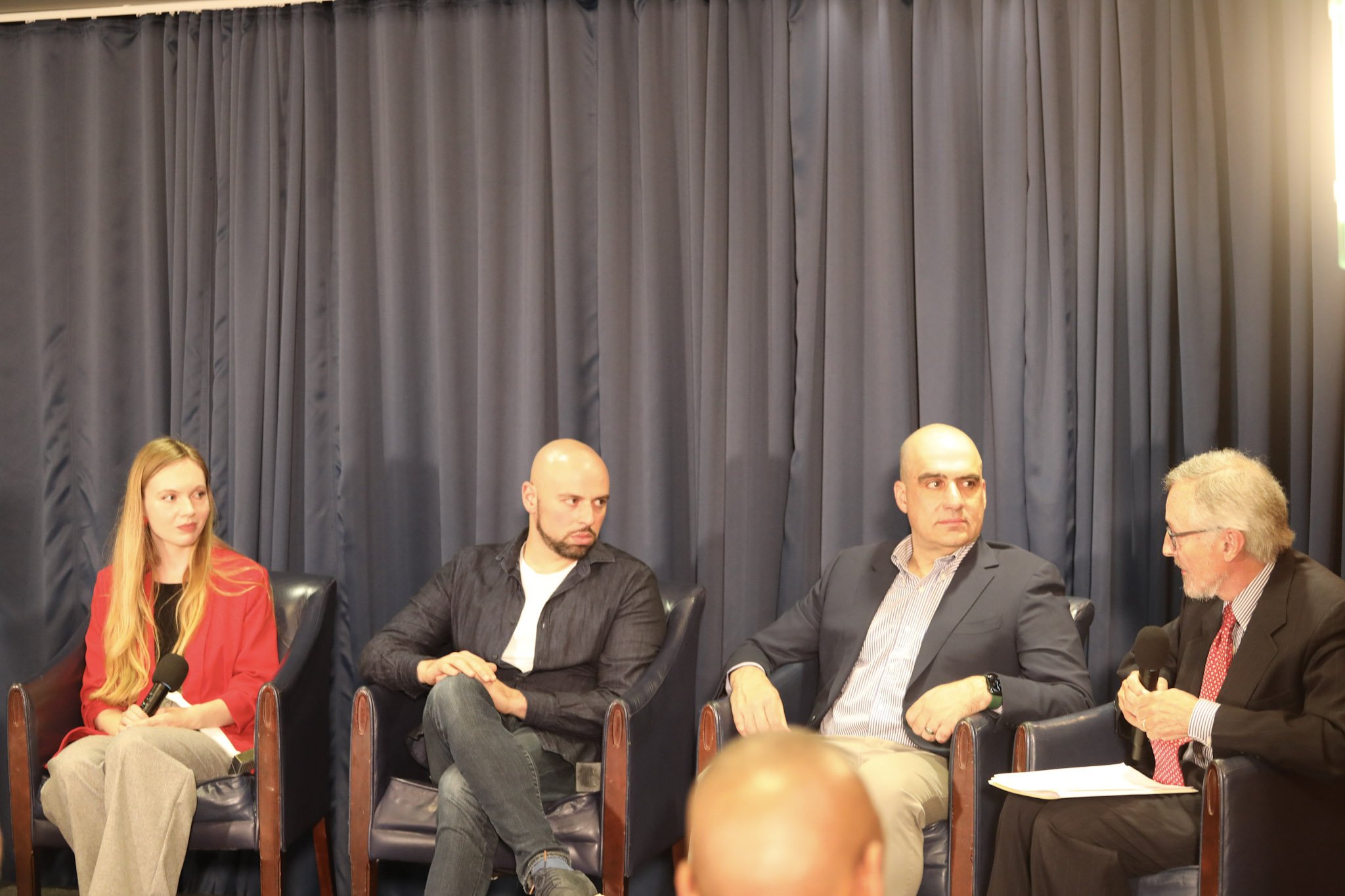
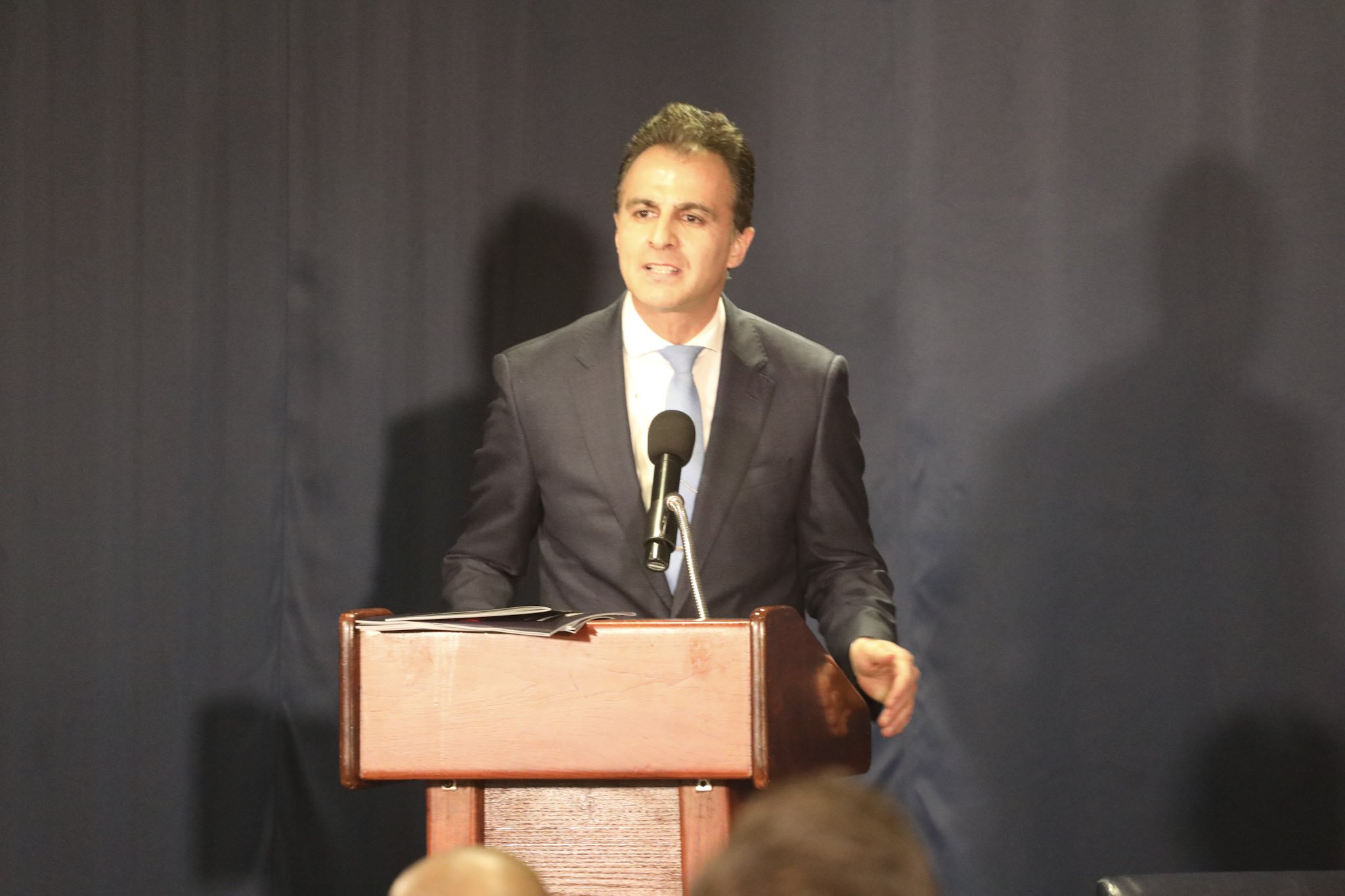
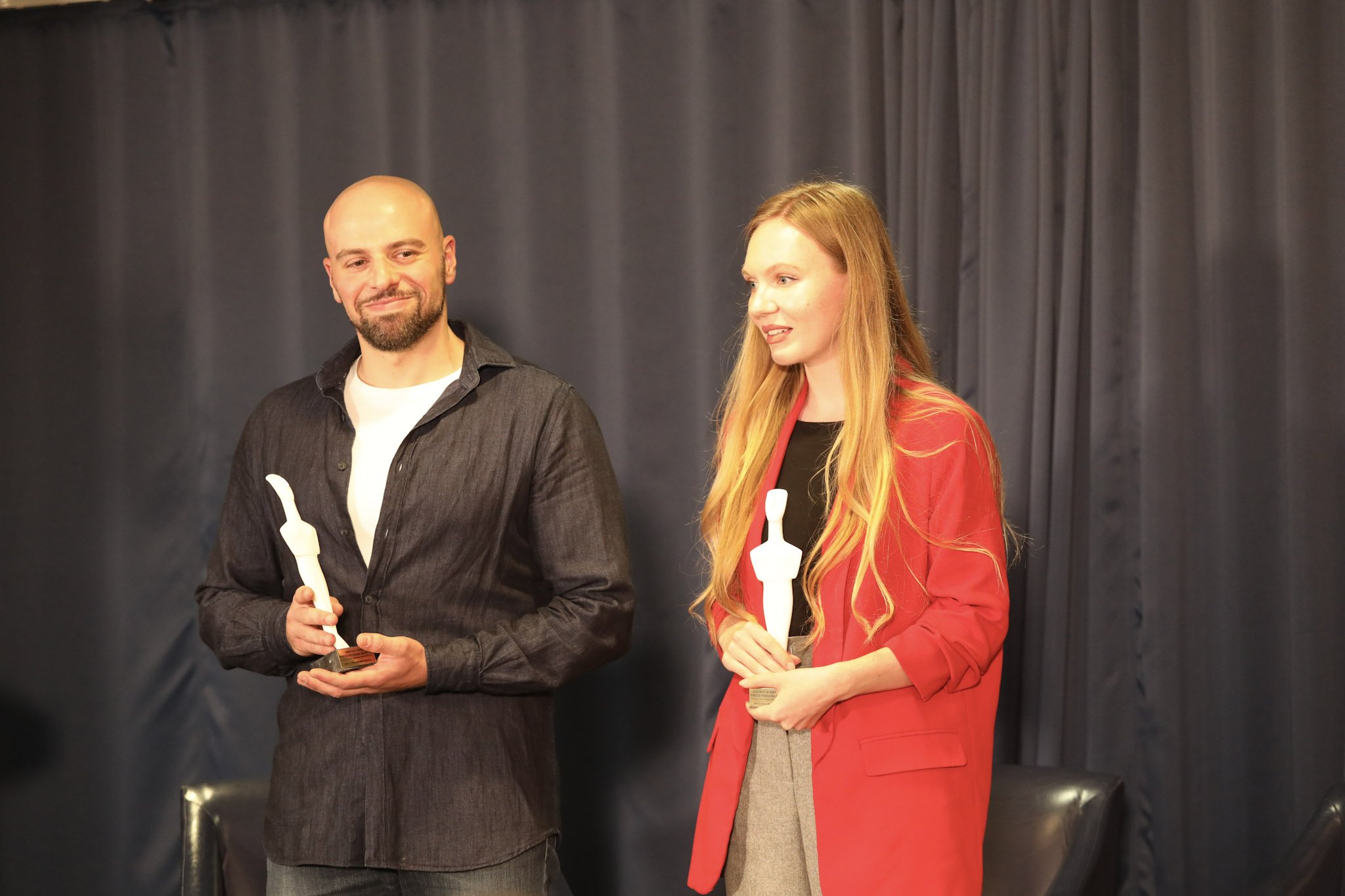
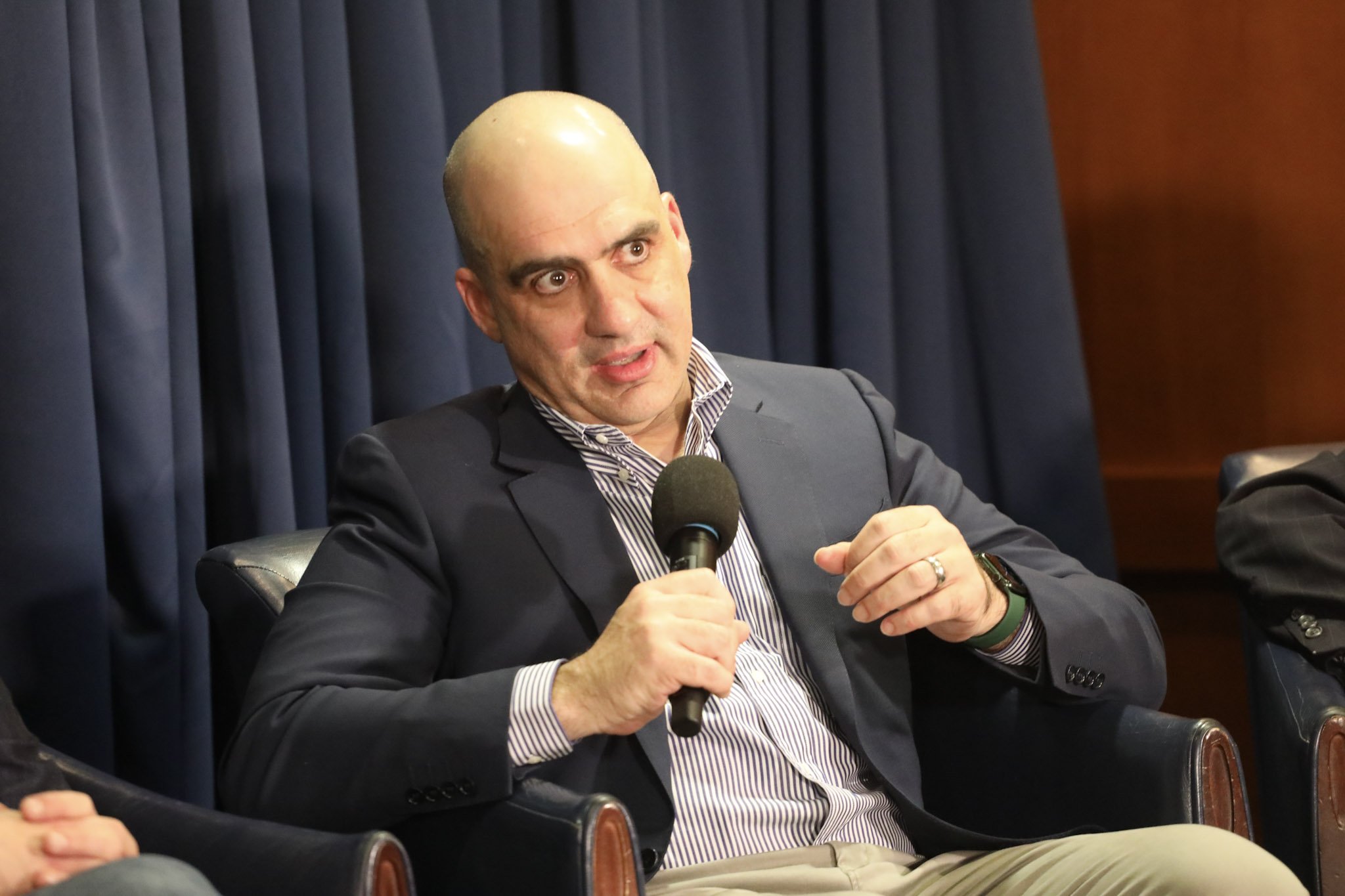
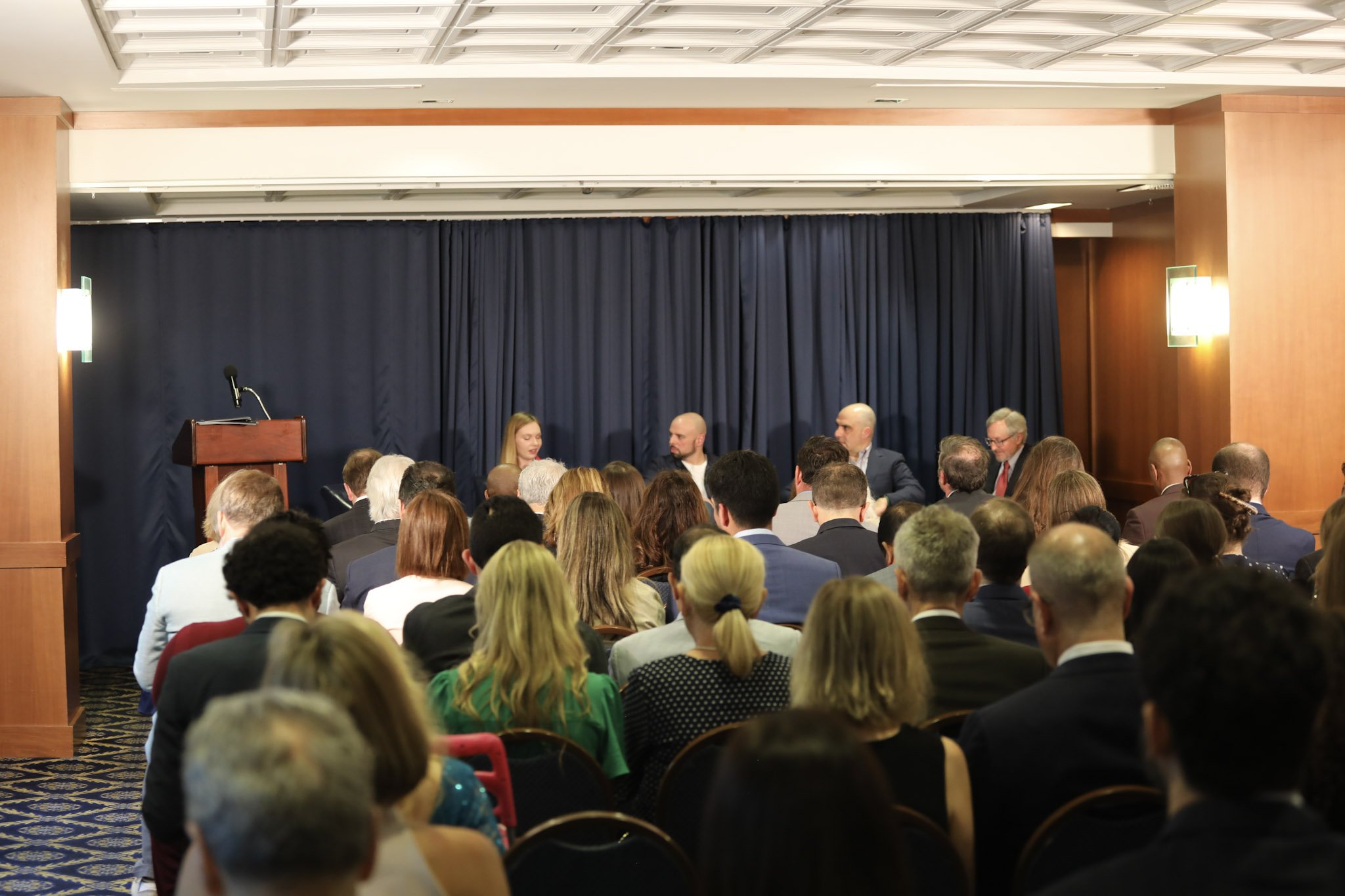
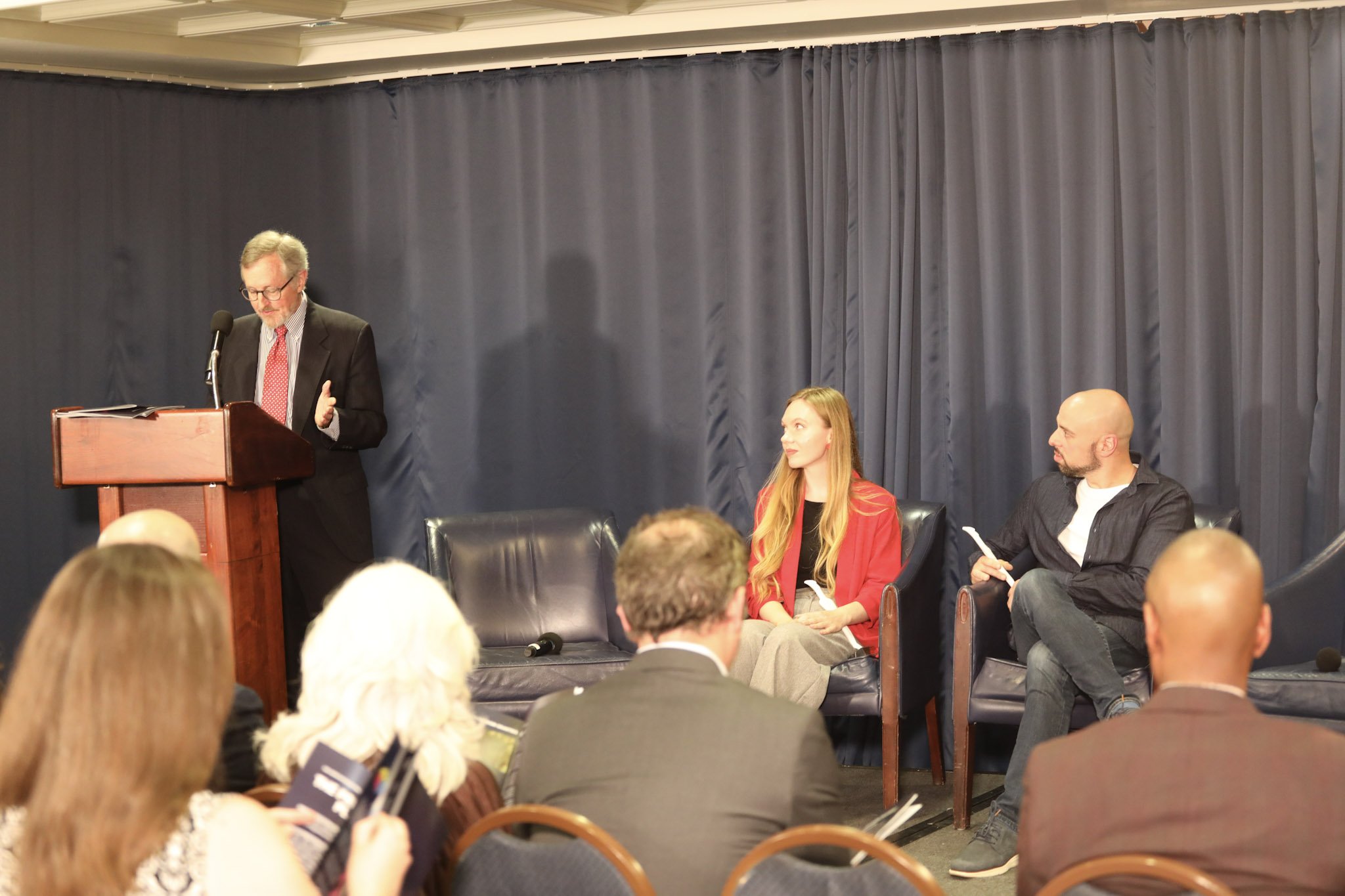
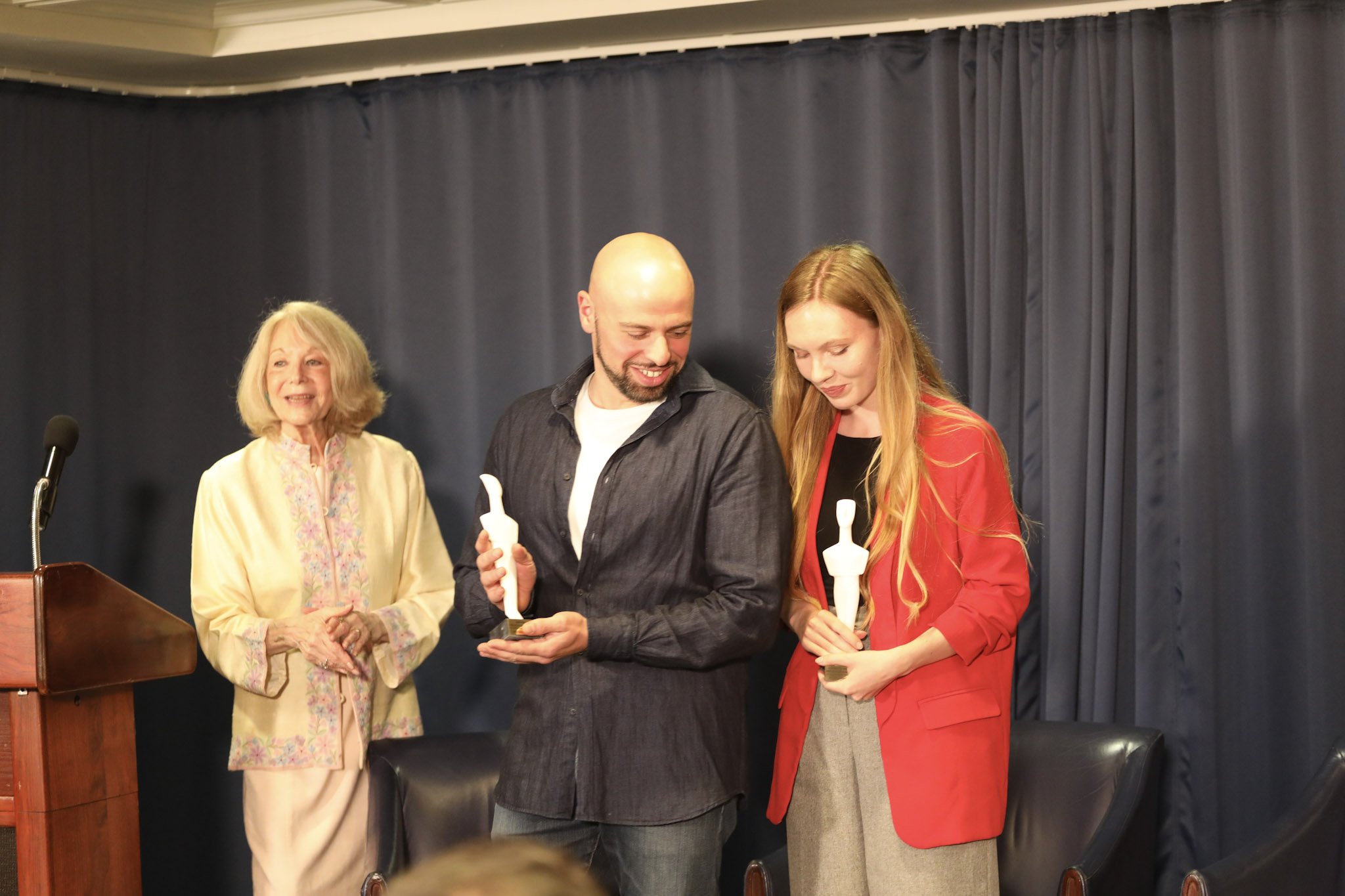
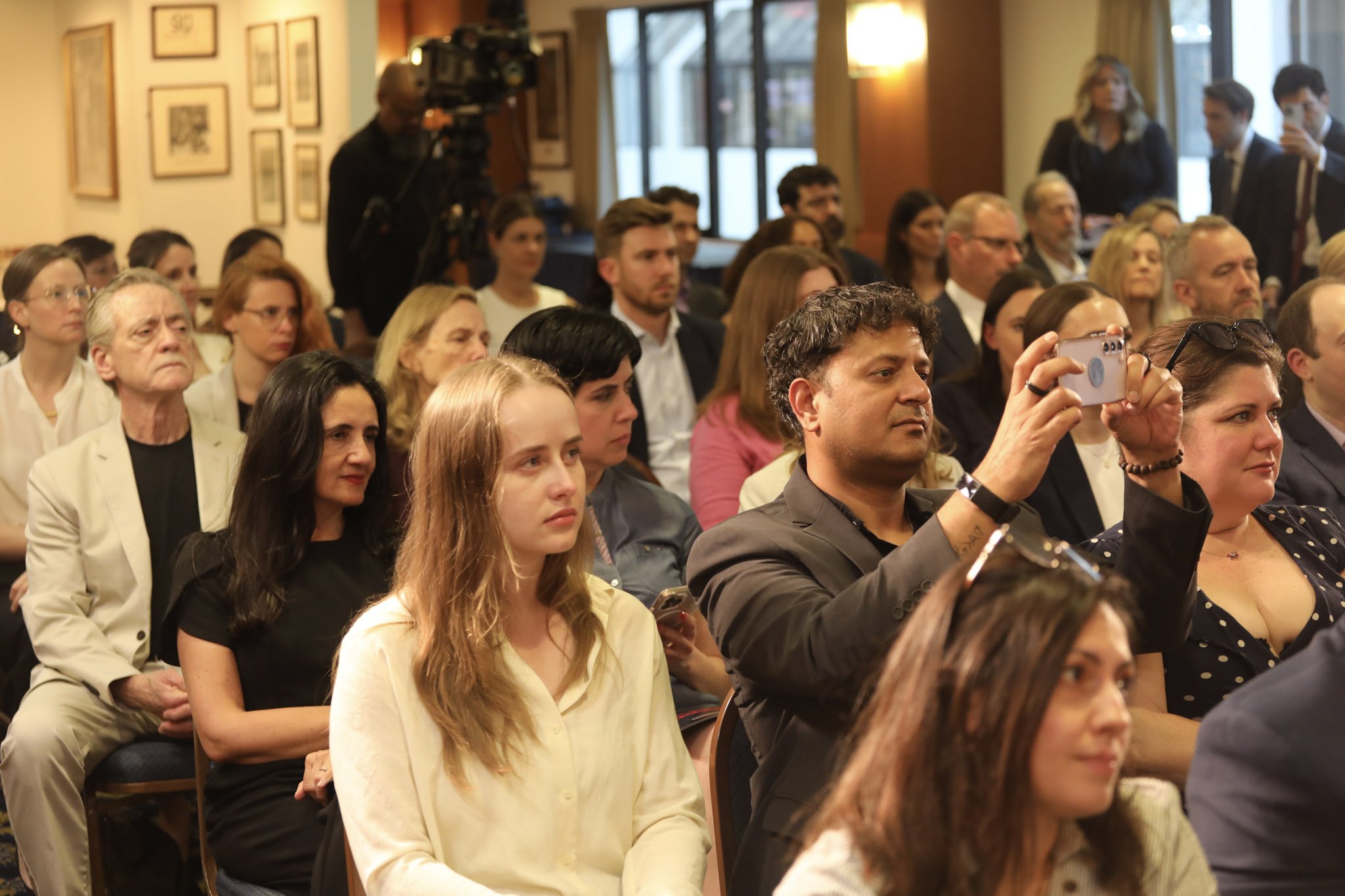
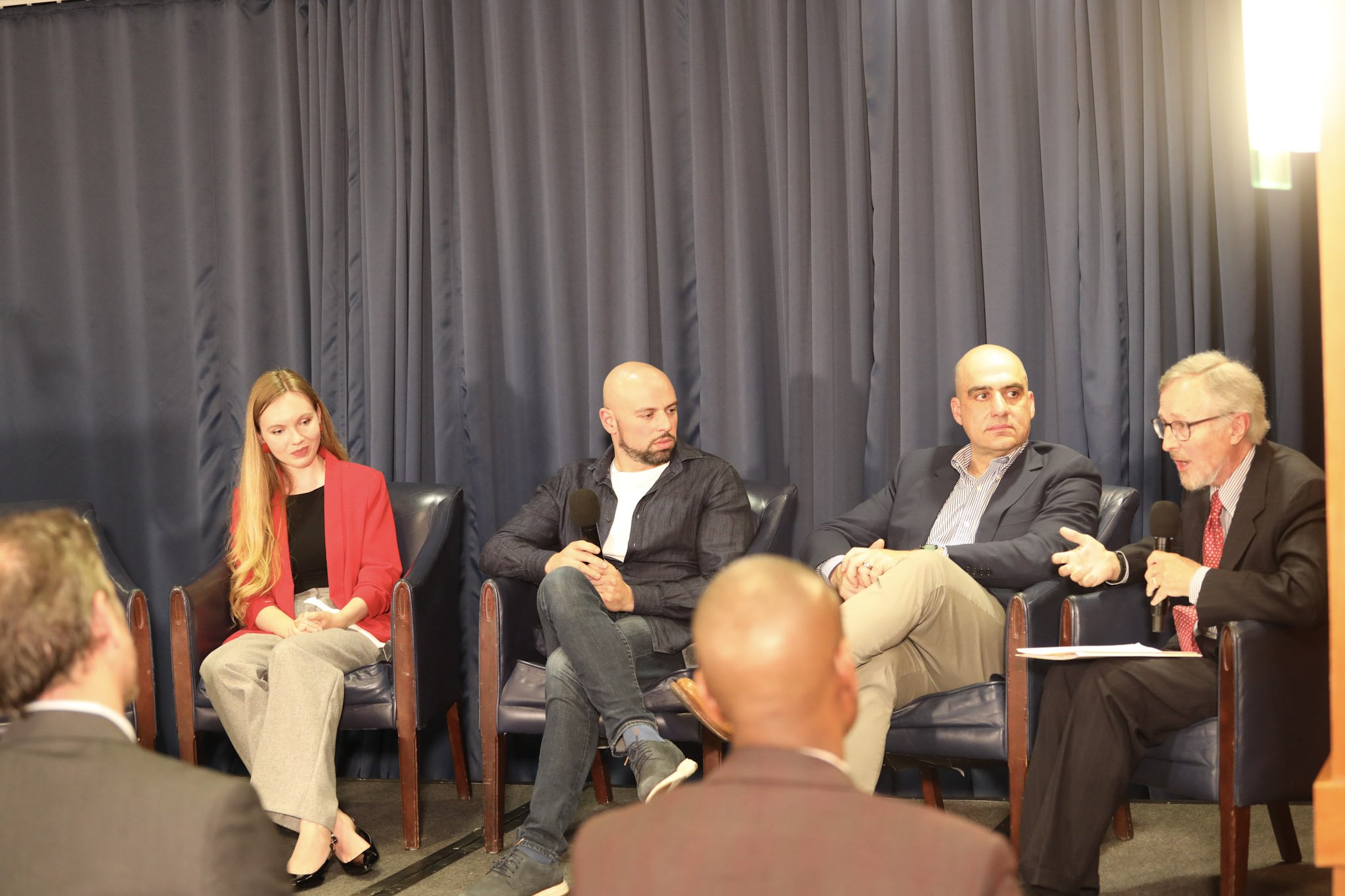
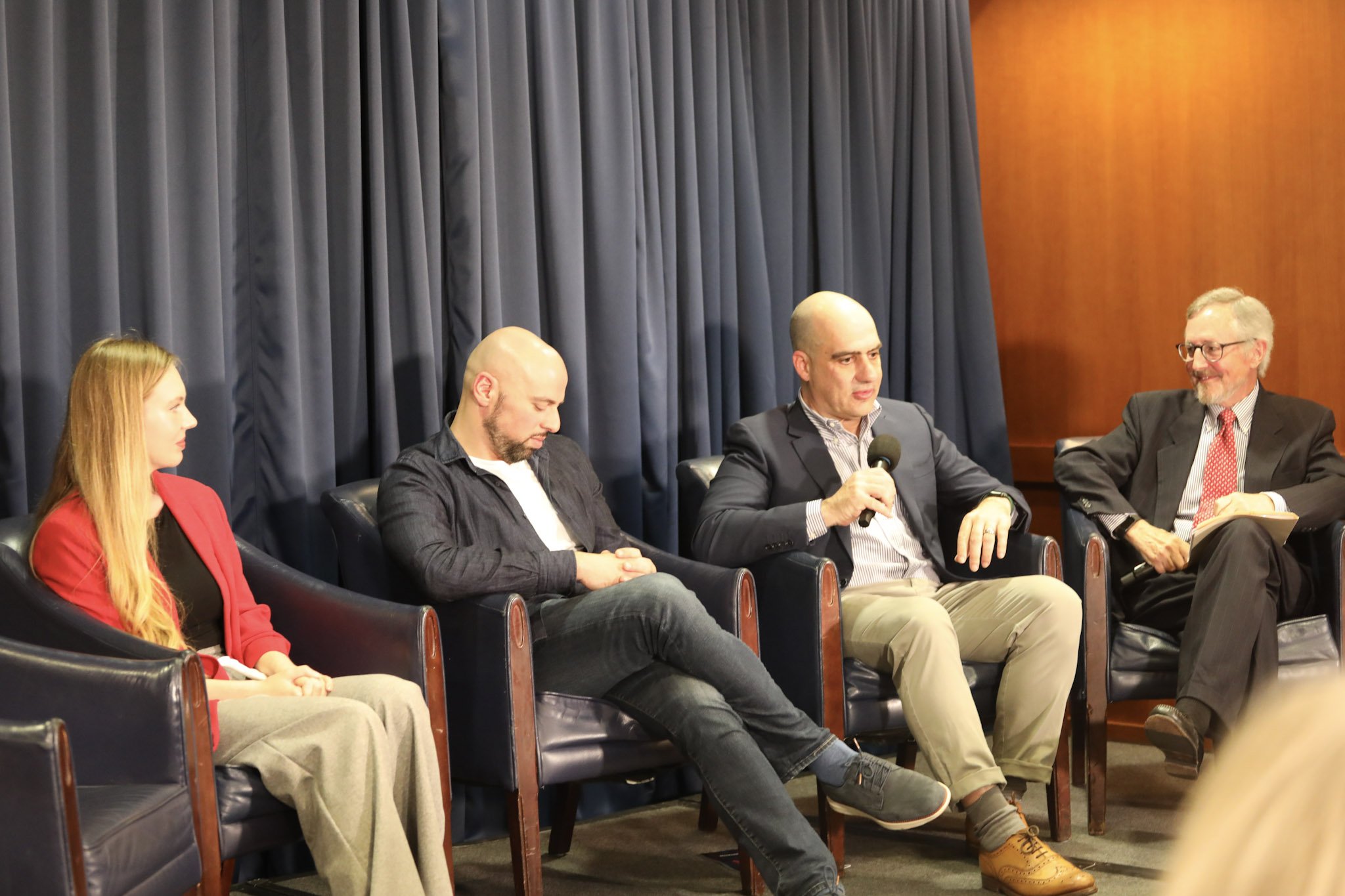
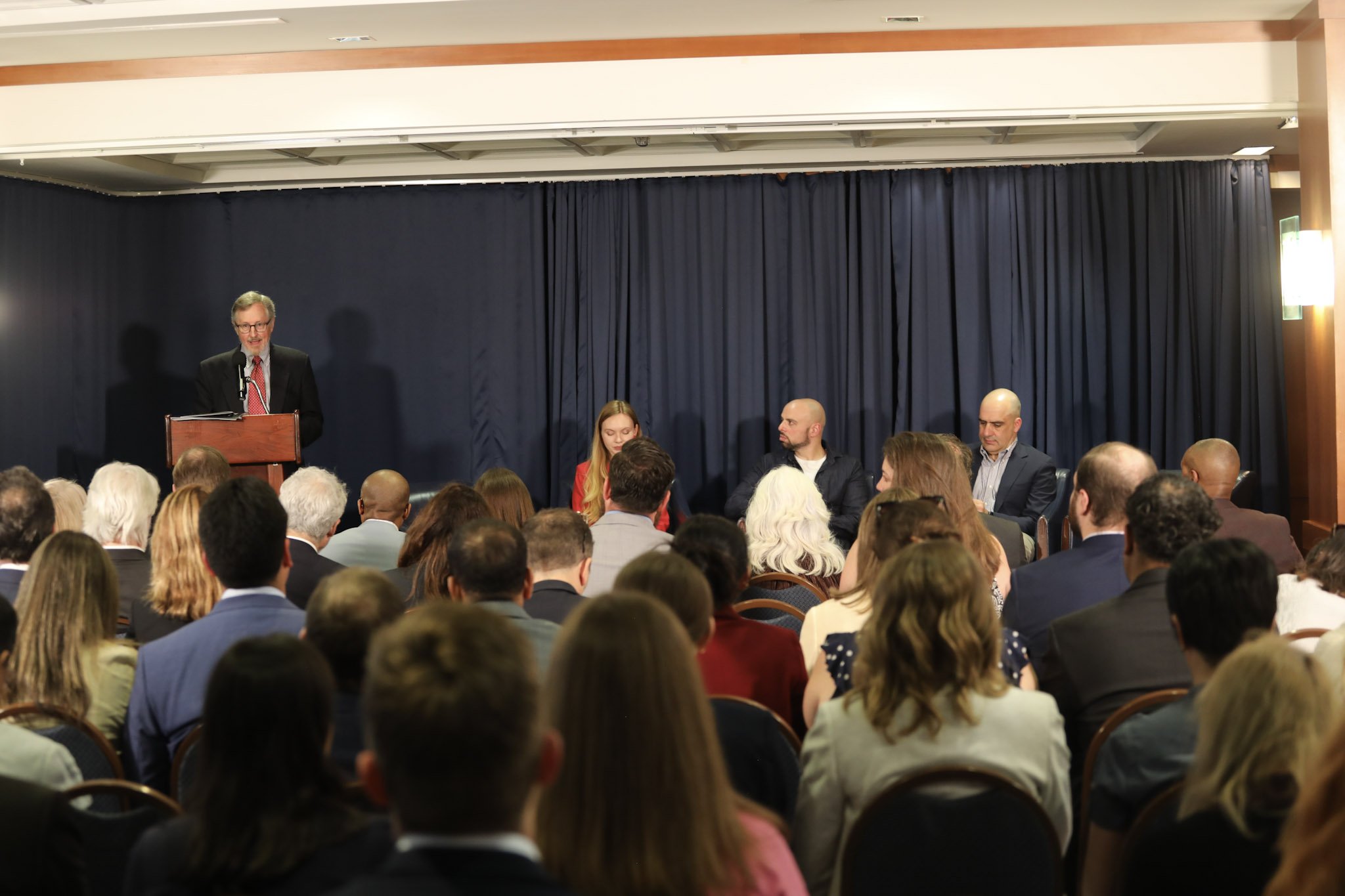
“A powerful politician being angry with the press is nothing new,” Karl said. “It's not new in American history at all. But the bottom line is we have seen throughout history that a functioning free press is central to a representative democracy.”
Scores of journalists have been killed in the past year and hundreds more remain detained, threatened and at risk around the world. The AFPC-USA is committed to educate journalists, raise awareness about press freedom and advocate for the U.S. and other governments to champion free expression and impunity against media.
An estimated 120 journalists and media workers were killed in 2023, according to the International Federation of Journalists, and the numbers keep rising this year. Since the Hamas attack on Israel Oct. 7 and Israel’s subsequent invasion of Gaza, 97 journalists and media works have been confirmed dead in the Gaza-Israel conflict, according to the Committee to Protect Journalists—92 of them Palestinians, two Israelis and three Lebanese. Different organizations keep varying counts, but all agree the toll of journalists killed on the job is outrageous, tragic and unacceptable. Journalism is not a crime, and much more must be done to end the impunity.
From Gaza, Israel and Lebanon to India, Afghanistan, Cameroon, Mexico, Ukraine and more, journalists and media workers have perished in unjust and heartbreaking circumstances. They are civilians, not combatants, mostly caught in conflict and crossfire—but sometimes targeted. They must be better protected by international law, by countries at war and by human decency
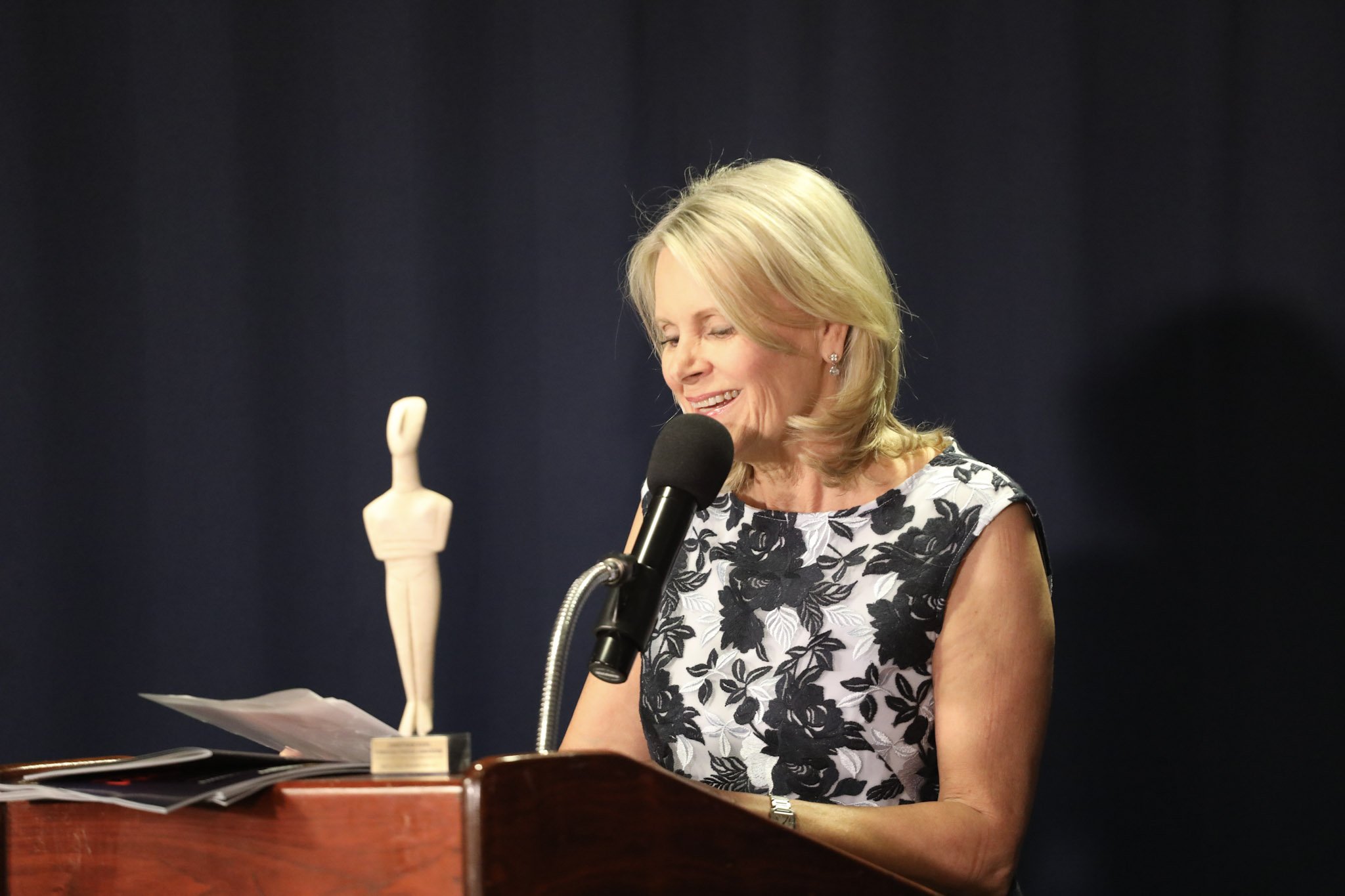
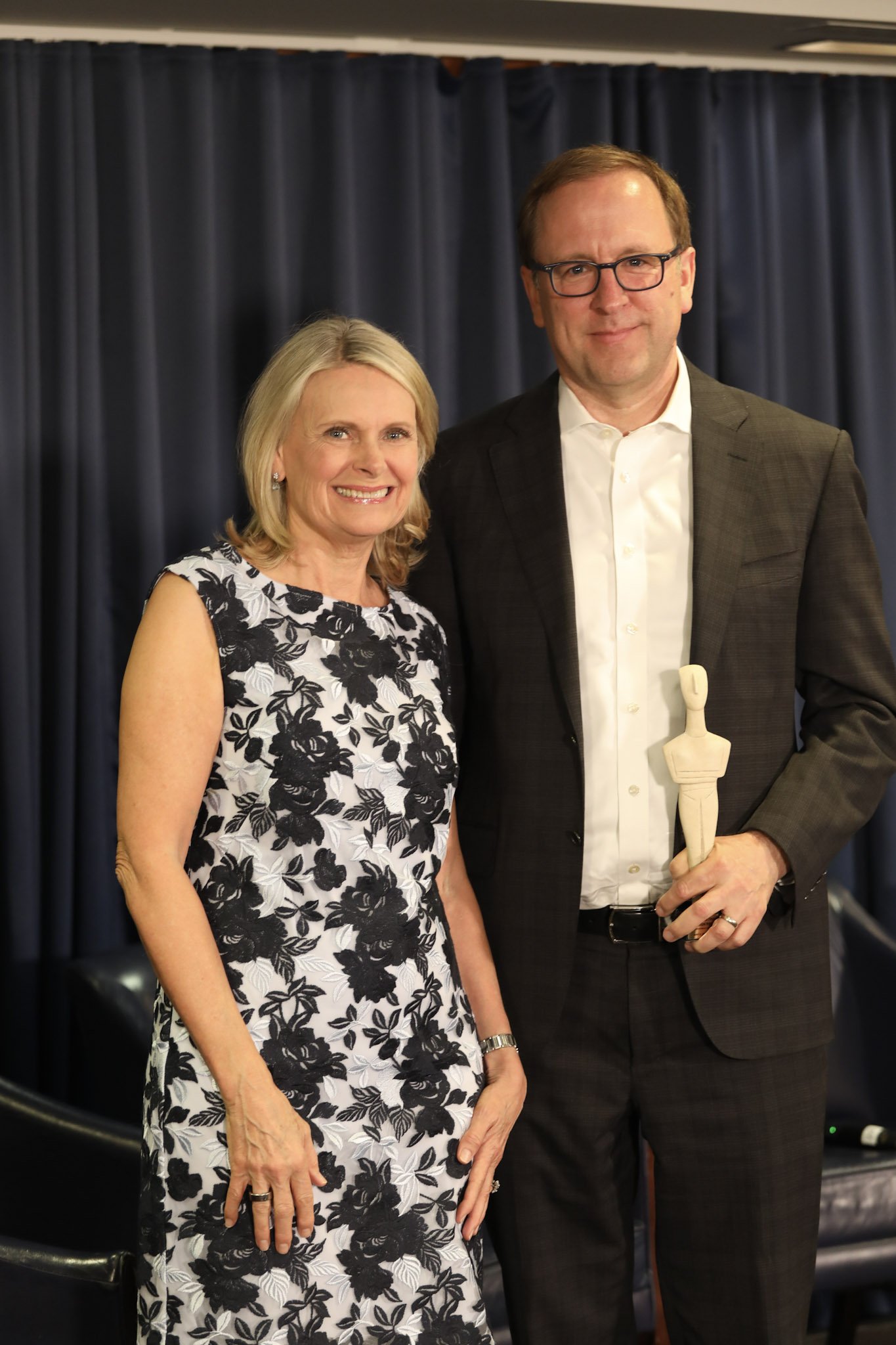
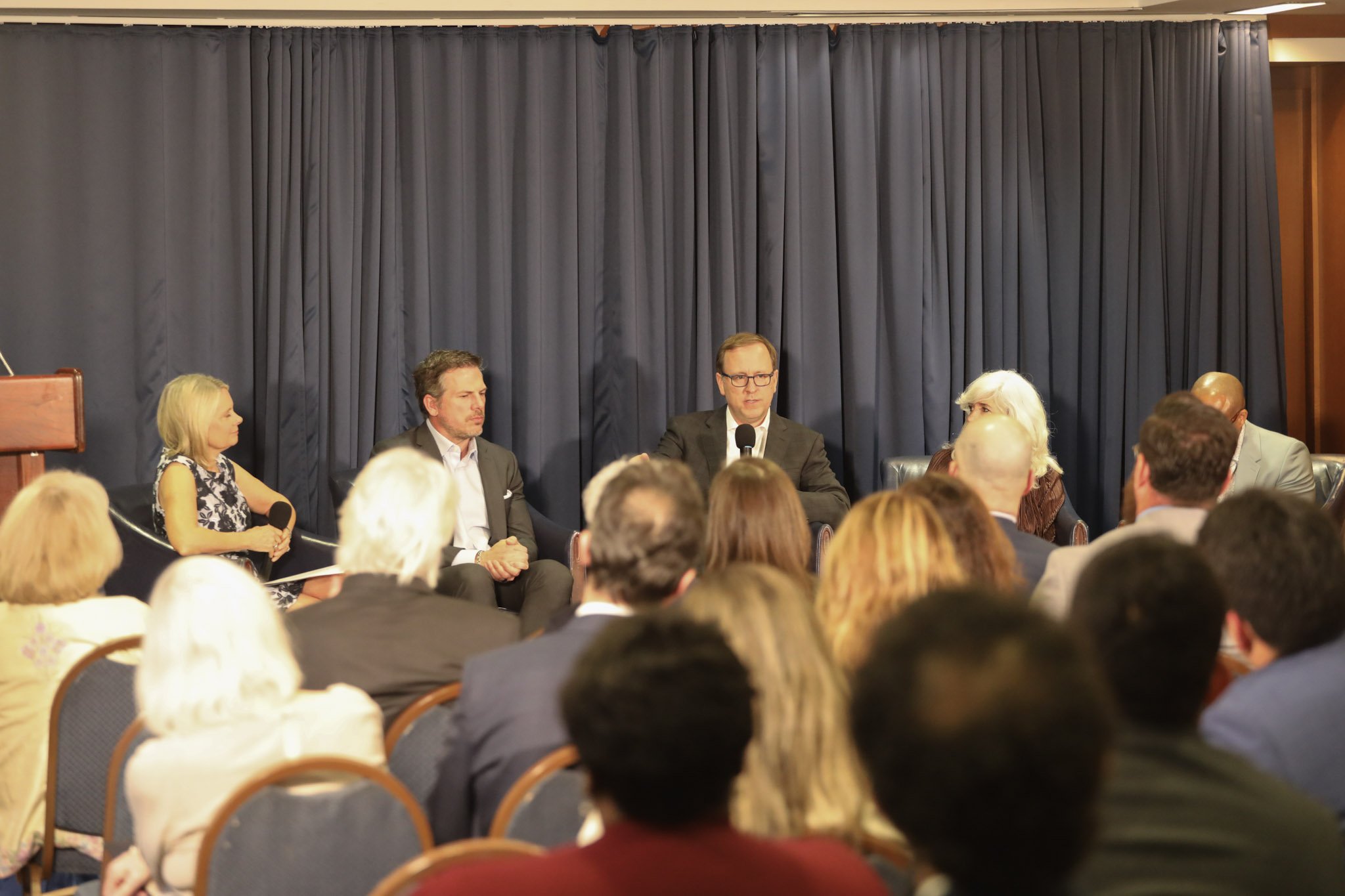
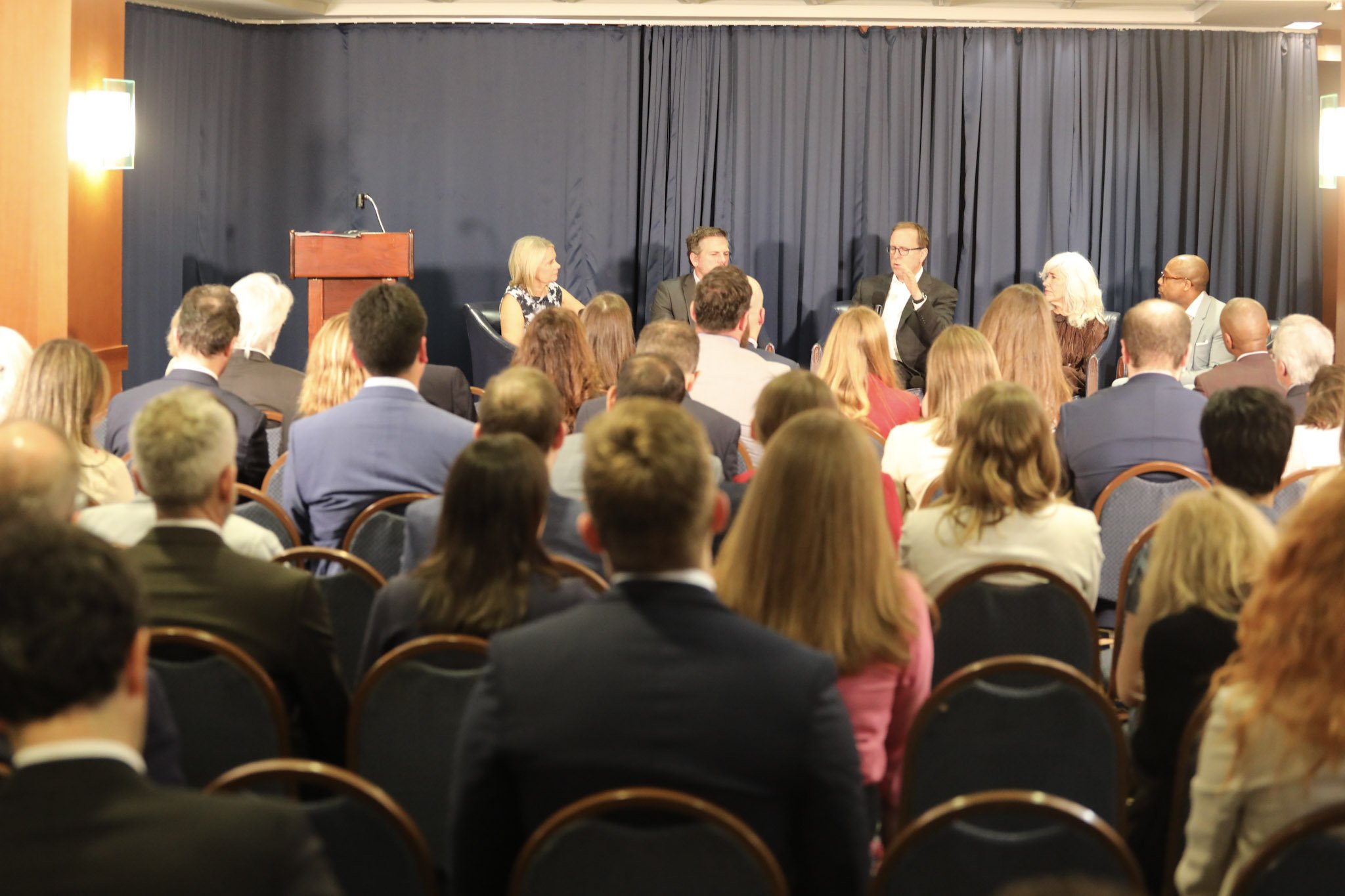
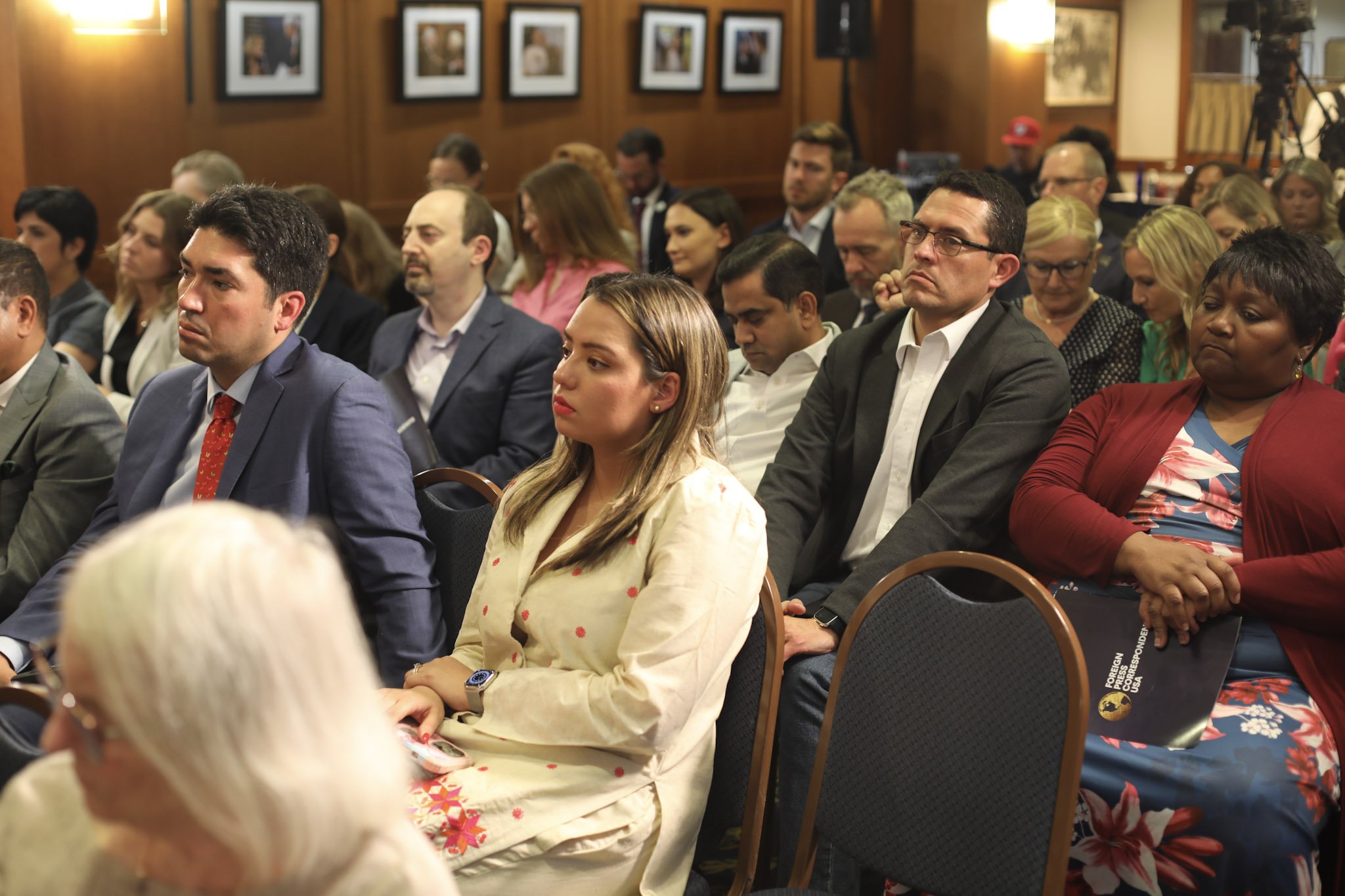
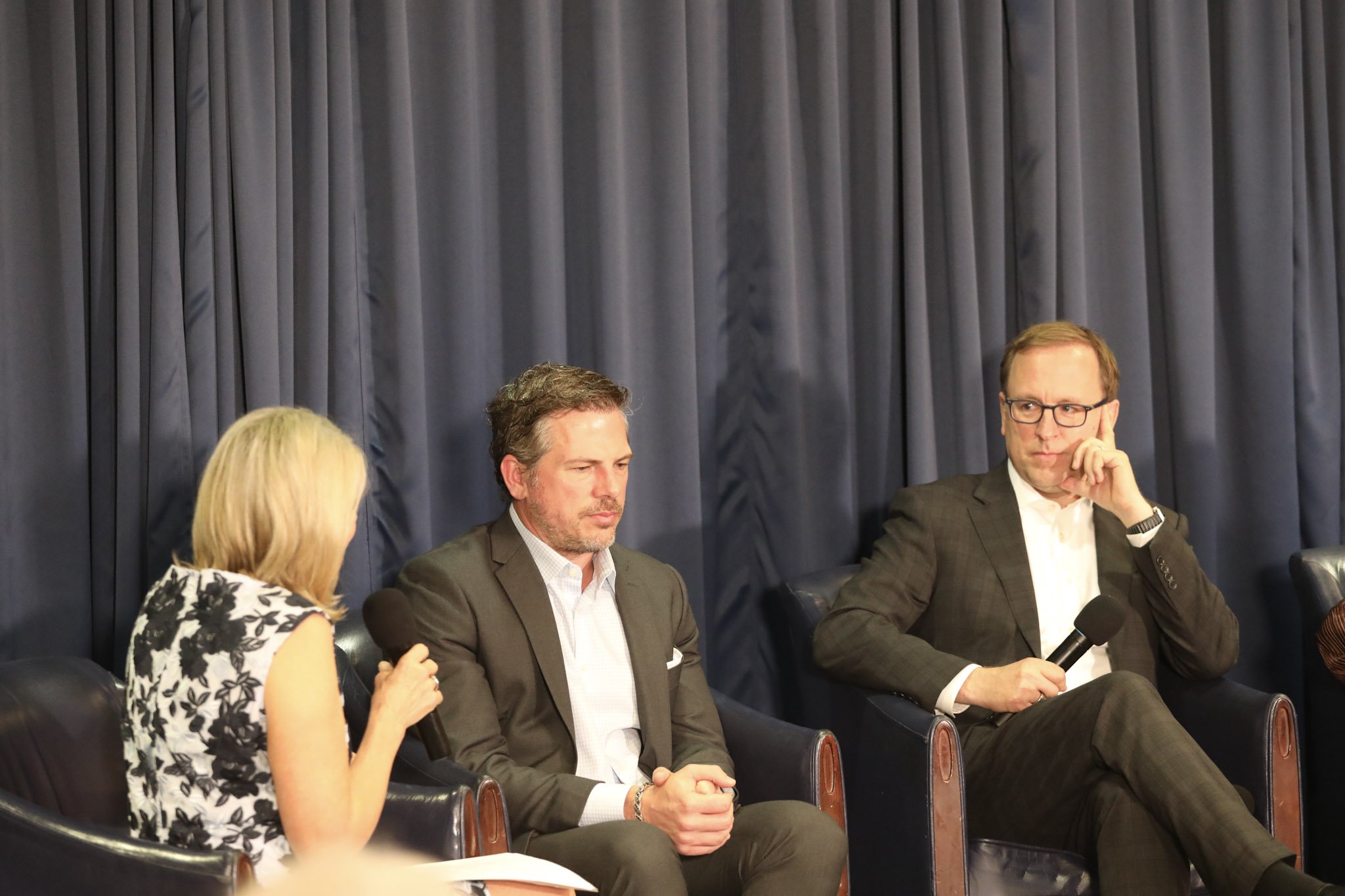
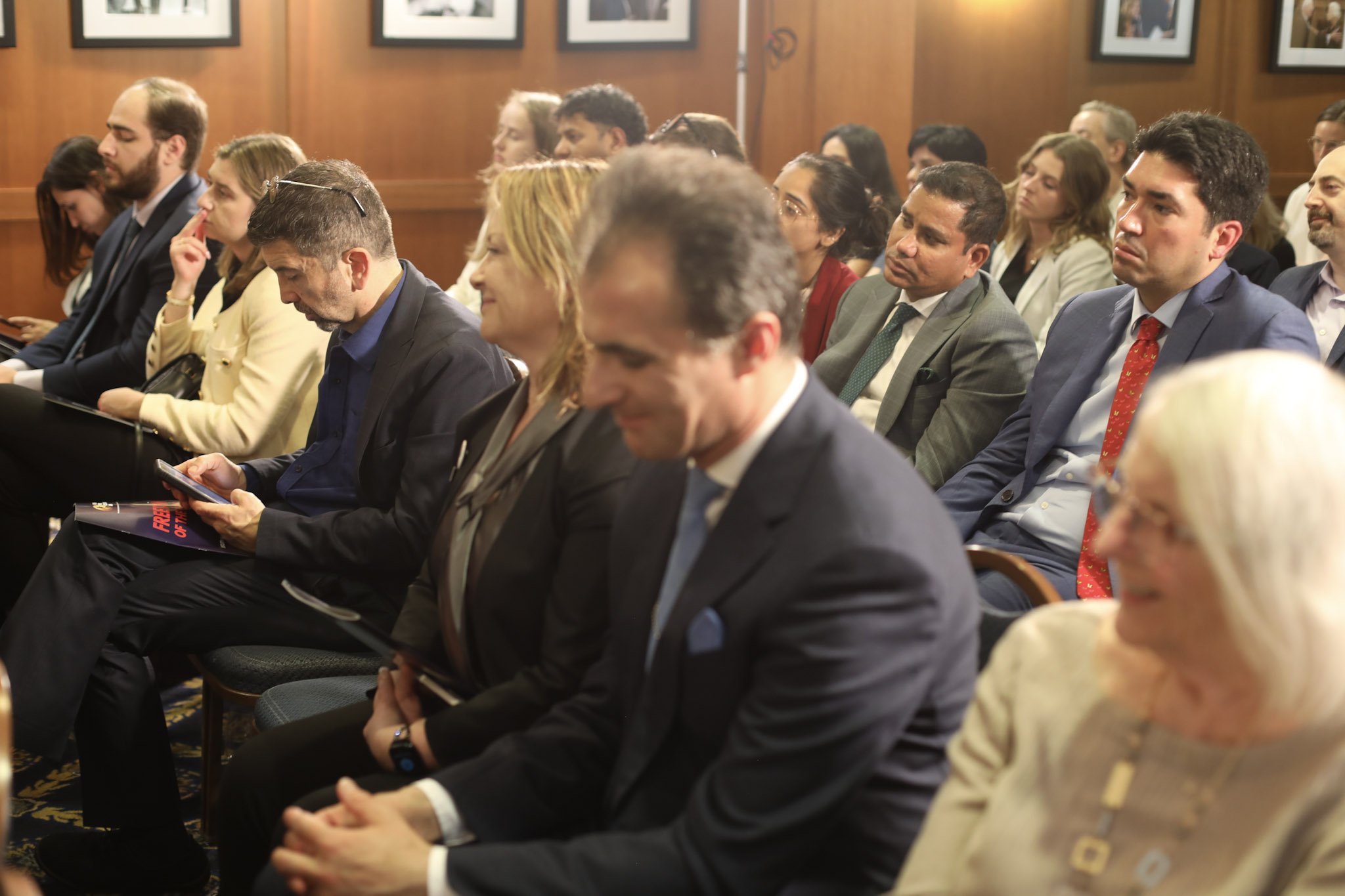
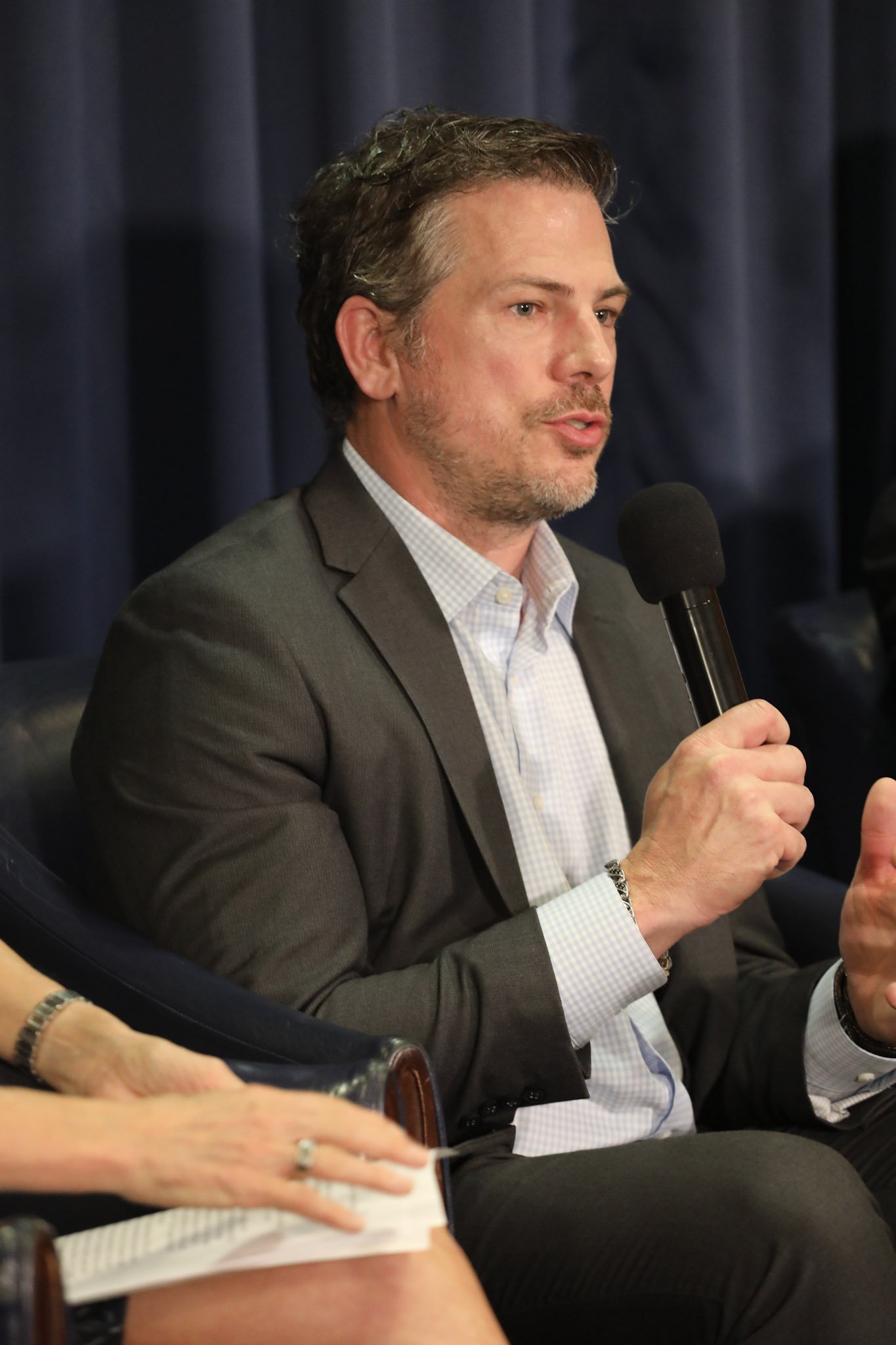
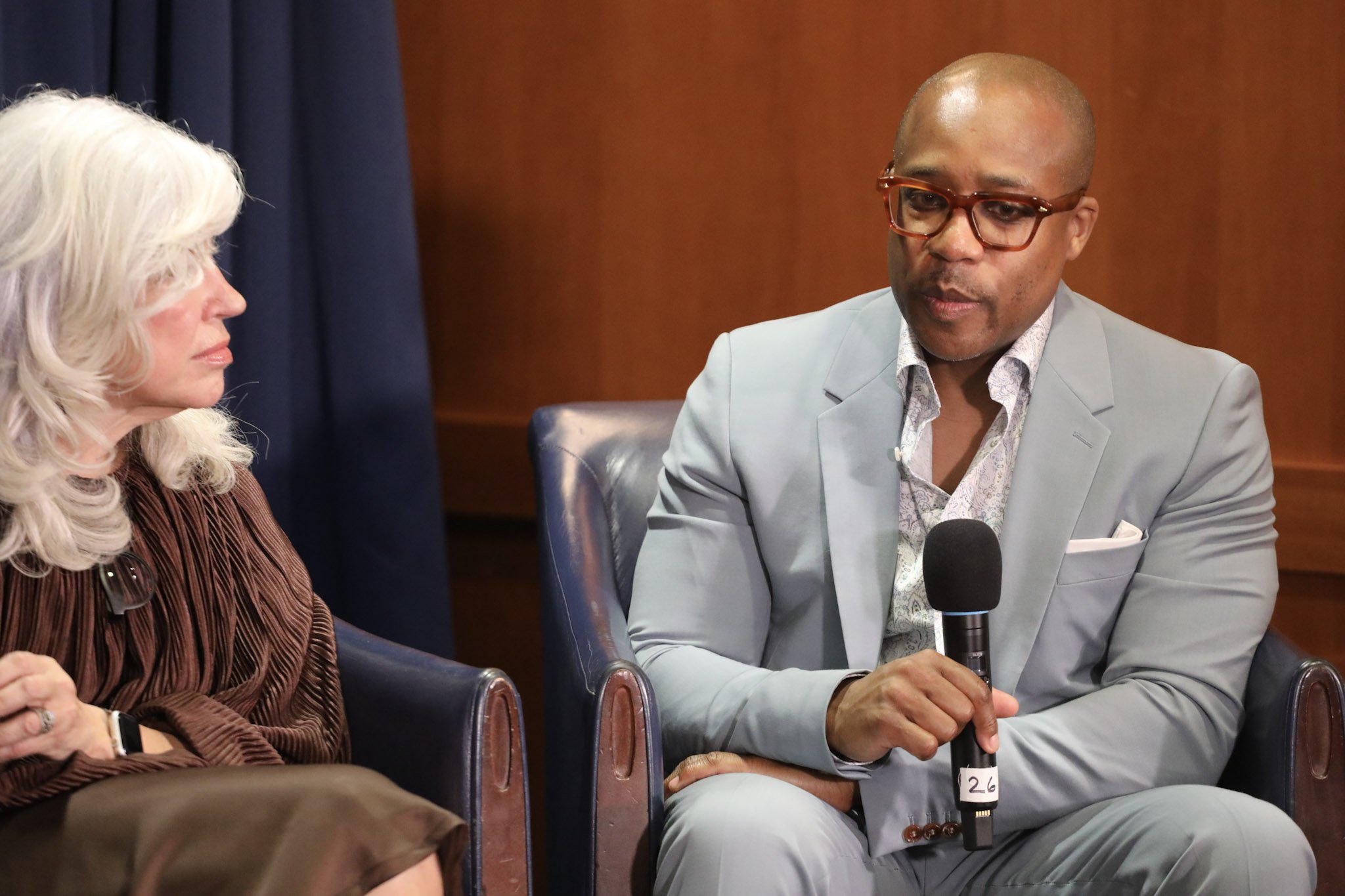
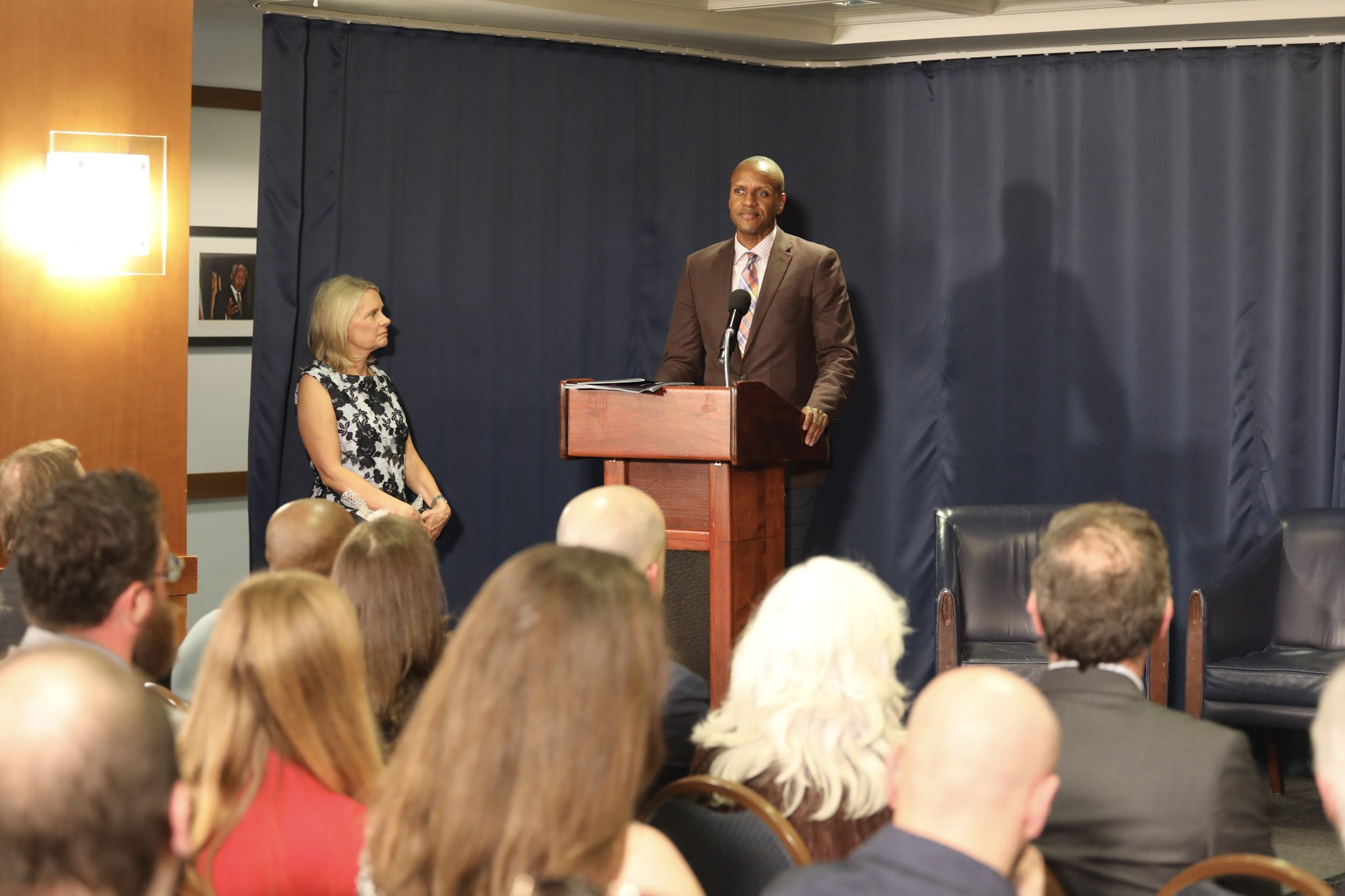
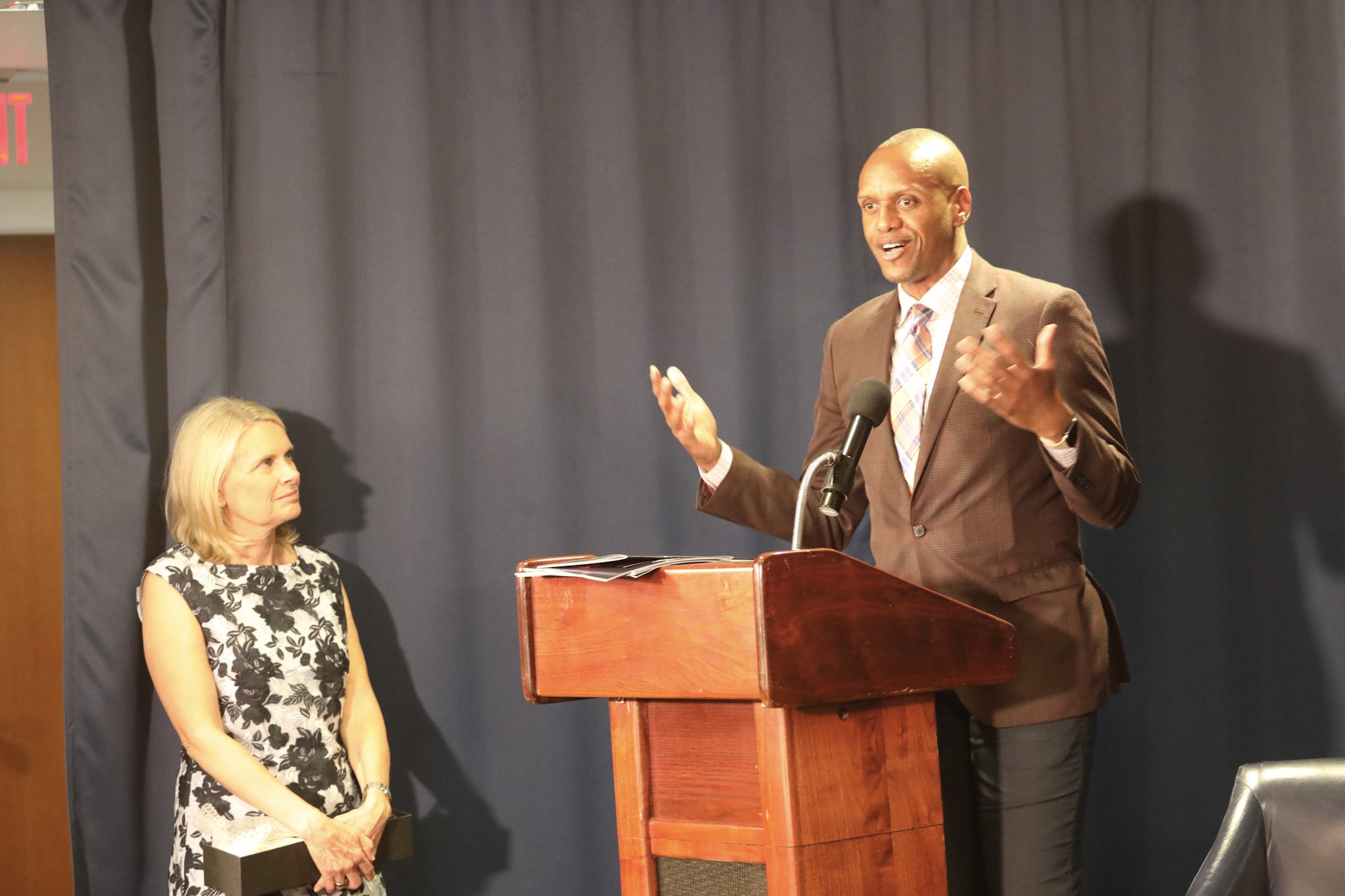
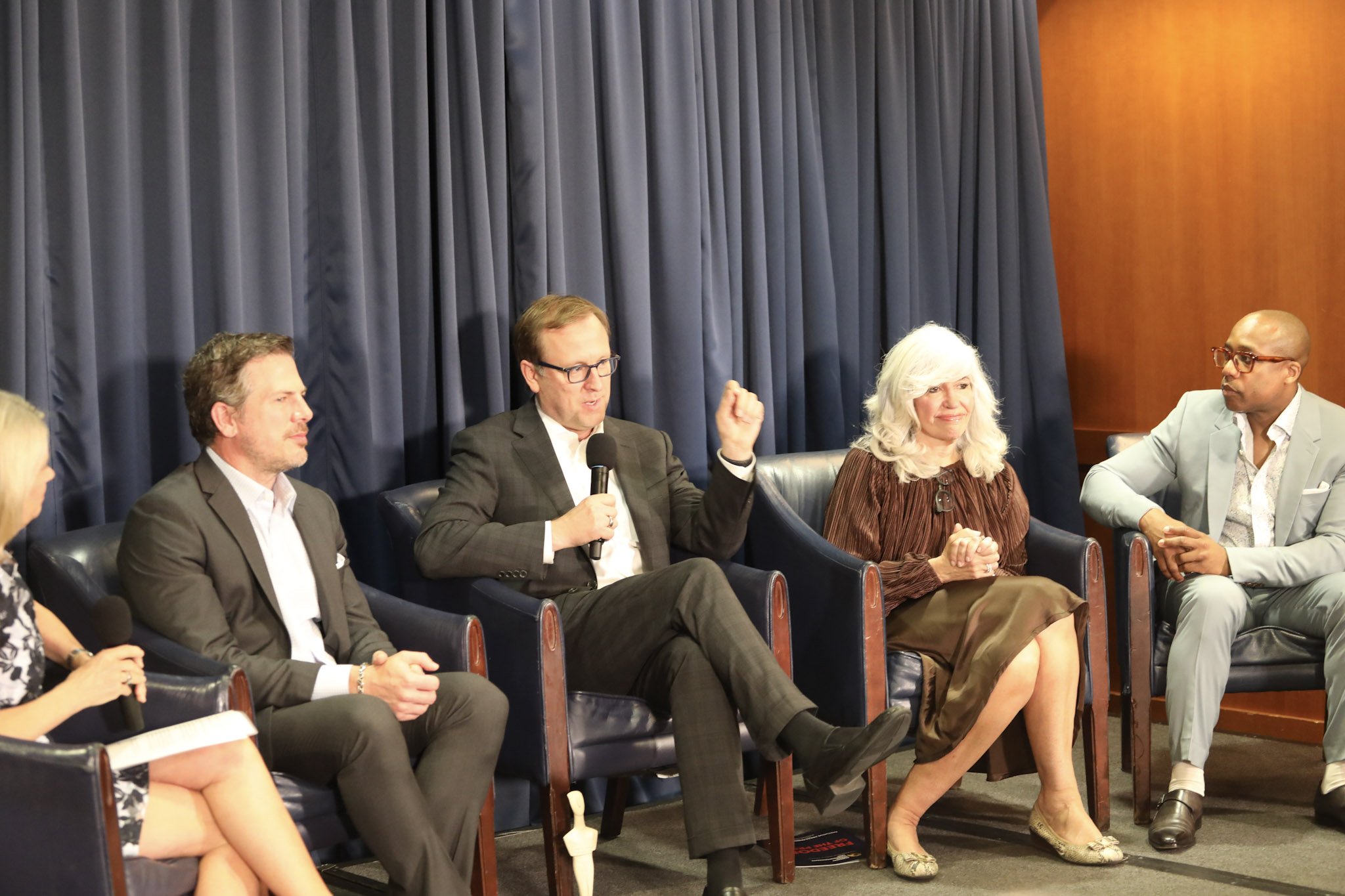
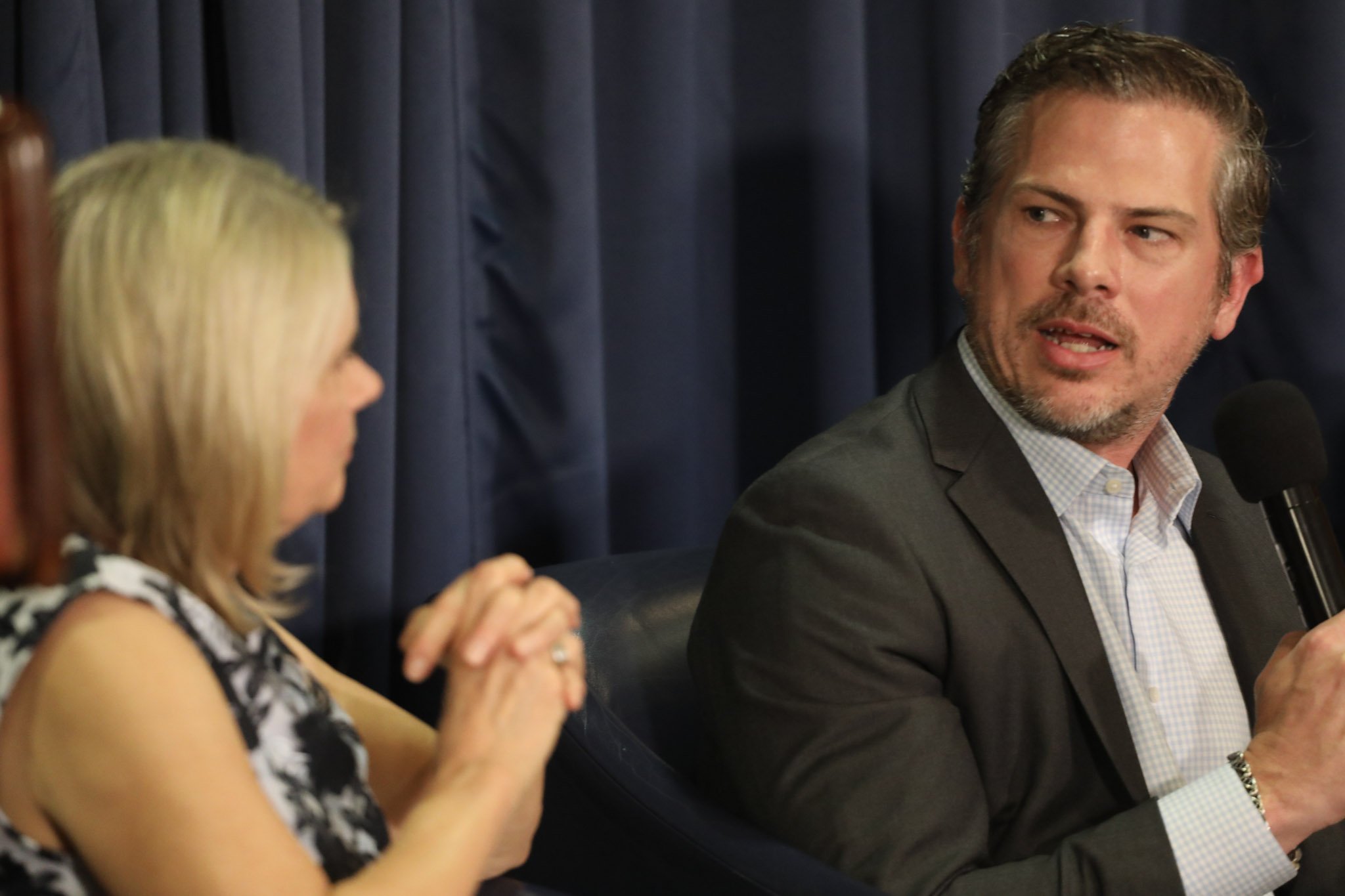
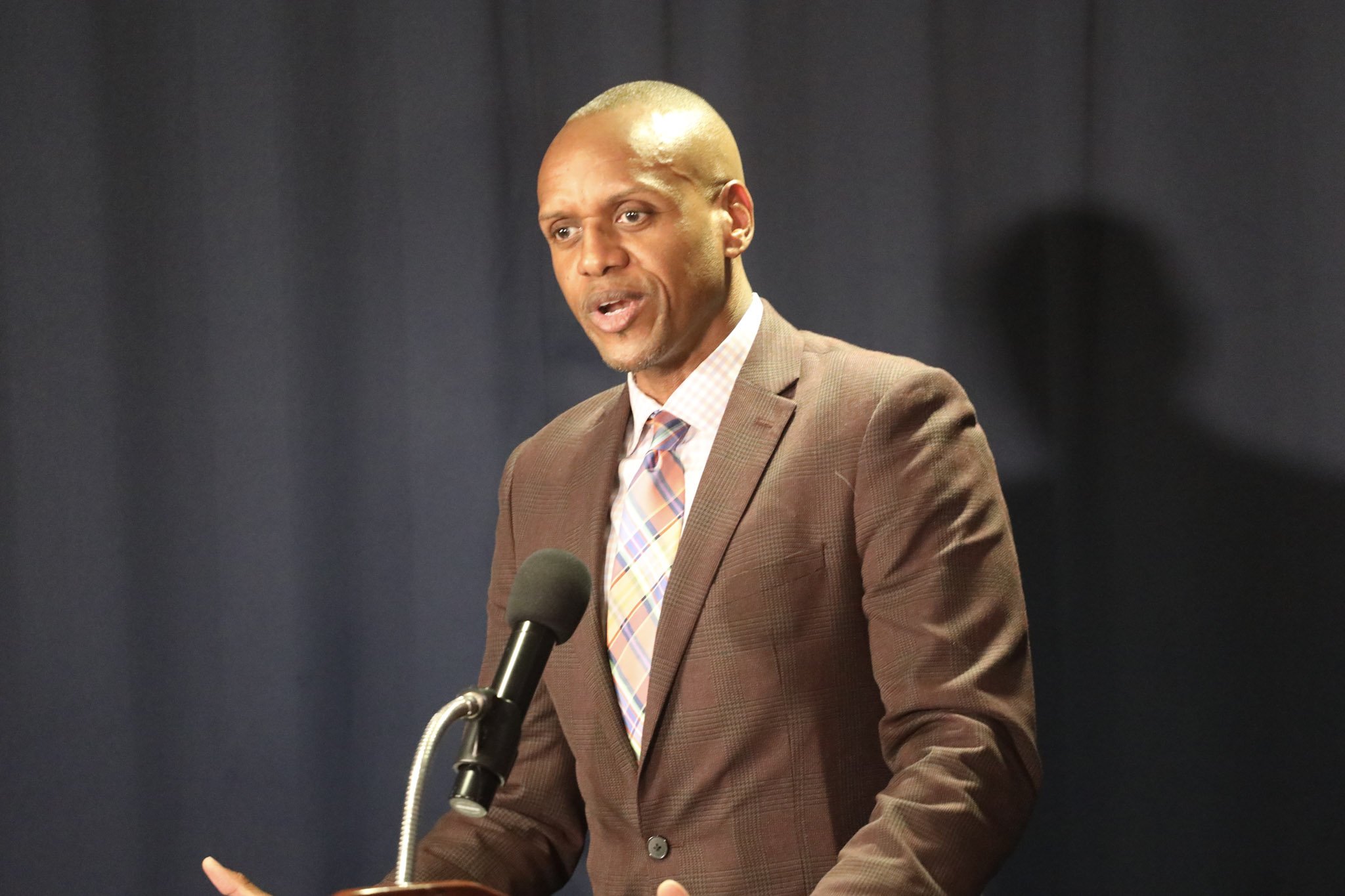
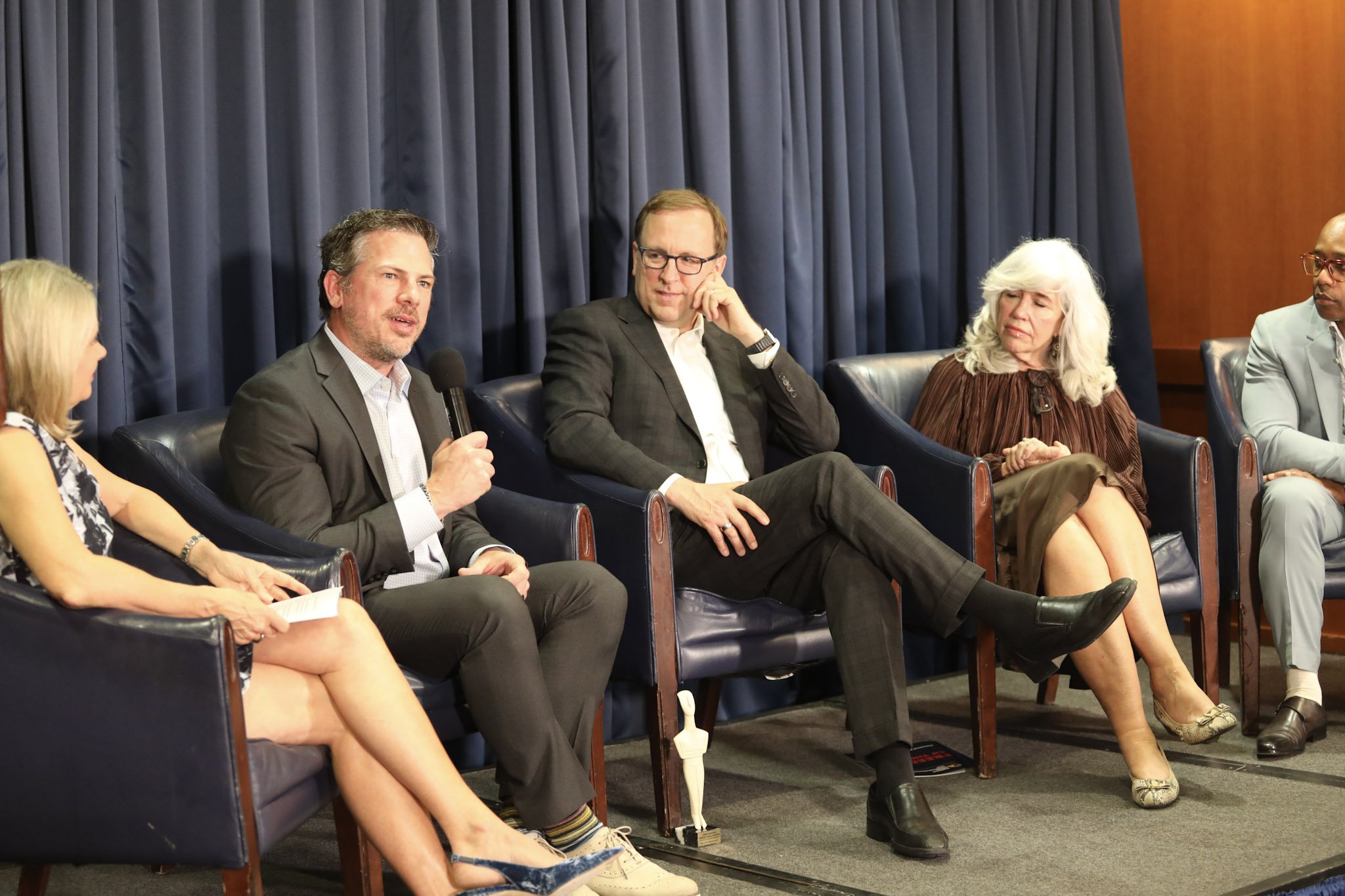
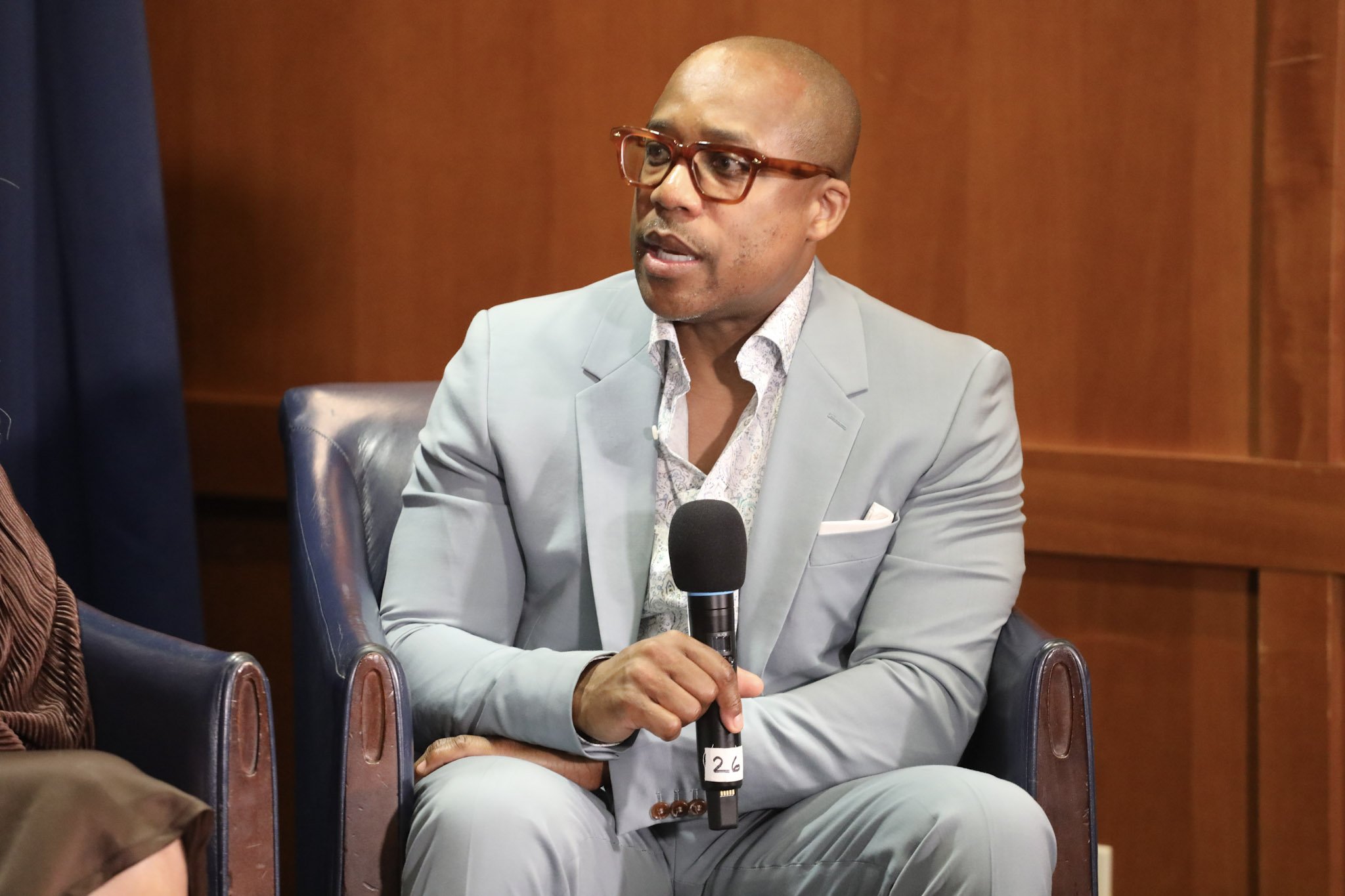
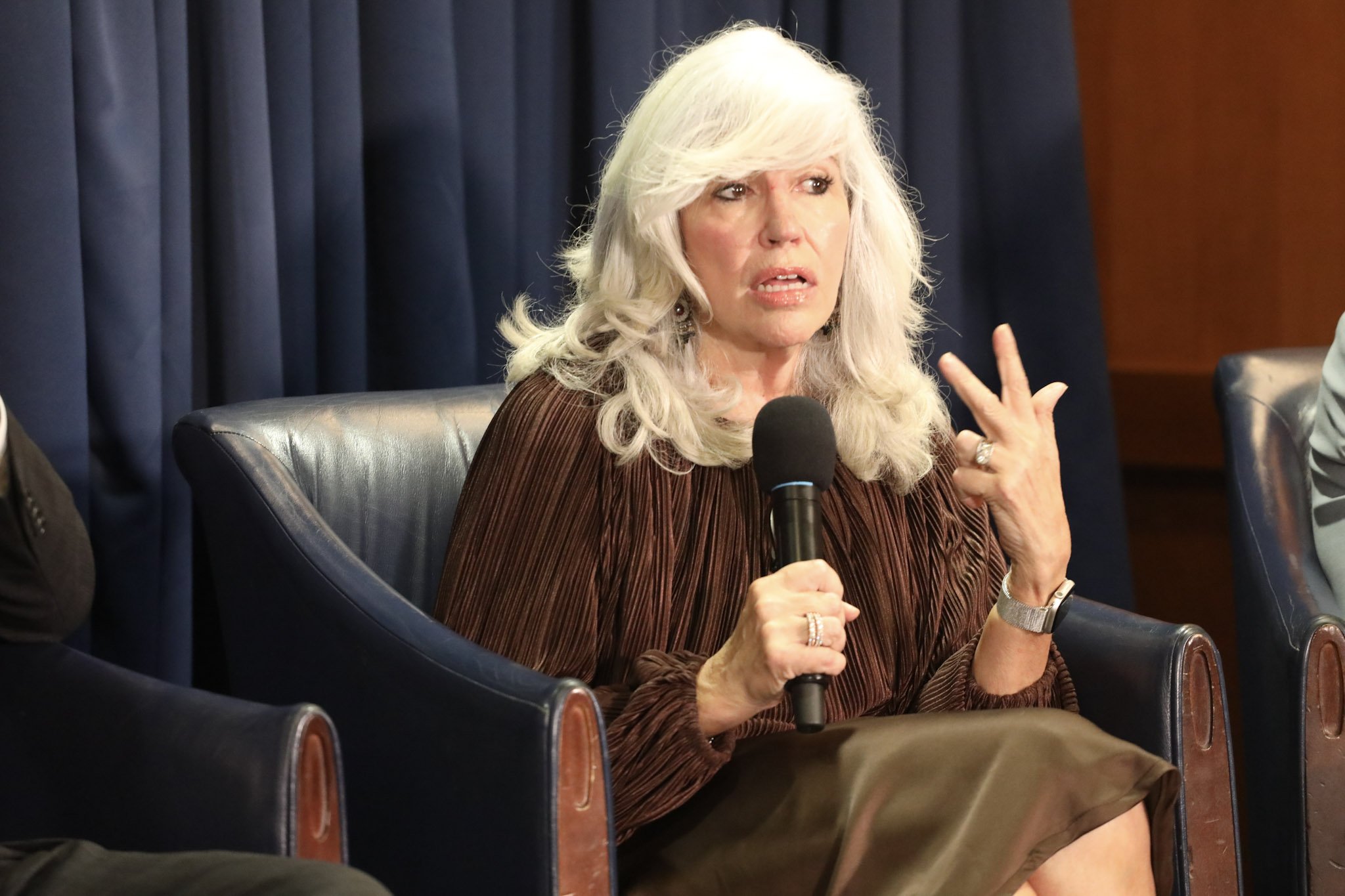
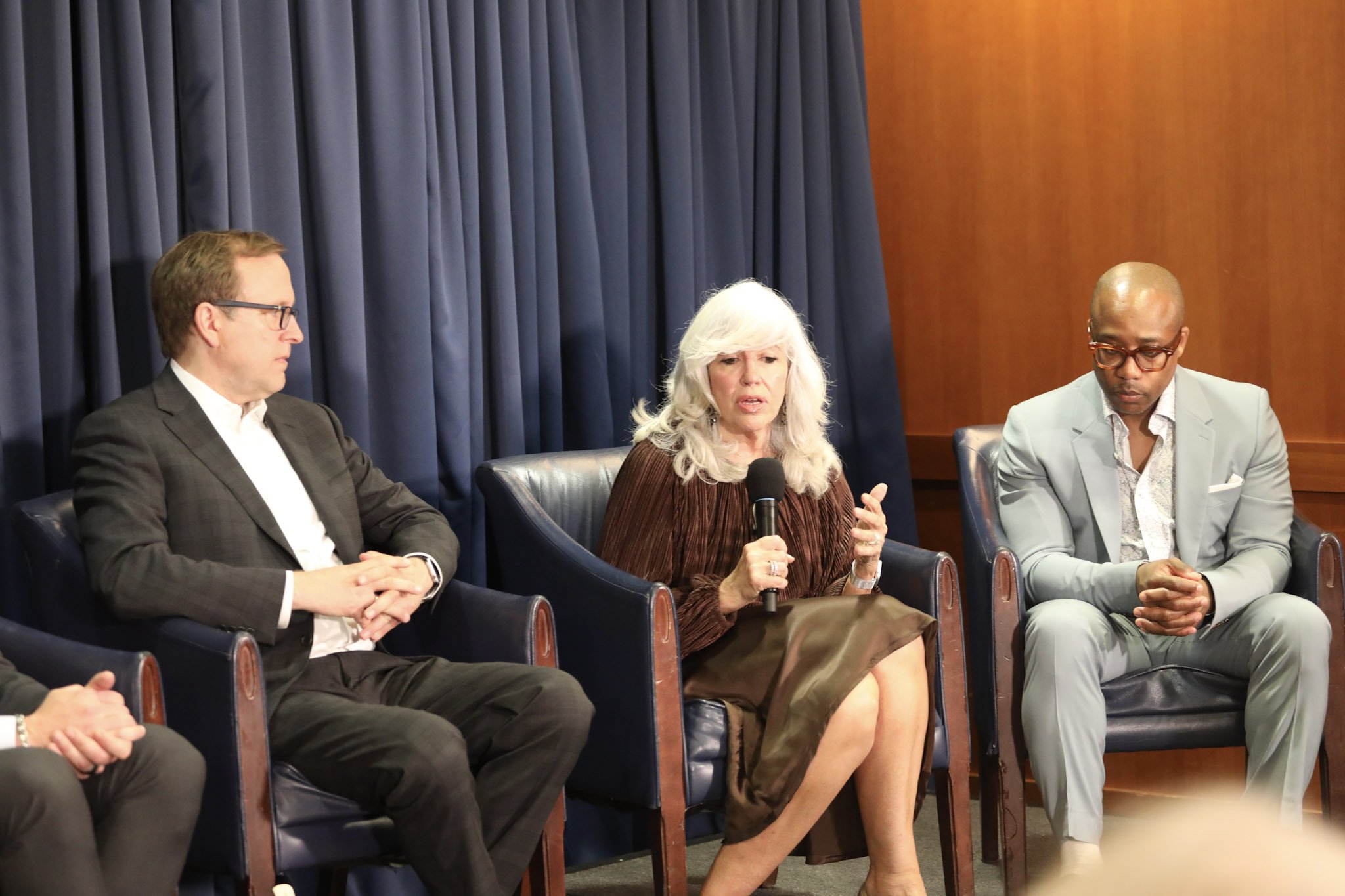

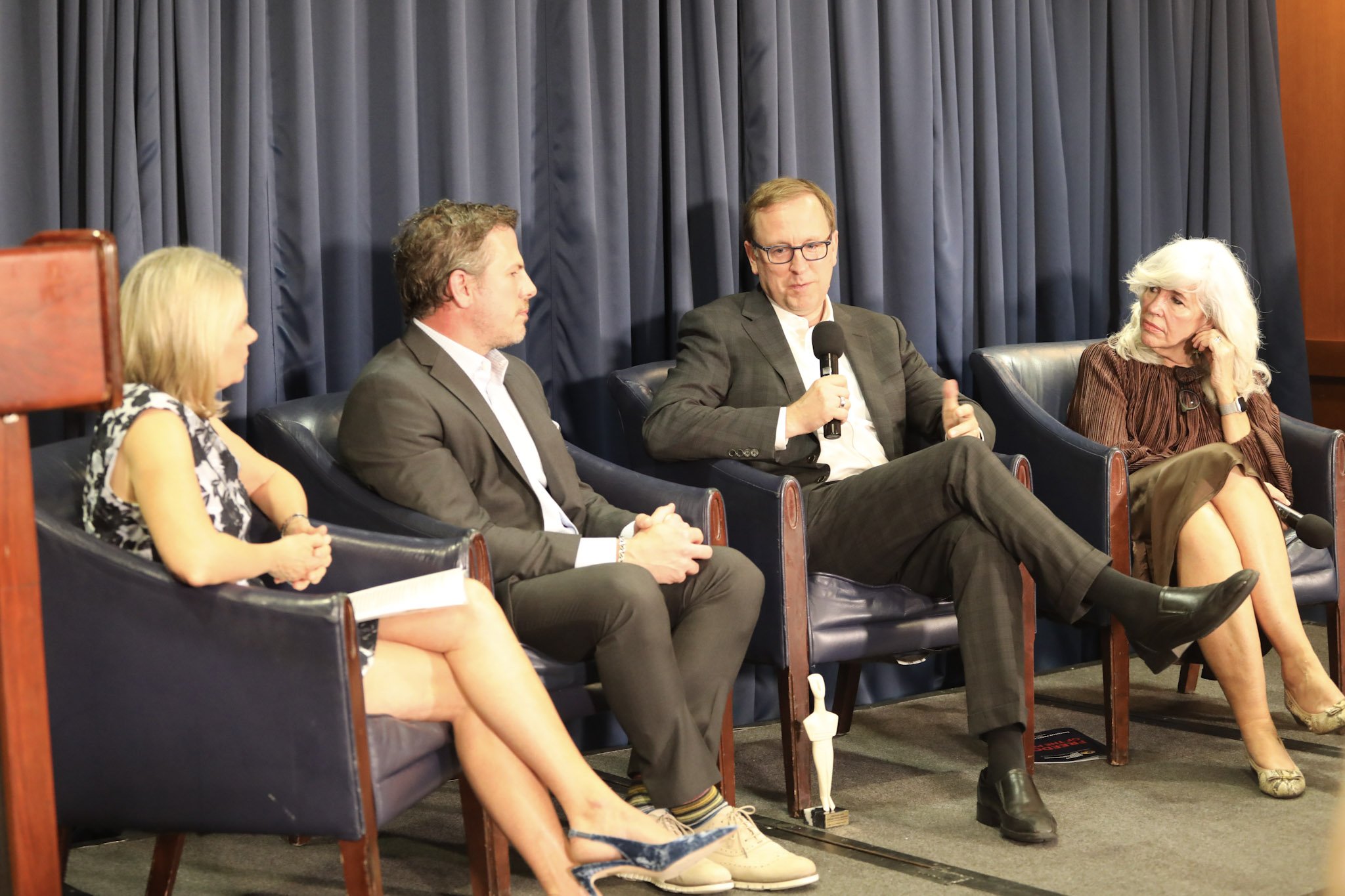

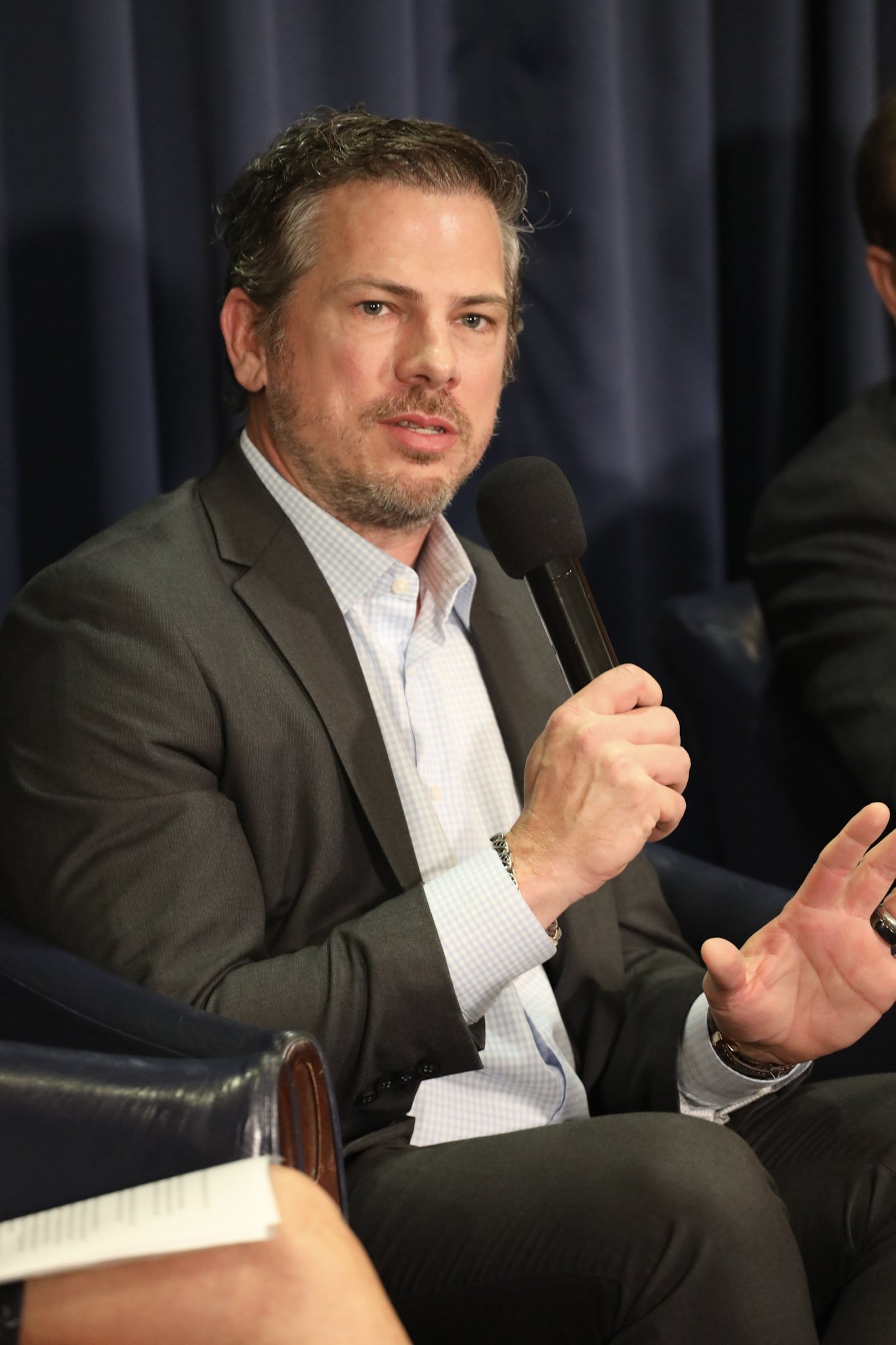

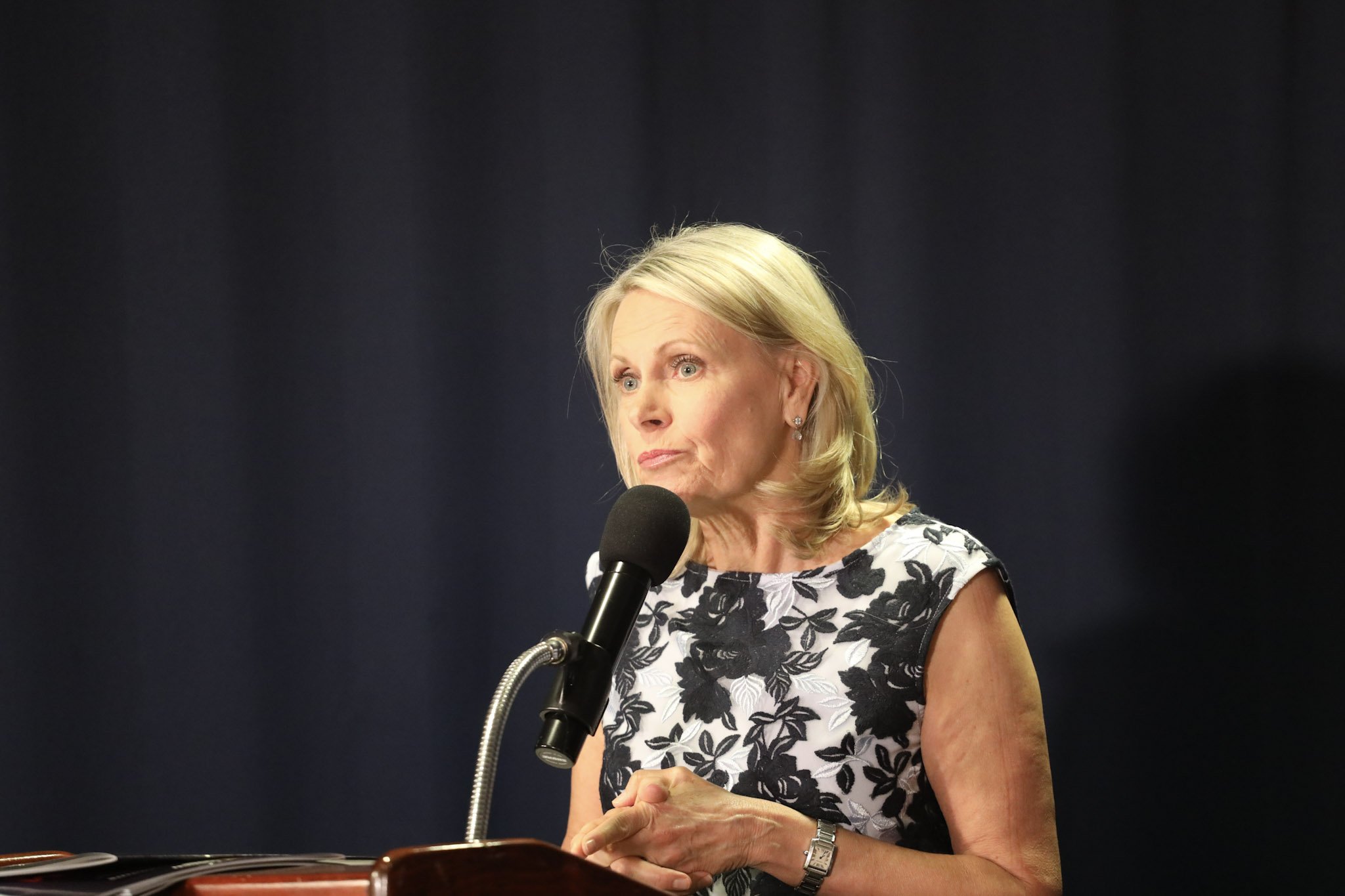
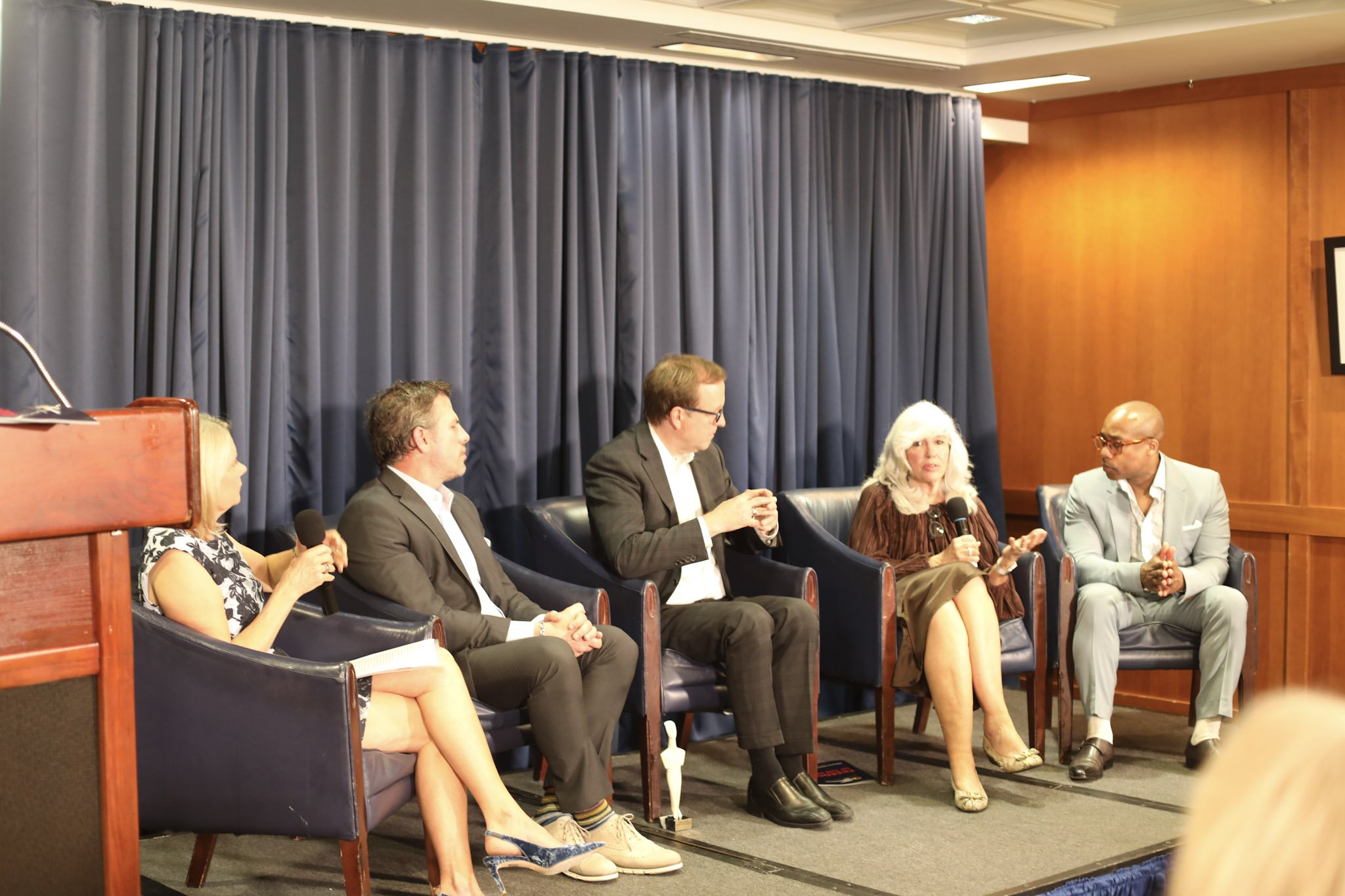
“In addition to the staggering death toll of journalists in Gaza and the worrisome killings of others around the world, hundreds of others are jailed unjustly around the world—like the Wall Street Journal’s Evan Gershkovich and Radio Free Europe/Radio Liberty’s Alsu Kurmasheva, sitting in Russian prisons,” observed AFPC/USA Vice President Storer H. (Bob) Rowley. “Many others globally face threats, intimidation, censorship and lawsuits simply for reporting the truth in their home countries.”
The AFPC-USA leadership—Prager-Kamel, Rowley and D.C. Board Member Alex Raufoglu-- met before the forum with Pavel Butorin, husband of Kurmasheva and Director, Current Time TV & Digital Network for RFE/RL, to learn how best to advocate effectively for his wife’s release. Raufoglu, Senior Washington Correspondent and U.S. Bureau Chief for Turan News Agency (Ralakbar@Twitter) spoke passionately at the forum about the need to help American journalists unjustly detained in Russia and appealed to colleagues to step up calls for Kurmasheva’s release.
The number of journalists who were threatened or forced into exile appears to have doubled in the past year, according to Reporters Without Borders, as hundreds flee their countries. The AFPC-USA honored Rubin and Kirpanova with grants not just to support their work in a perilous world, but more broadly, “because their examples signal this growing problem of reporters in exile and the importance that our organization and others find ways to support them and their work,” Rowley said.
“As I was growing up, I realized that I can use my words to change things, and that's why I chose journalism,” Kirpanova said during a panel discussion after receiving her award. “Before the war in Ukraine, journalists did face pressure from the government. I was beaten up by the police but no one was punished.
“When my boss at Novaya Gazeta won a Nobel Peace Prize in 2021, we thought things would improve. But then the war in Ukraine started when new laws were signed to censor our job. We couldn't publish the word ‘war,’ because it was supposed to be called this special military operation,” she noted.
“We suspended our work for a while, but then we realized that even with suspension, we were still under threat of arrest. So most of my colleagues and me included, we left the country,” she added, noting that “I knew that I had the right to seek asylum. And I used this right and my right was fulfilled, and I'm very grateful to the U.S. for giving me this opportunity to stay here to be safe and to continue my job.”
Likewise, Rubin faced the prospect of arrest if he stayed in Russia. Even as an award-winning print and television journalist, he told the panel, “These days if you want to live in Russia, you have to publish articles sent by the Kremlin. If you don't, you have to be in exile.
“There were two absolutely prohibited topics in Russia, both of which involve Putin’s personal life.” He and his colleagues published stories about Putin’s secret girlfriend and also about his health and the number of doctors traveling with the Russian despot.
“It's not because we are interested in having his [Putin's] girlfriends in the news, or whoever it is,” he added, noting that the stories were more about the corruption and the money he gives his friends and family. “It is a huge amount of money. Every time he gives his lovers, his women, his children, he gives a lot of money that belongs to the Russian taxpayers.”
Both Kirpanova and Rubin struggled with the U.S. immigration system when they first arrived. Kirpanova spent time in immigration detention and Rubin earned a fellowship but spent “a month of huge efforts” in order to get a non-immigrant U.S. visa, “because officials did not understand why I couldn't go back to my home country.”
The two exiled journalists were joined on the panel by George Svigos, executive director of Communications, Global Markets, General Motors, a valued partner of the AFPC-USA who has long supported its work and mission to help journalists and promote free expression.
Rowley, who moderated the panel, thanked Svigos and other valued partners from the business and non-profit world in the audience. Svigos, a former journalist, spoke of his own motivation and of the shared values GM has with the AFPC-USA. “We choose to work for American companies, because of the values those companies have,” he observed. “As an individual, you have to be able to identify the values of your company with your own personal values, and the minute that doesn't happen, then you probably shouldn't be there.”
AFPC-USA Executive Officer Sissel McCarthy moderated a second panel at the annual Press Freedom Forum that included Karl; Eileen O'Connor, Senior Vice President, the Rockefeller Foundation; Cameron Batten, Chief Communications officer, Volkswagen of America, Inc.; and Damon Jones, Chief Communications Officer, Proctor & Gamble.
Introducing her panel, McCarthy shared some good news with the forum, noting, “A large majority of Americans—73 %— see press freedom as highly important to the well-being of society. And even better news, people in both our political parties—Democrats and Republicans--agree with that statement. These findings come from a new Pew Research Center survey just released ahead of World Press Freedom Day.
“Of course, at the same time, there are so many challenges facing journalists today when journalism could not be more important,” she added.
O’Connor gave a sense of those challenges, too, outlining the decline of the traditional business model, the threat of authoritarian regimes cracking down on a free press and the rise of social media turbocharging misinformation and divisions in the country and the world.
“In many authoritarian countries, where big corporations own the media, what happens is the government tries to inflict economic damage on them, and that's how they end up controlling it, not even by the laws,” she observed. “So I think it's going to be the resistance of businesses and investors and society (to help buttress a free press), that's going to have to be able to fight back against any kinds of laws.”
Rahsaan Johnson, Managing Director, International Communications for Delta Airlines, also spoke to the forum, noting, “It's after meeting journalists on six continents talking about aviation and sustainability and economic development, I've come to appreciate what it means to have freedom of the press in the United States and what it means to not have freedom of the press in so many parts of the world.”
The AFPC-USA is exploring ways to partner with other organizations to help raise awareness about the problems of exiled journalists securing visas and to work with the U.S. government to facilitate the process through legal assistance or changes in U.S. laws.
Now based in the United States, Rubin is deputy editor-in-chief of "Proekt," where he had spearheaded numerous investigations into Putin and his inner circle, and Kirpanova writes for Novaya Gazeta Europe, a newly founded online site where many of her colleagues fled when it became too risky to remain in Russia working for the independent press champion Novaya Gazeta.
The grants are intended to help Rubin and Kirpanova continue their journalism in a new country and culture, where they work in a second language and must navigate a new immigration system and questions of asylum and visas. Many others needing help have had to flee from Russia, Afghanistan, Iran, Myanmar, Sudan and other nations.
Like hundreds, perhaps thousands, of newly exiled journalists, these professionals face unique challenges just to continue their journalistic work, and their journeys underscore an increasingly dangerous and alarming trend threatening press freedom globally.
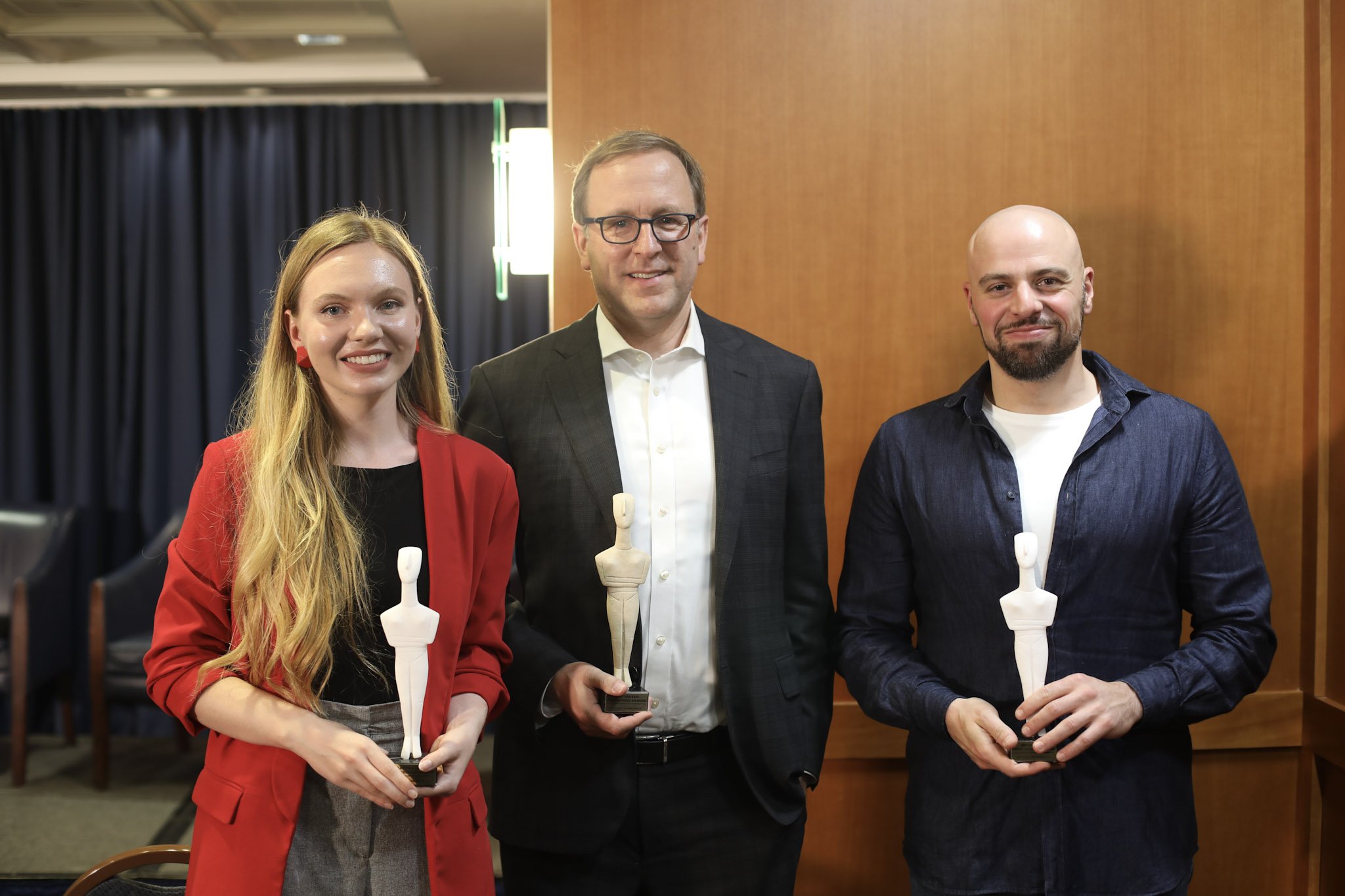
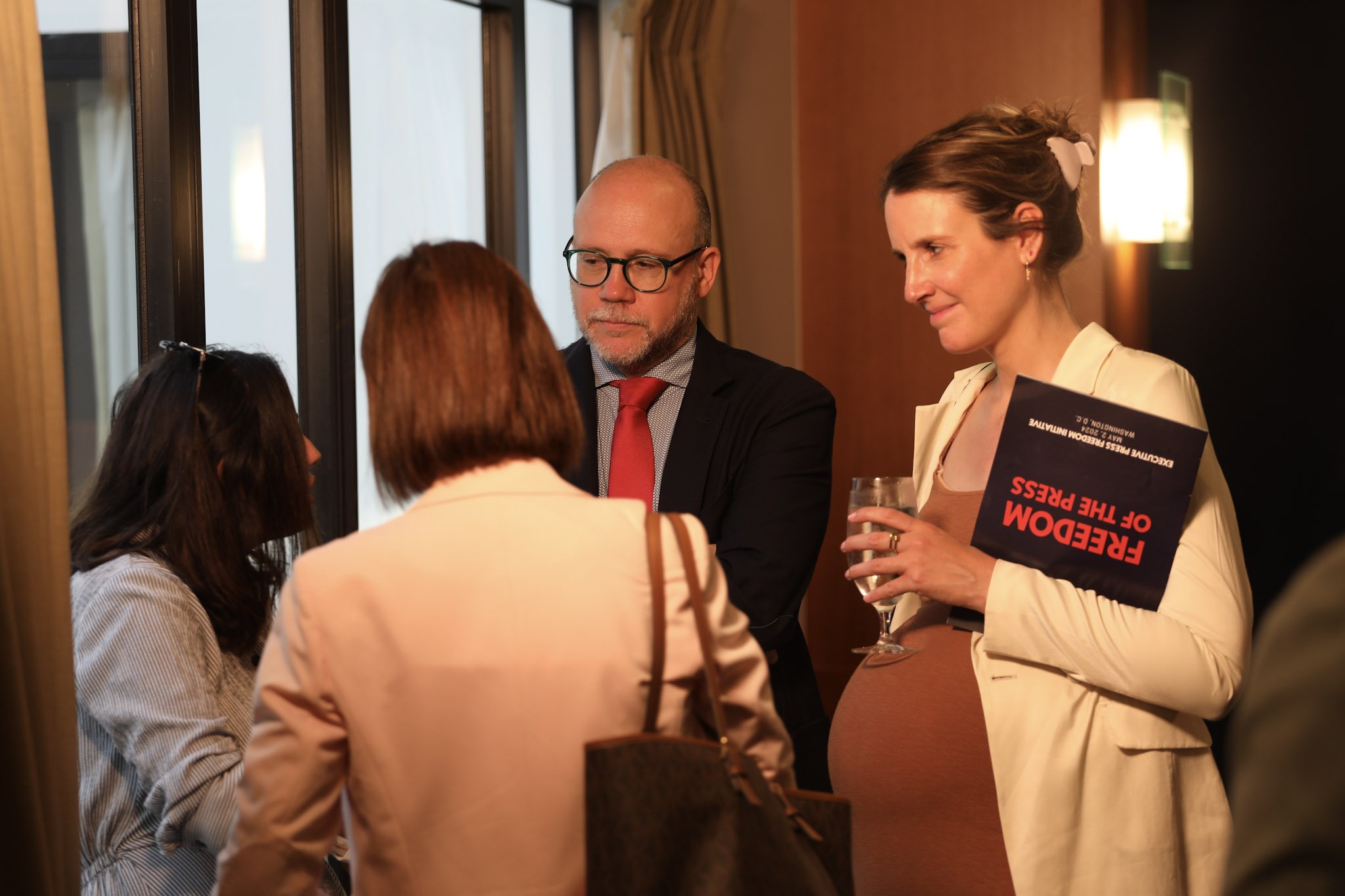
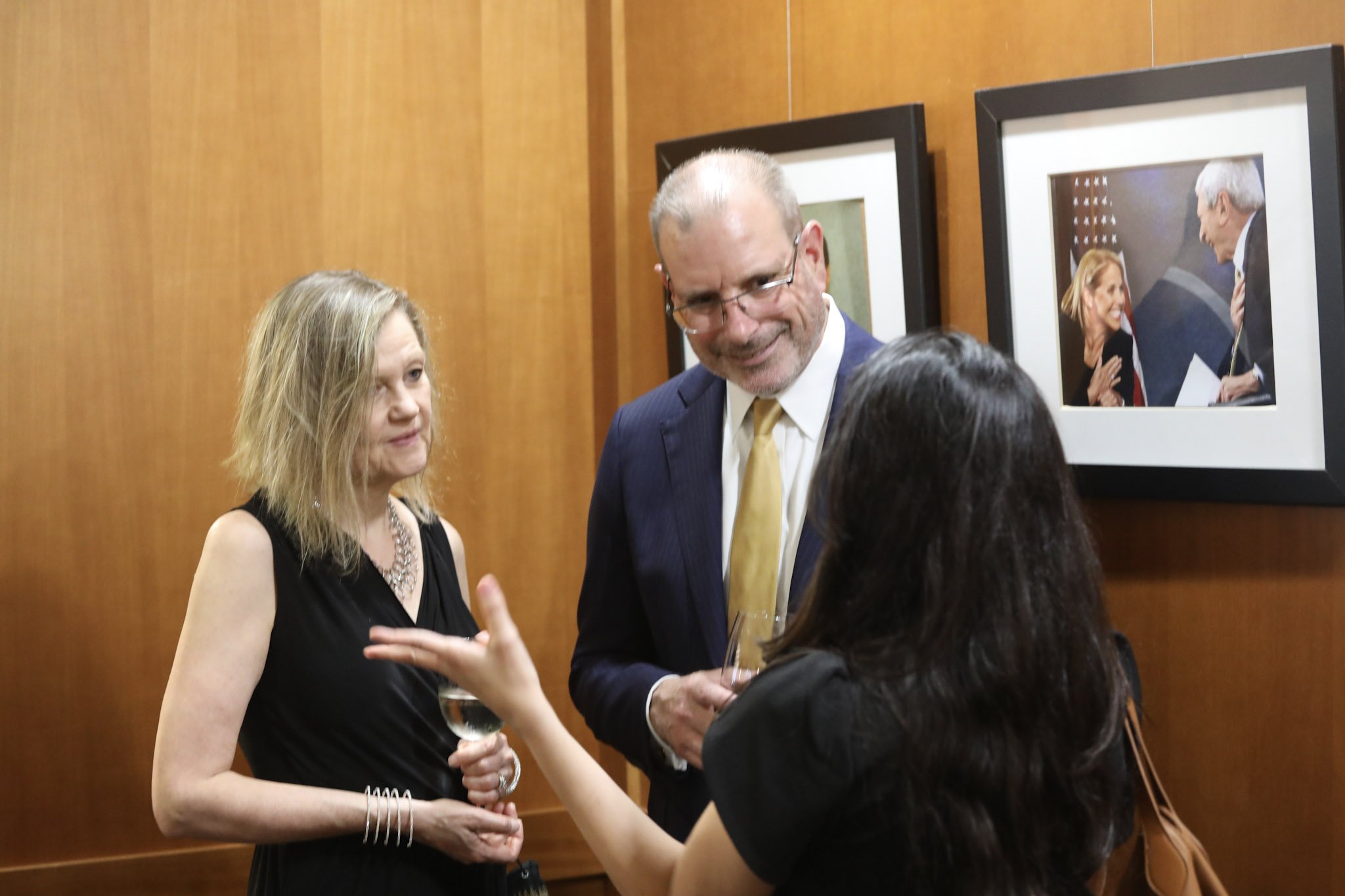
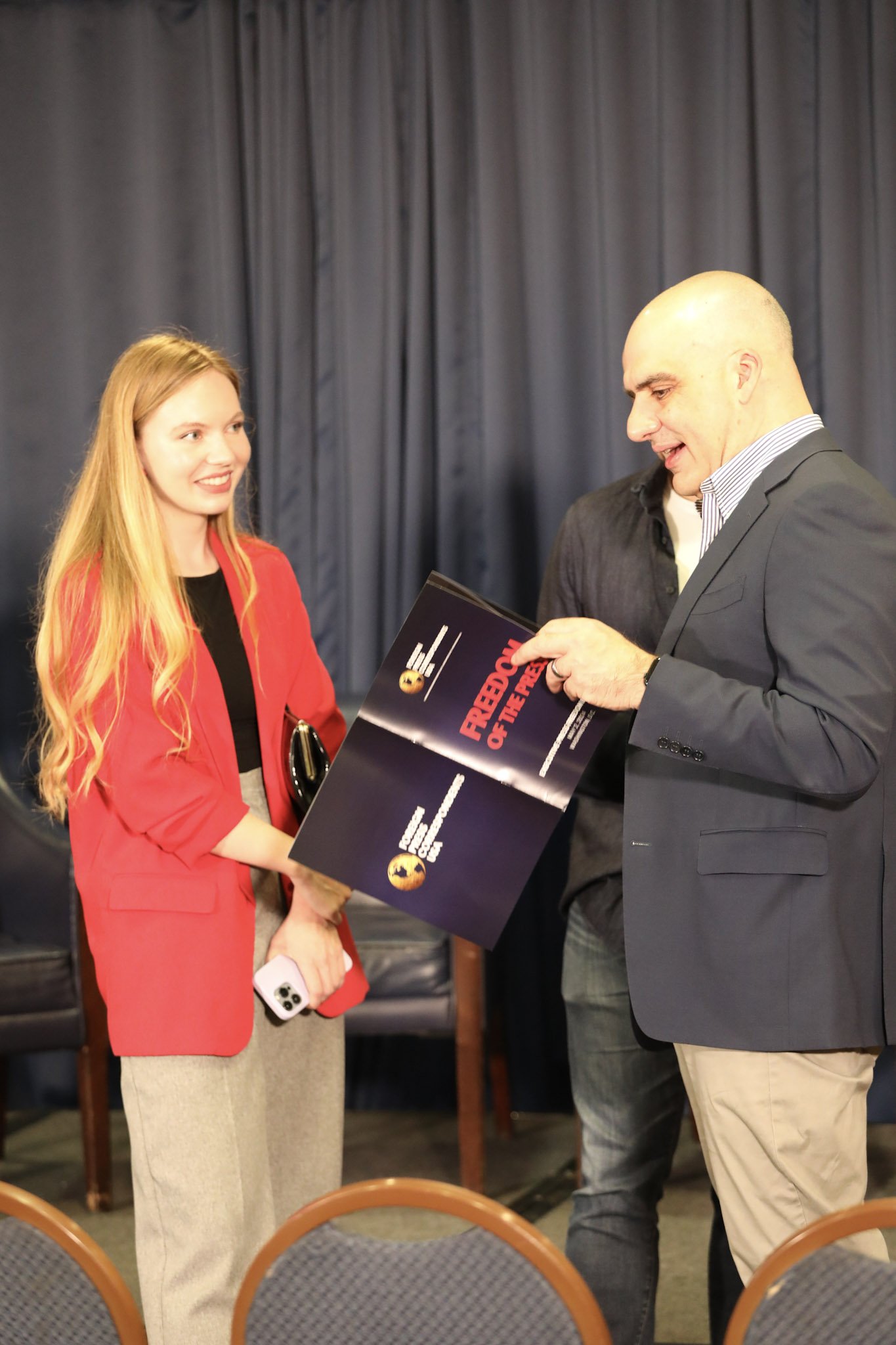
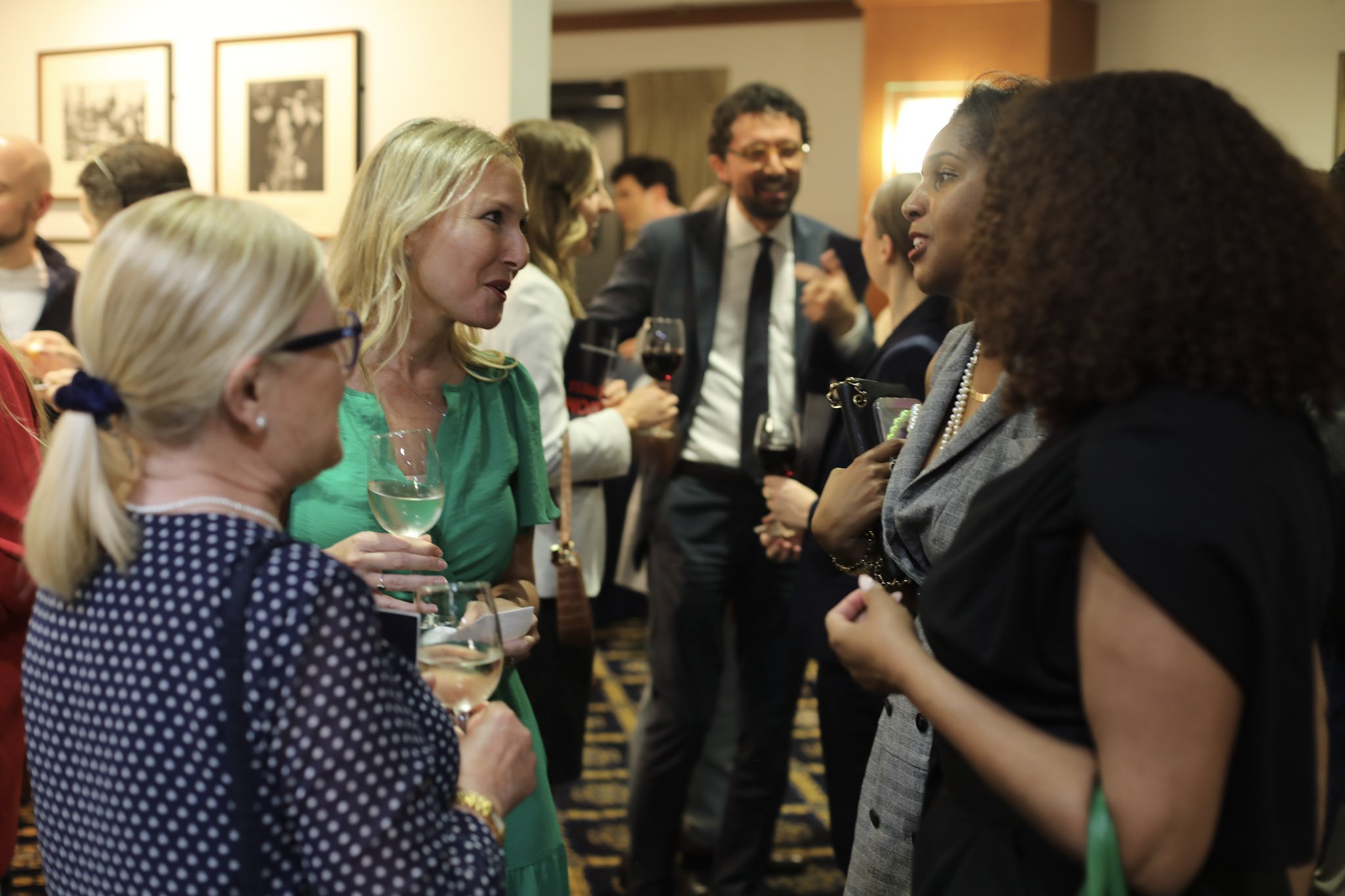
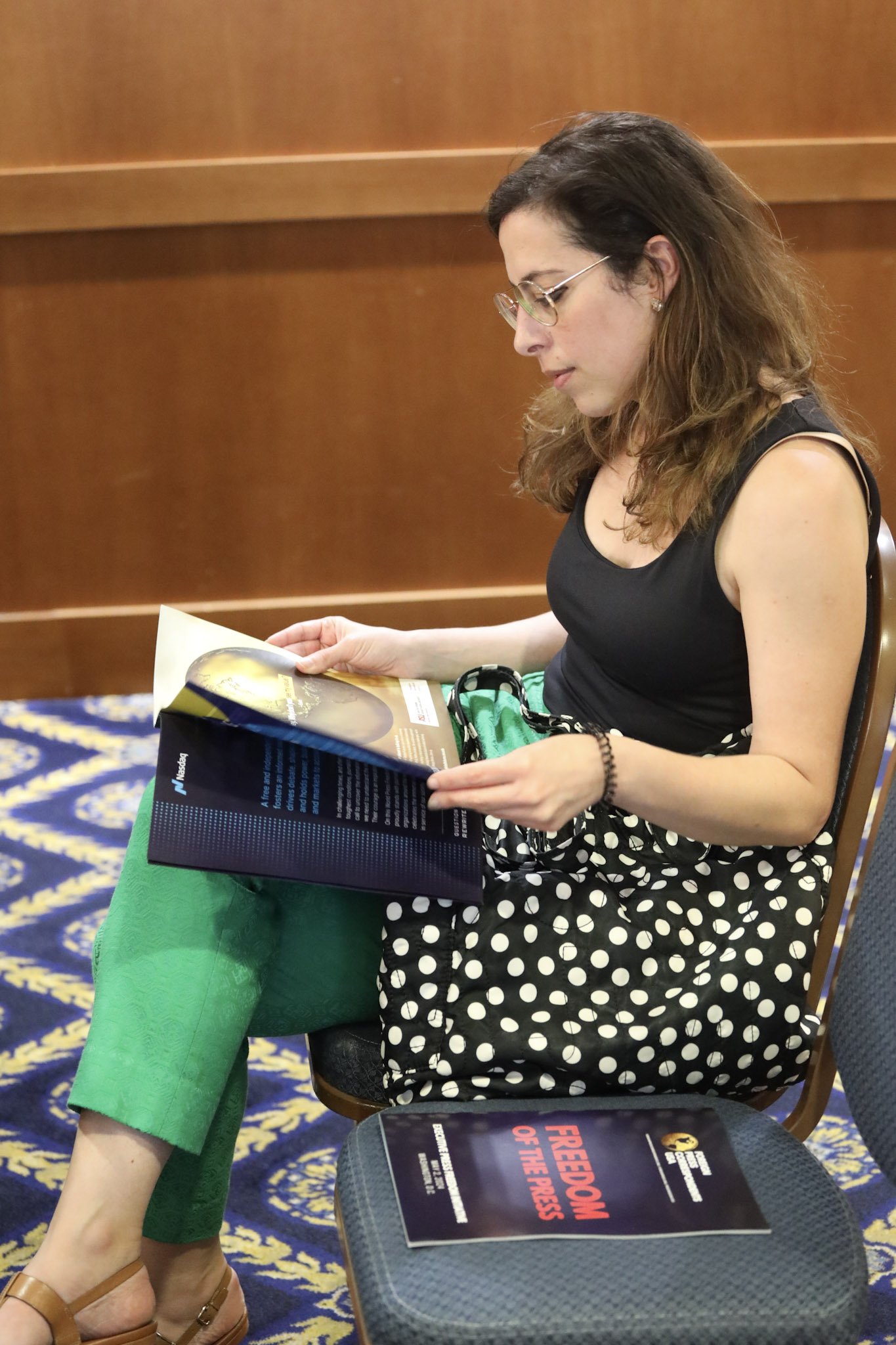
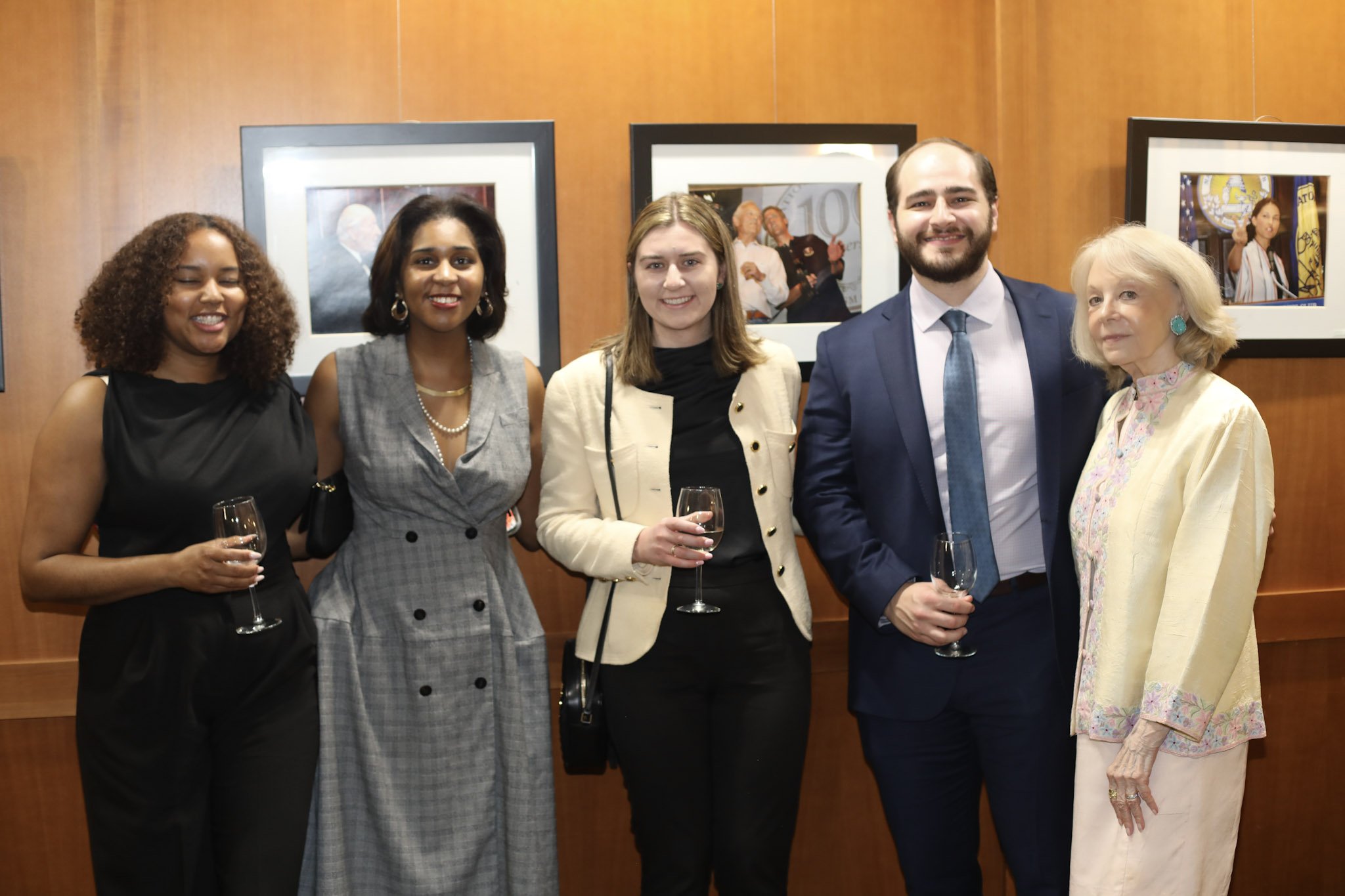
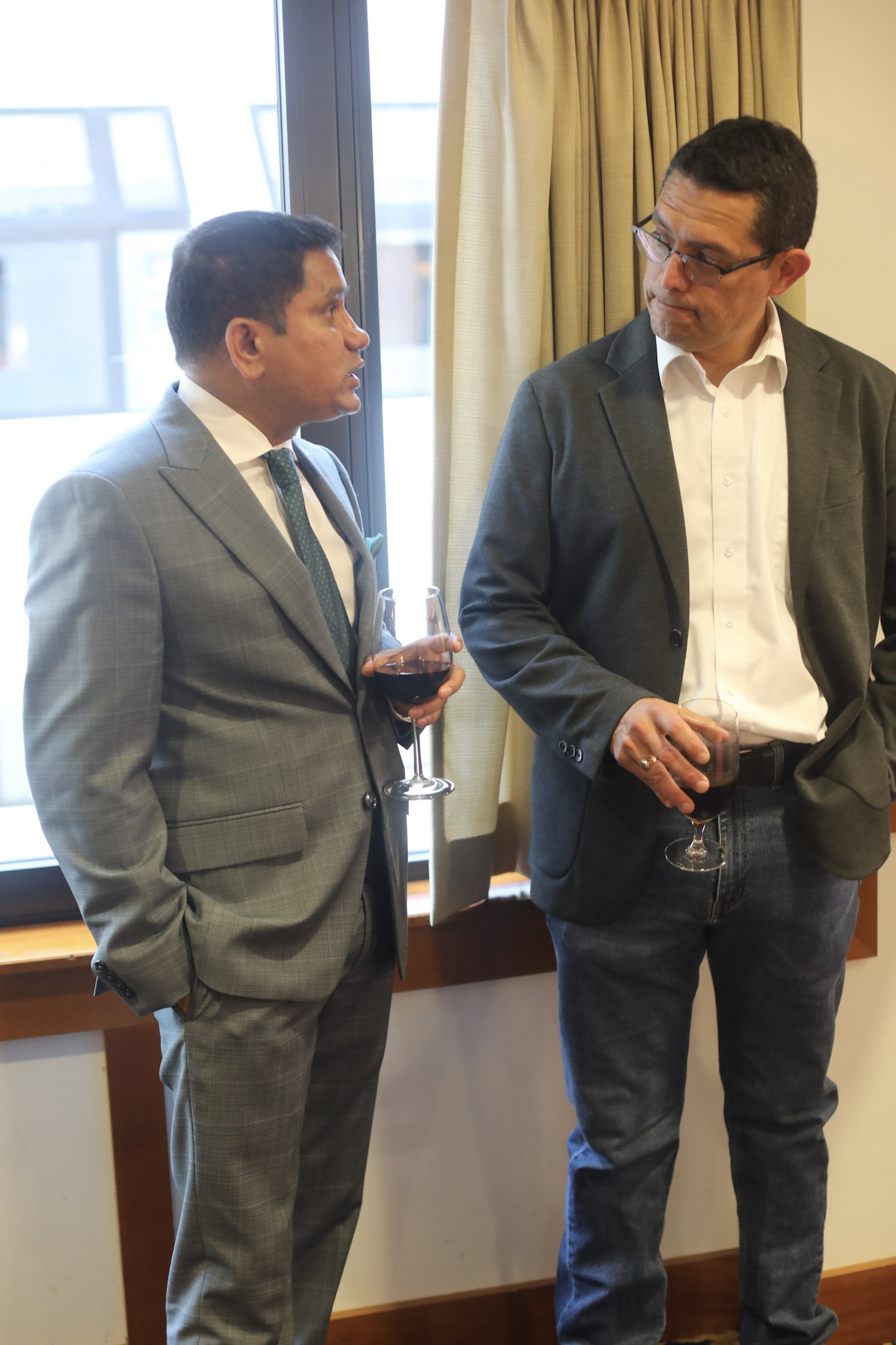
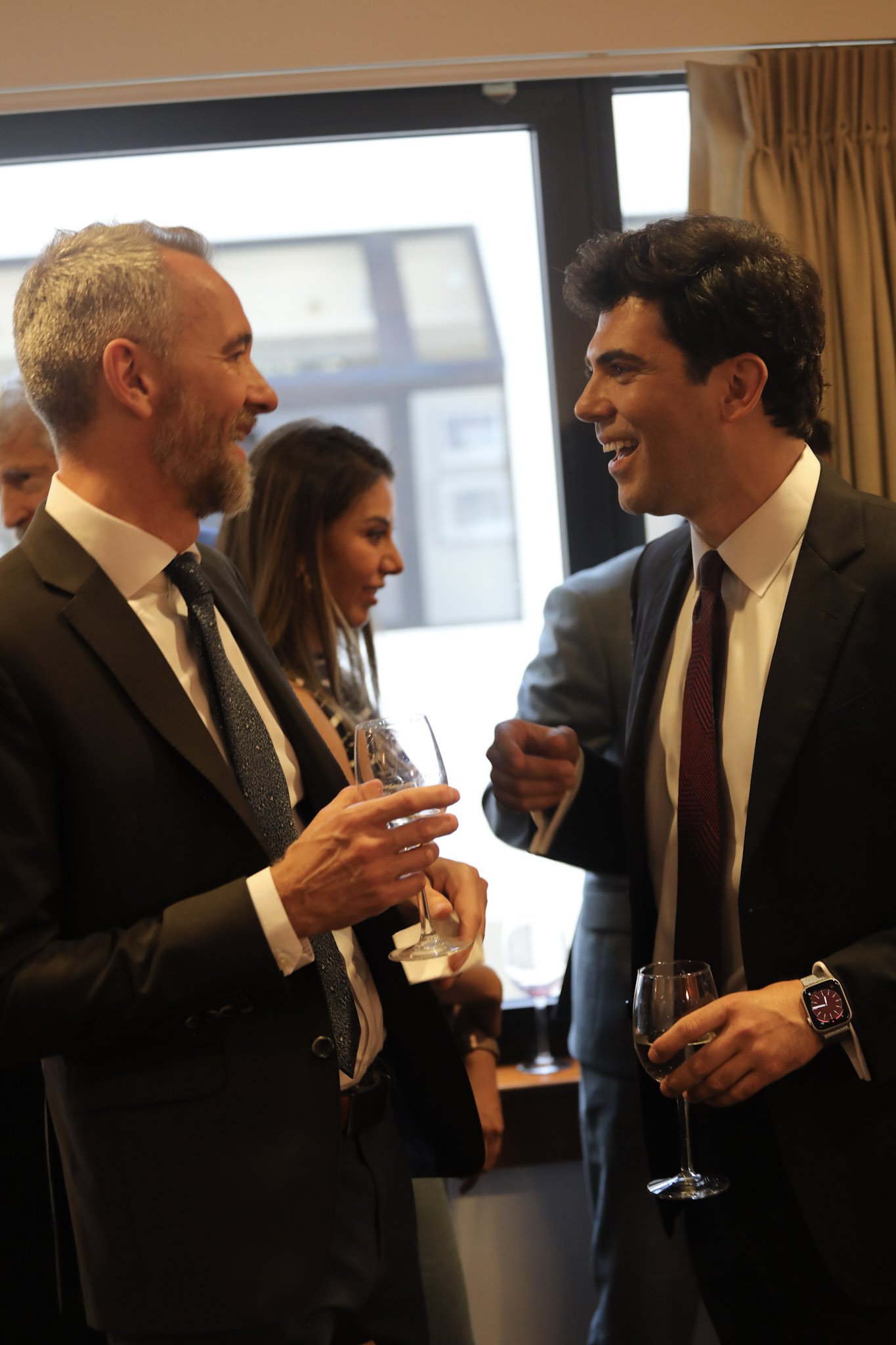
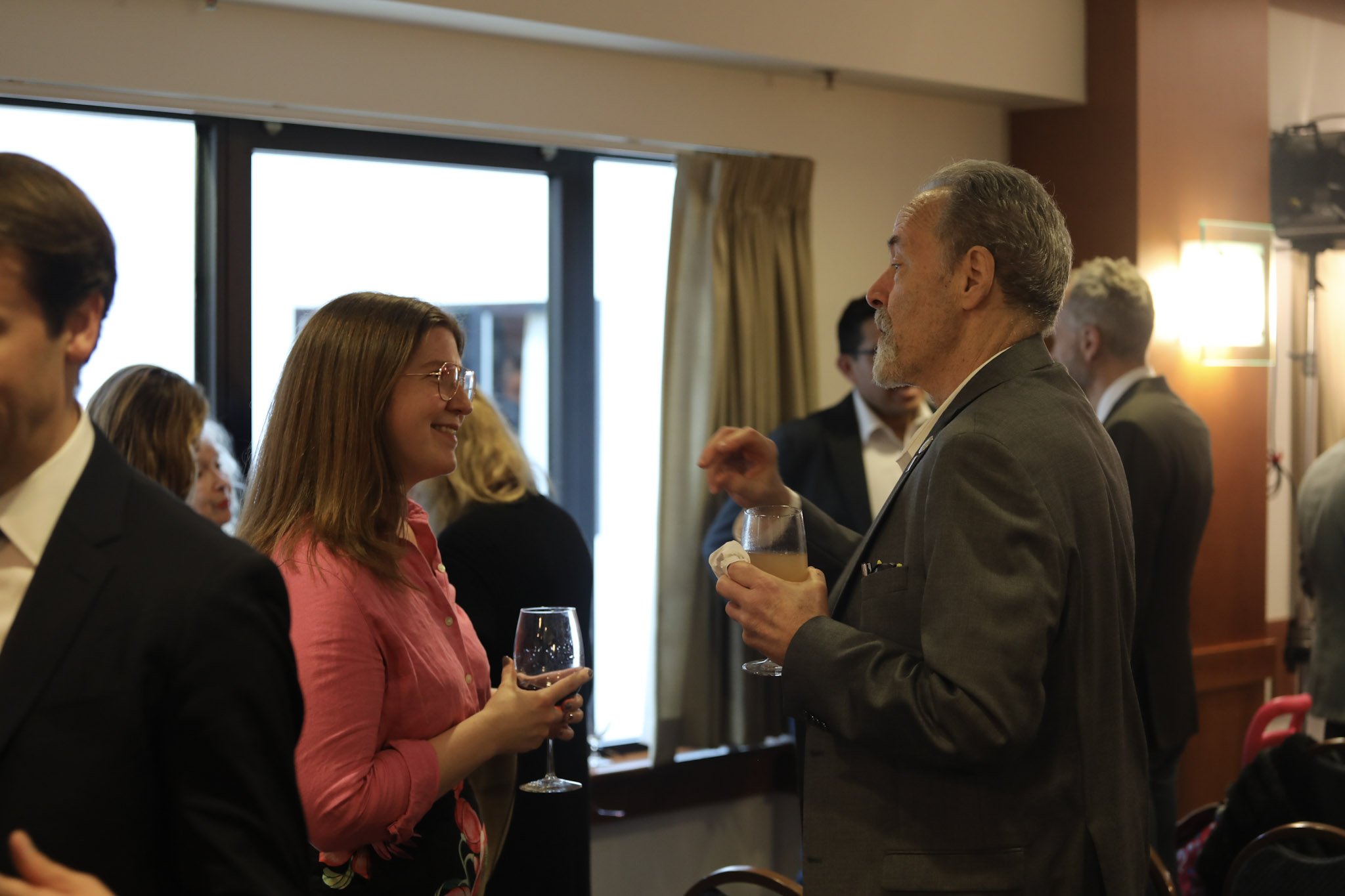
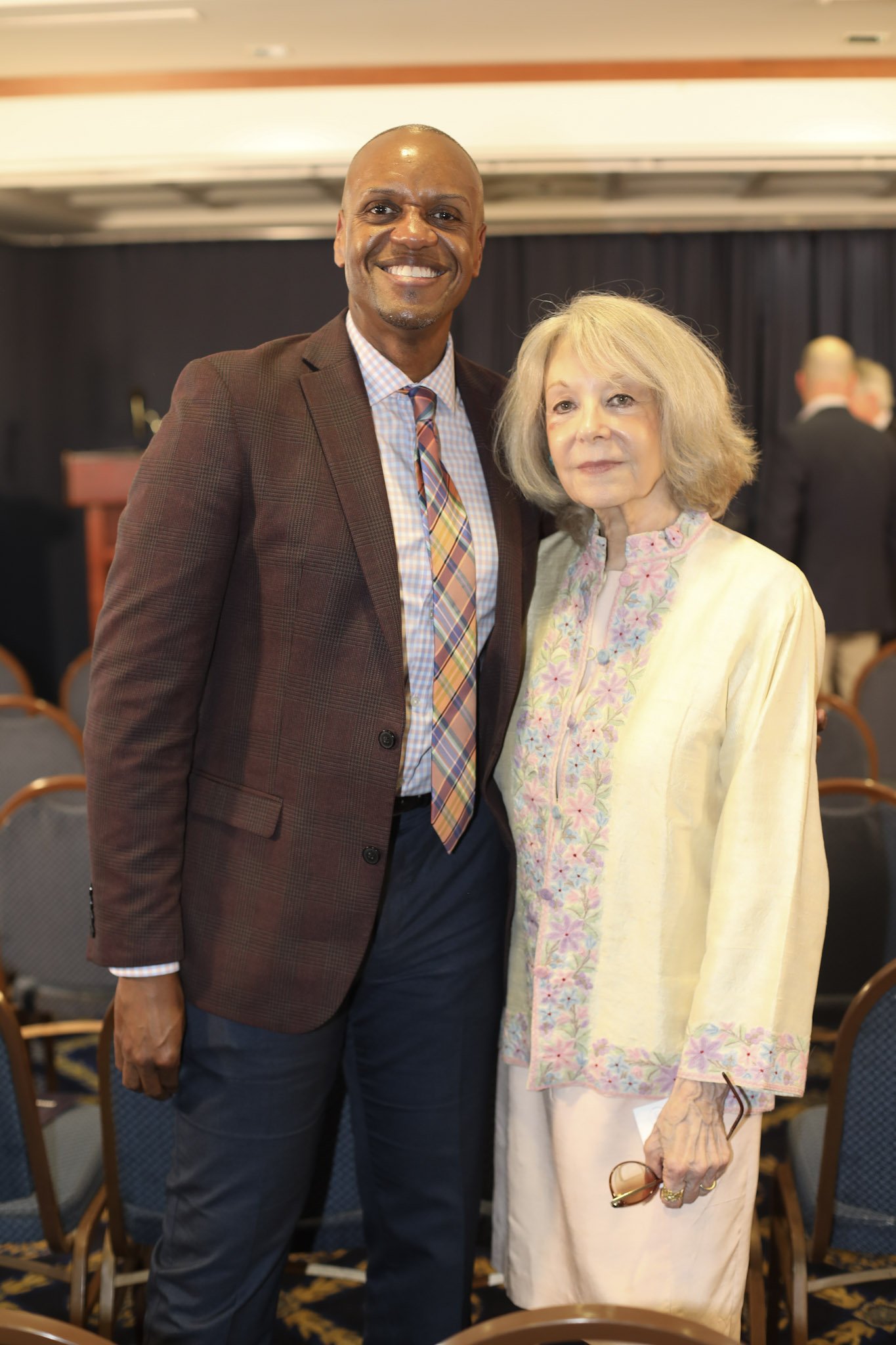
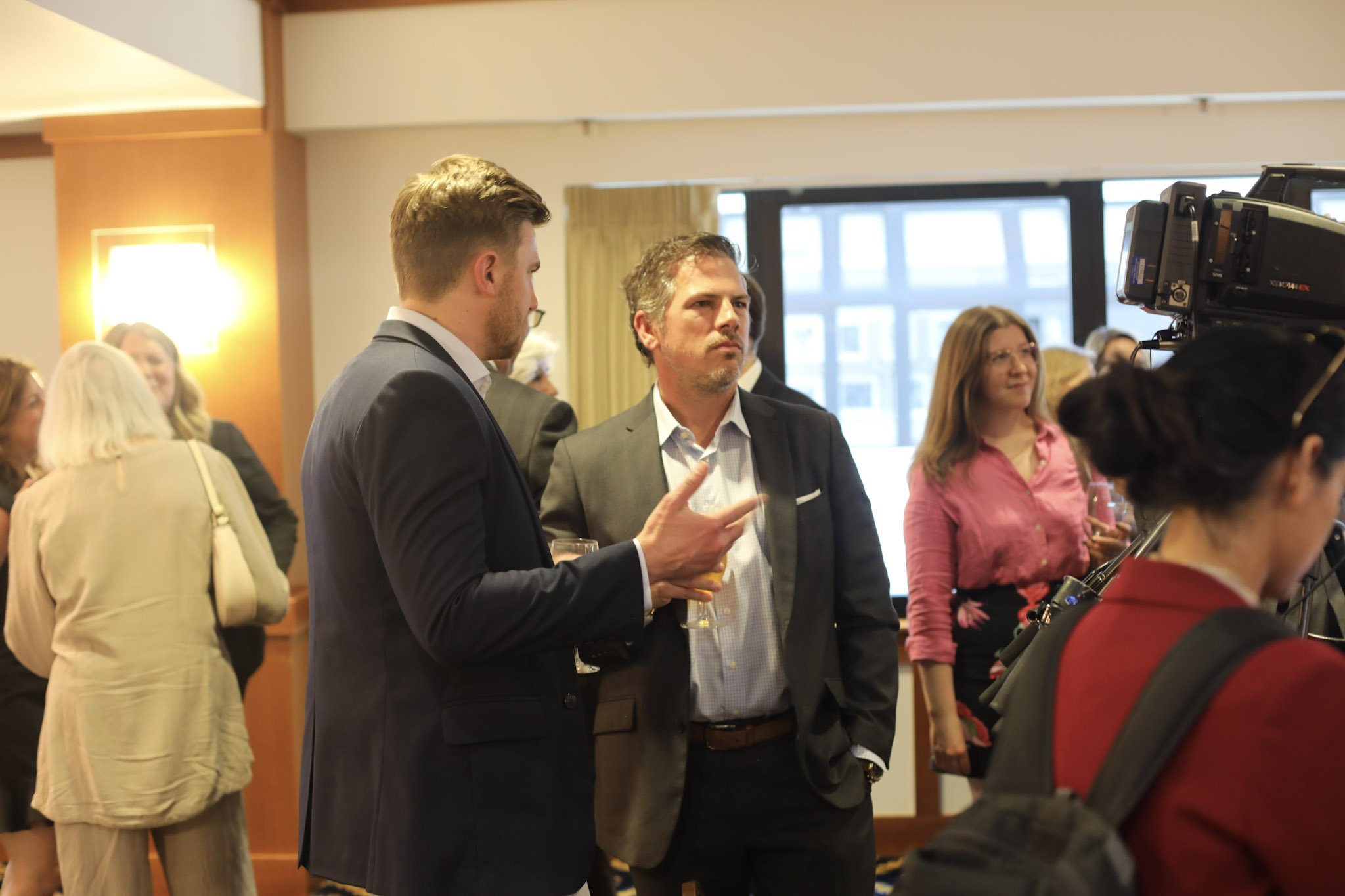
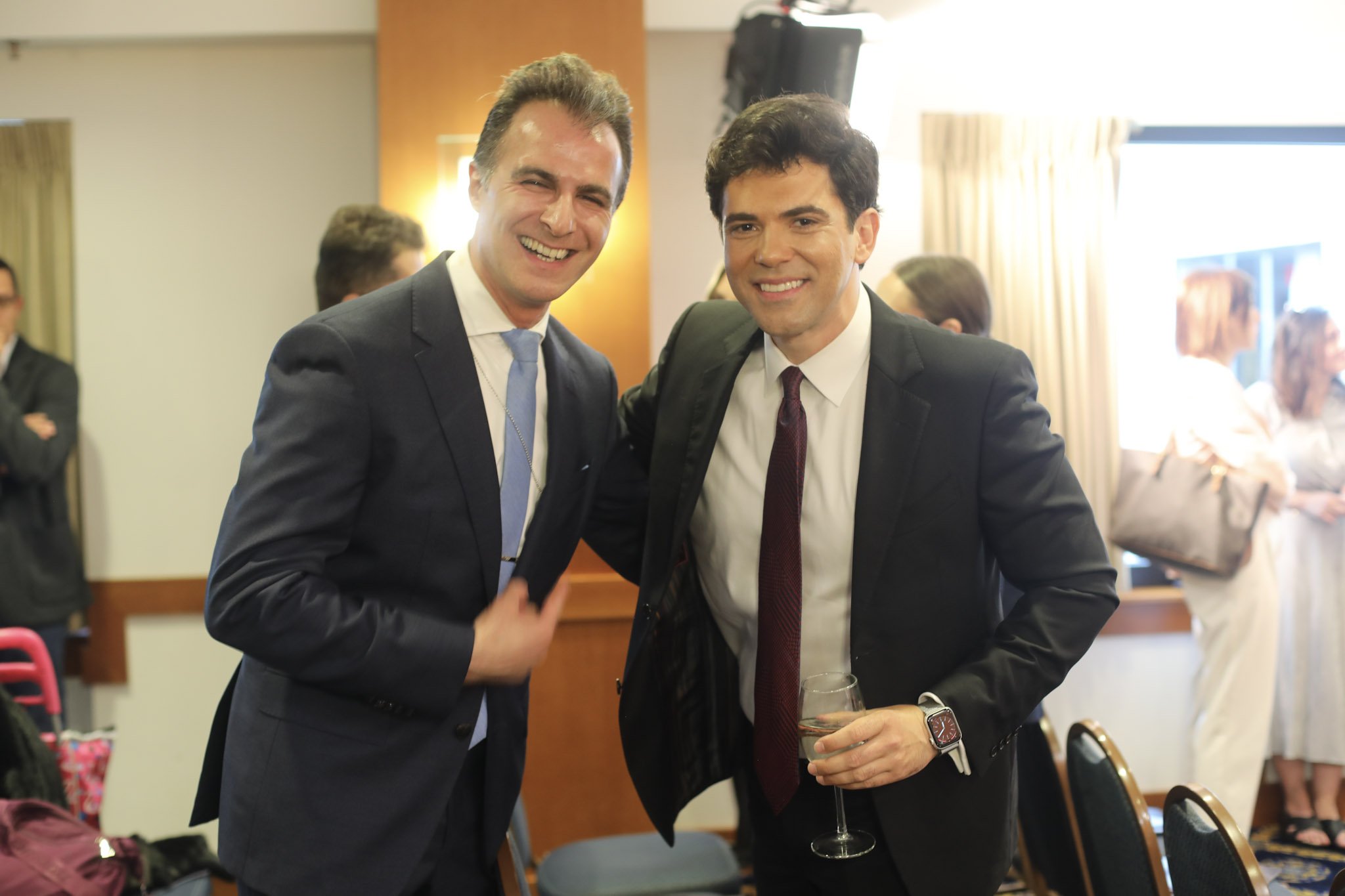
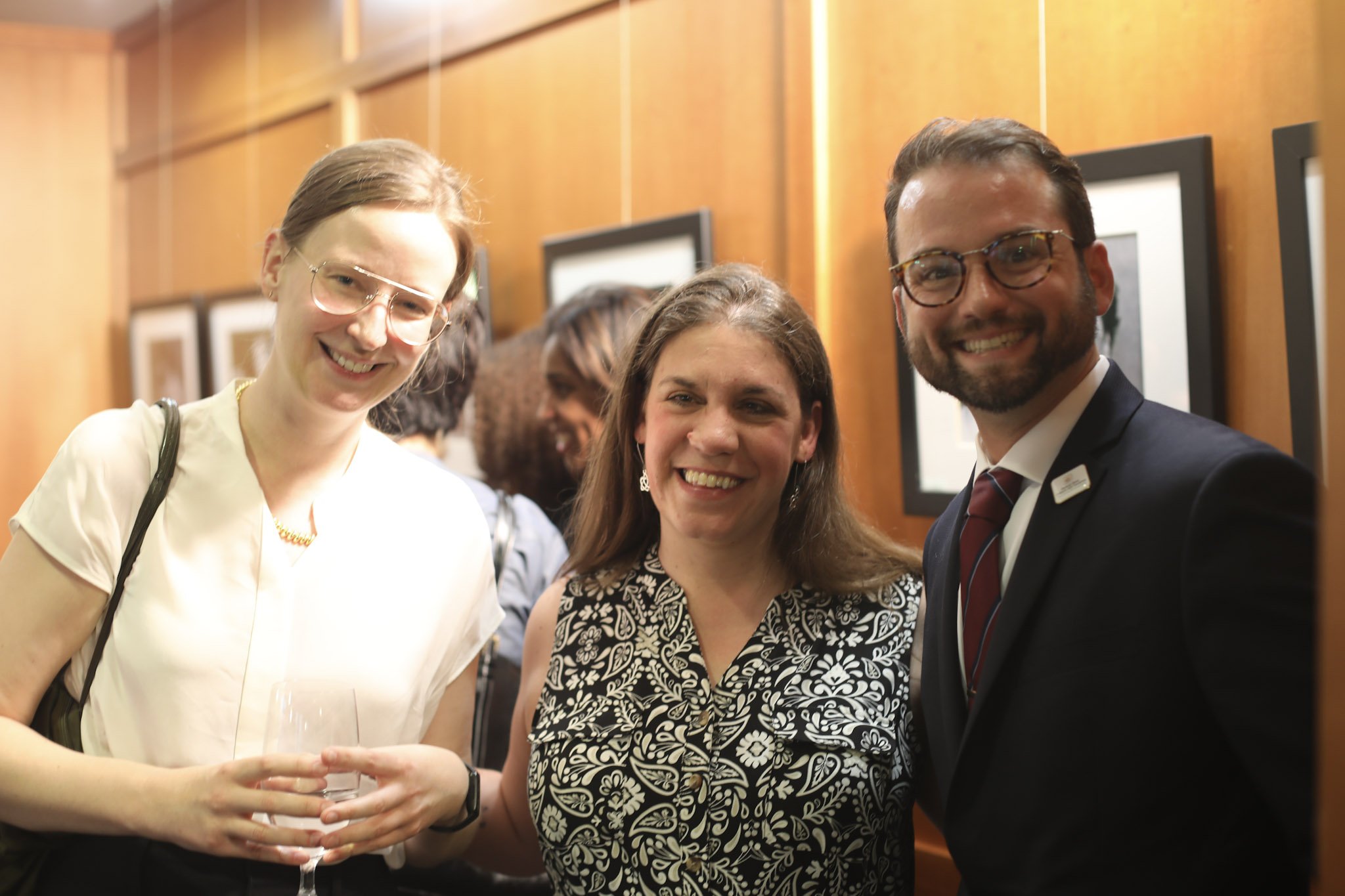
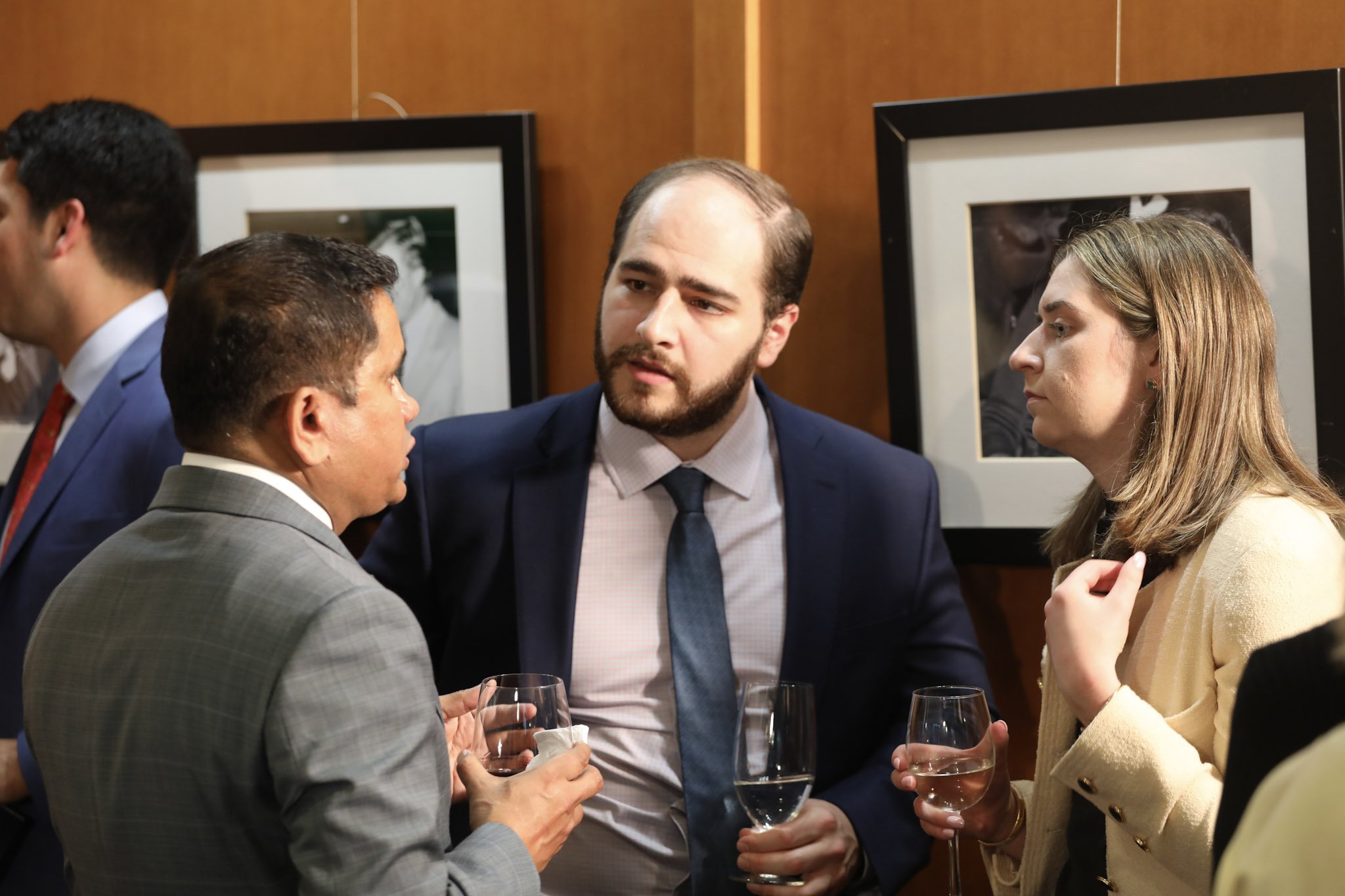
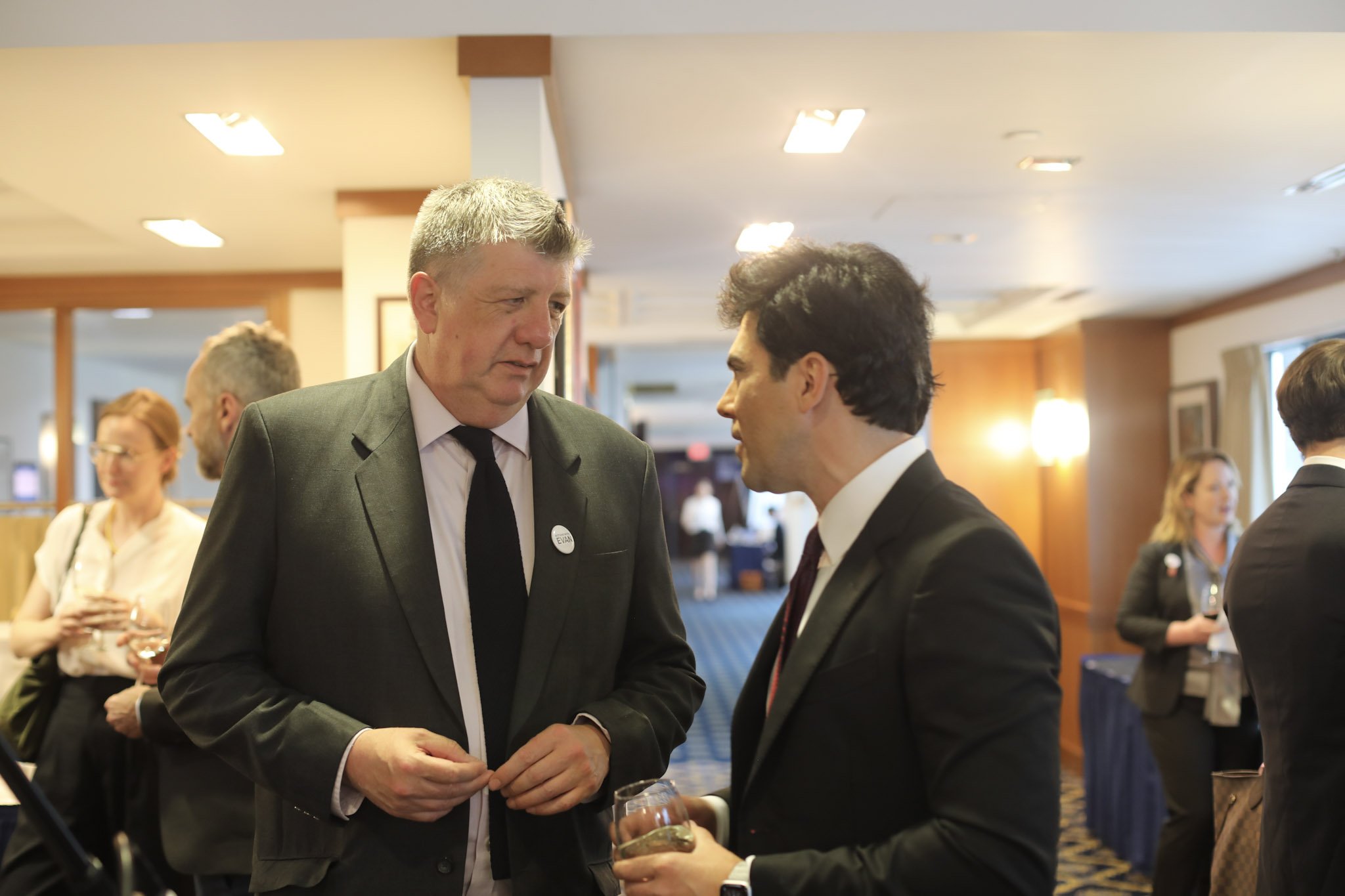
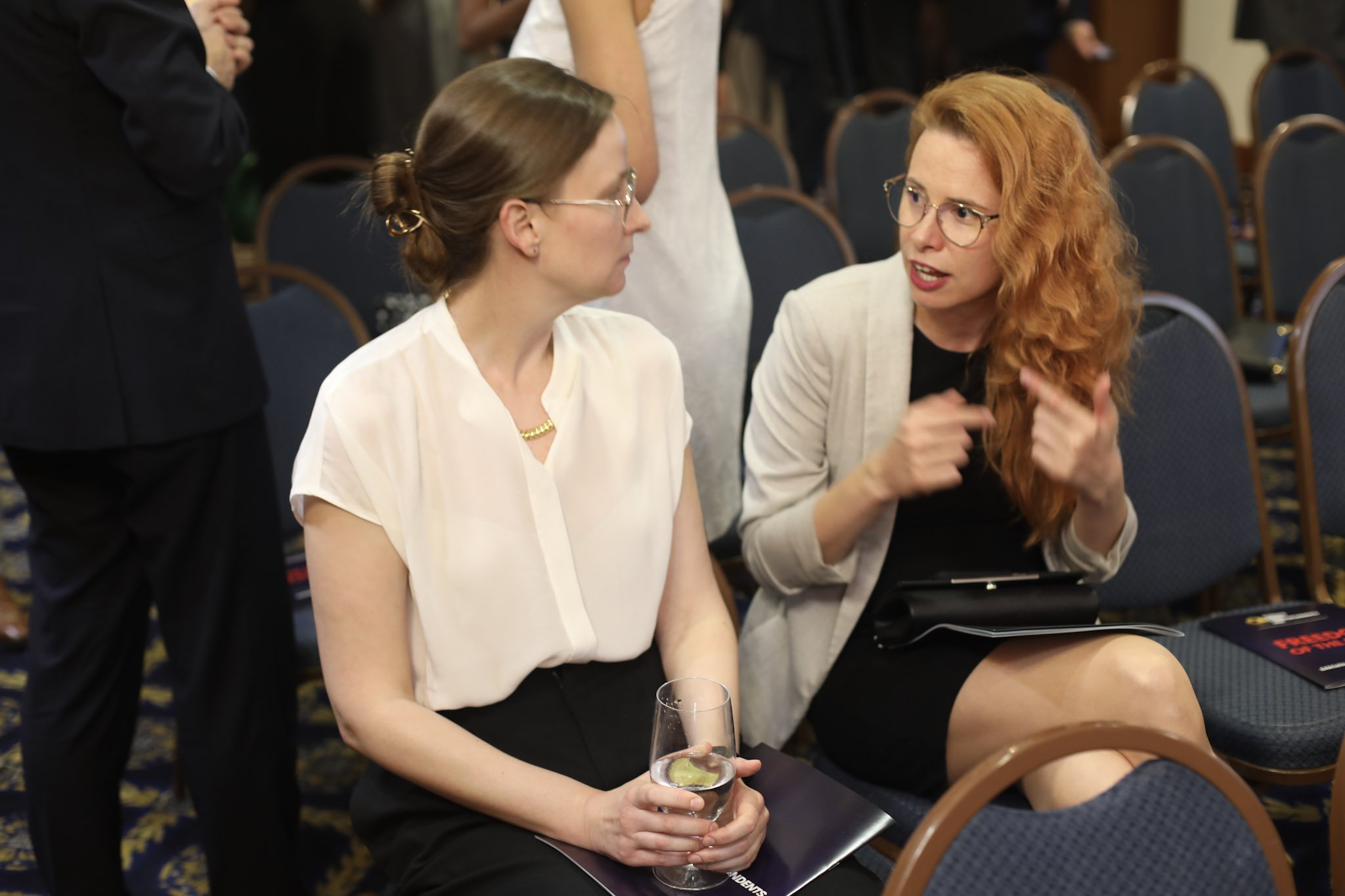

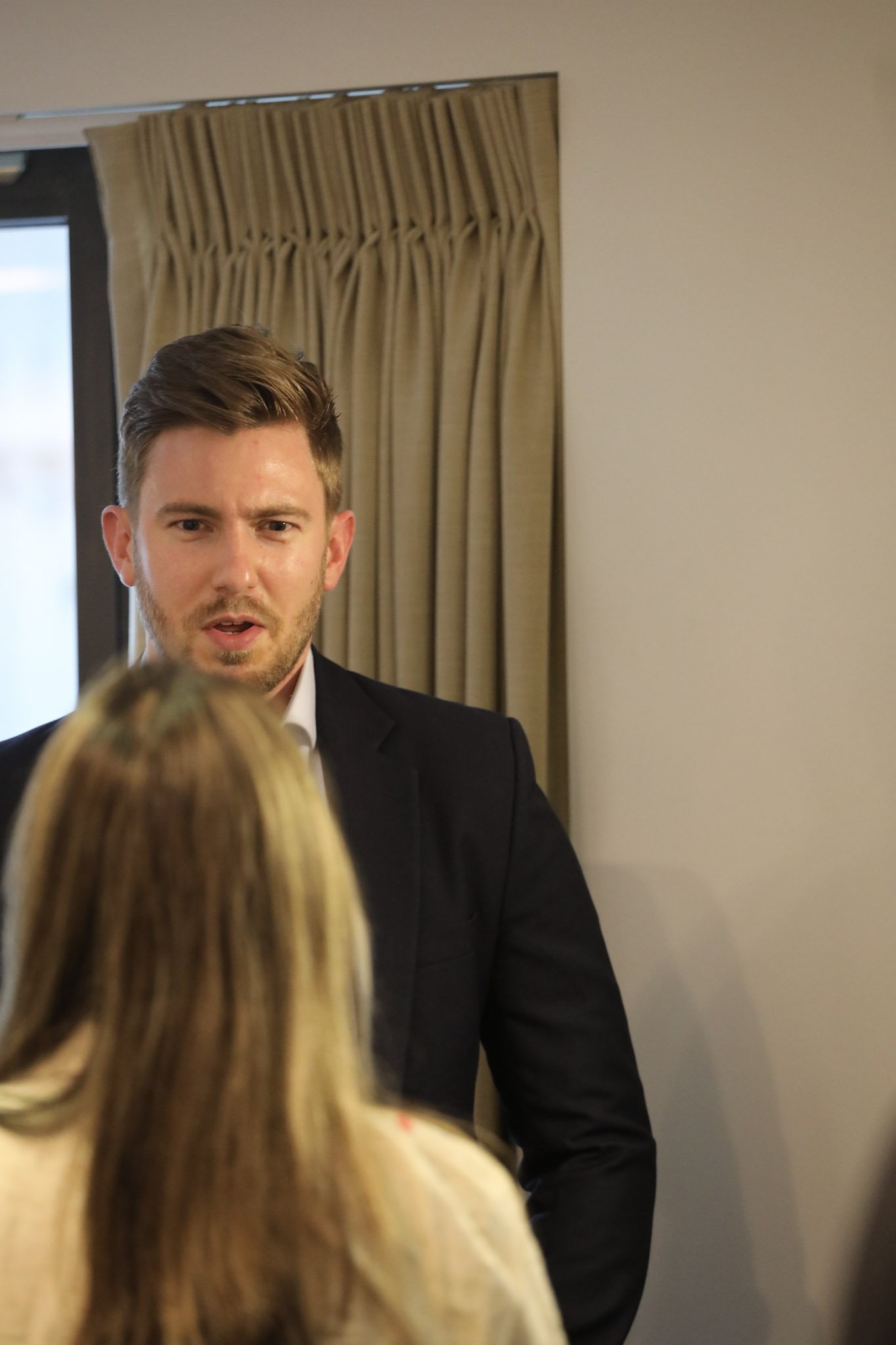
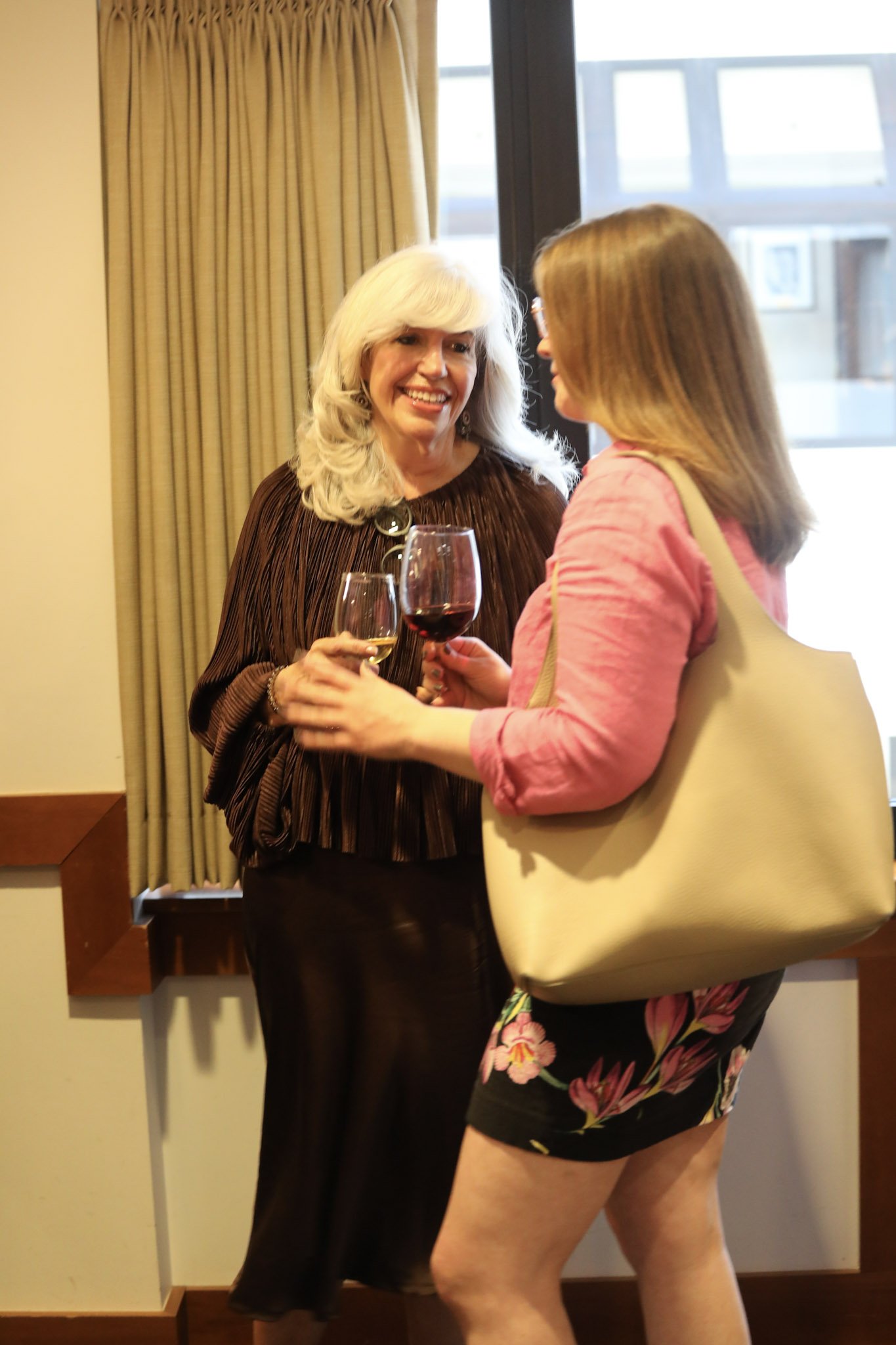
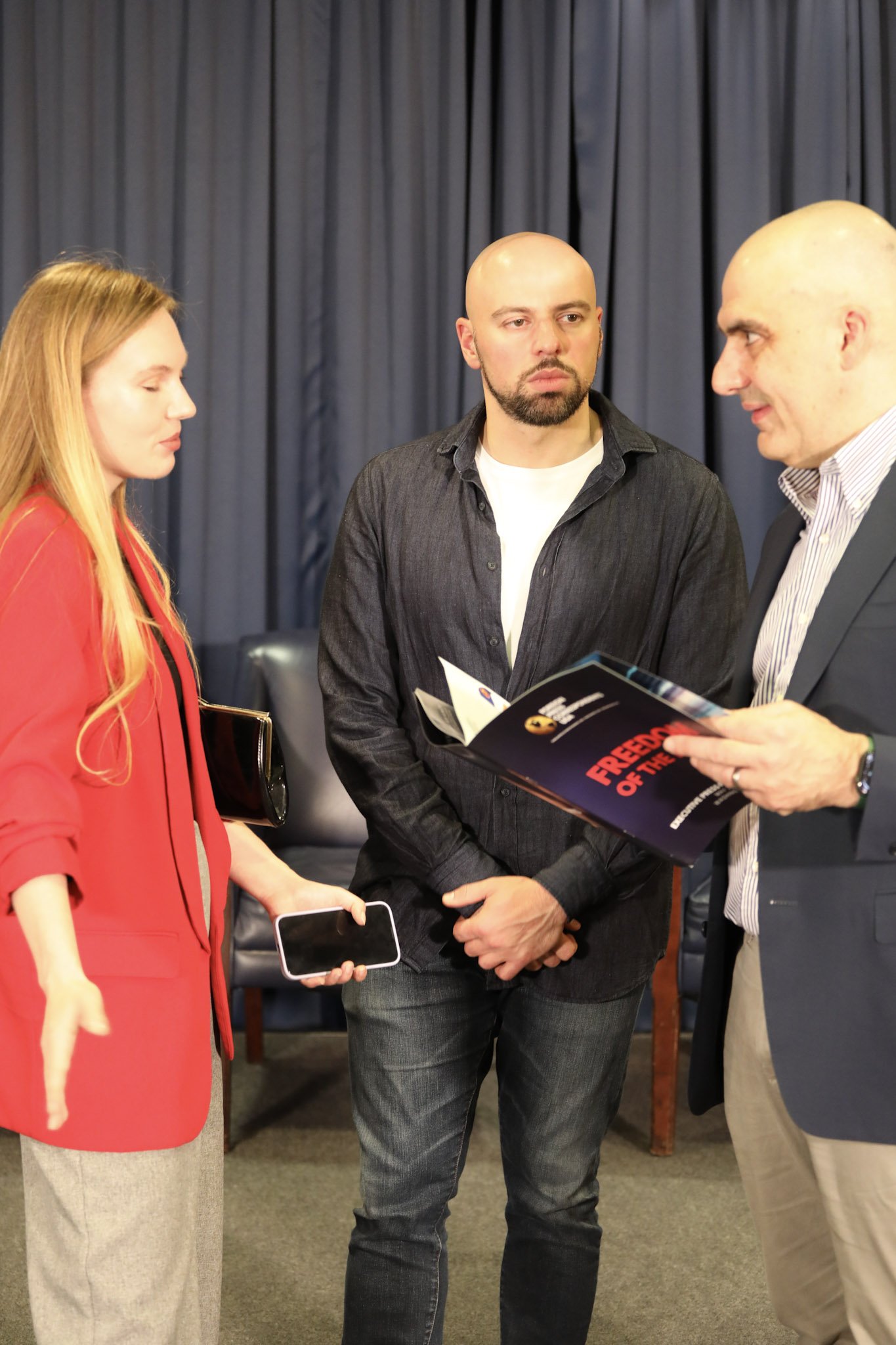
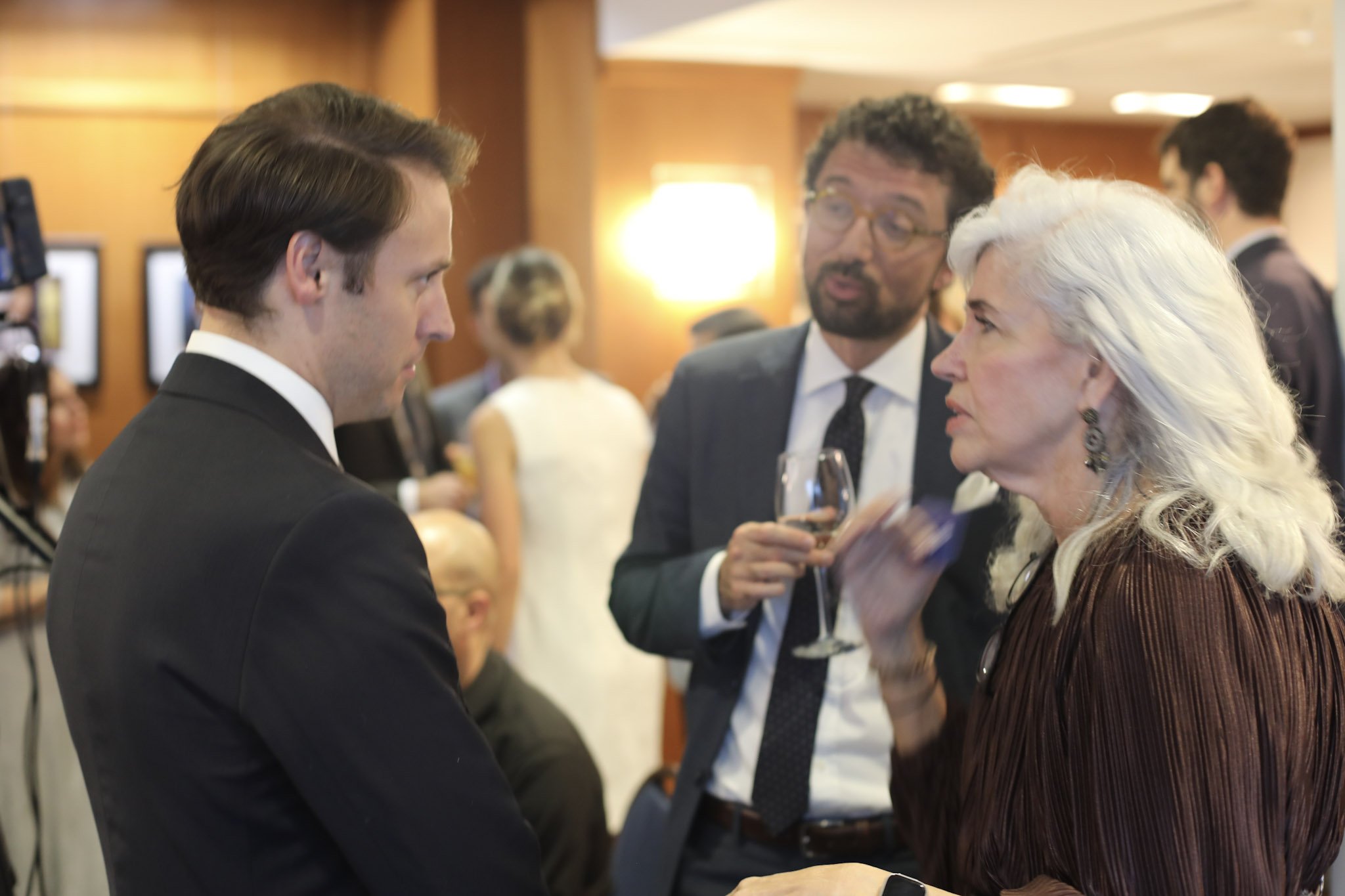
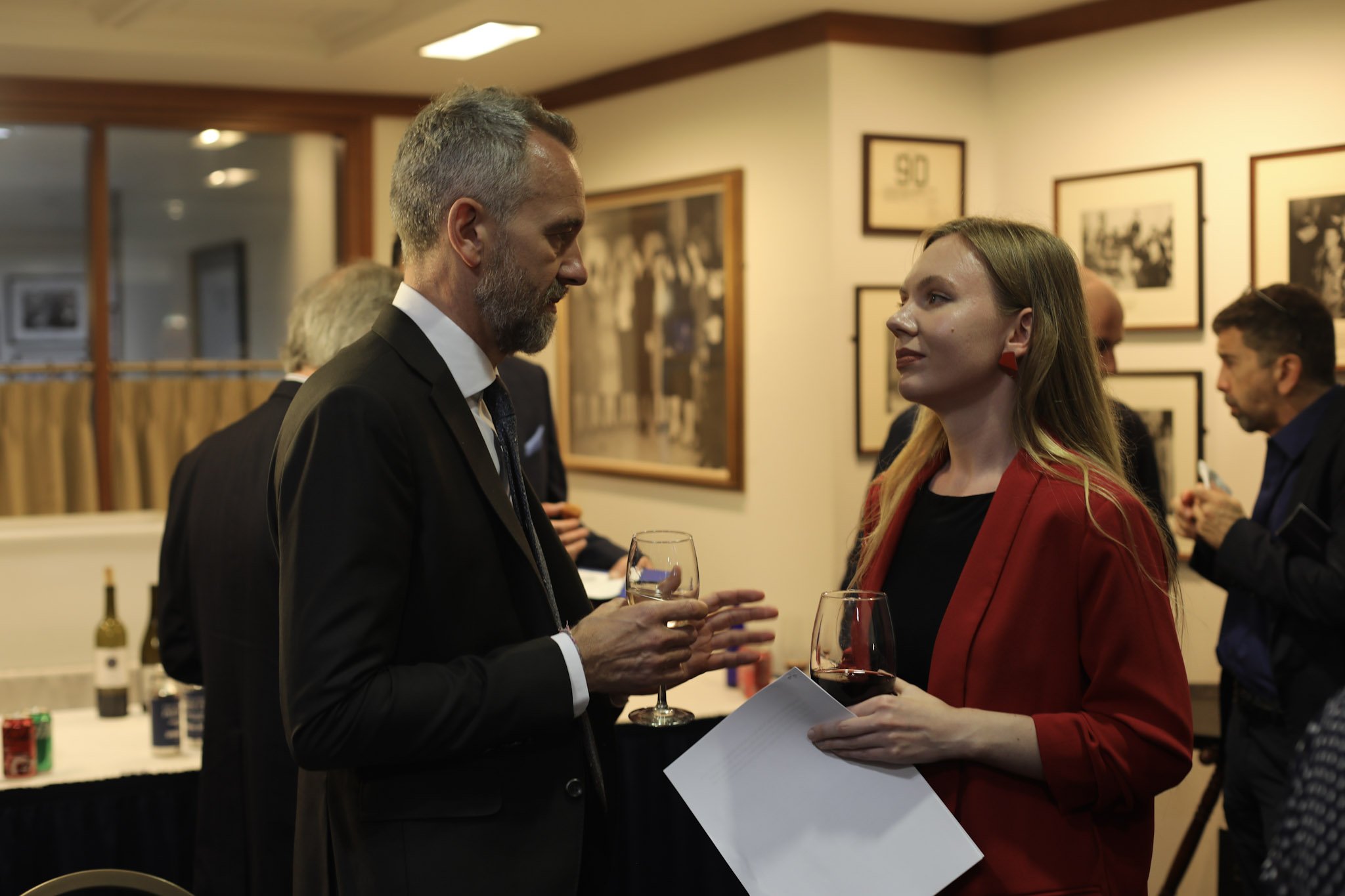
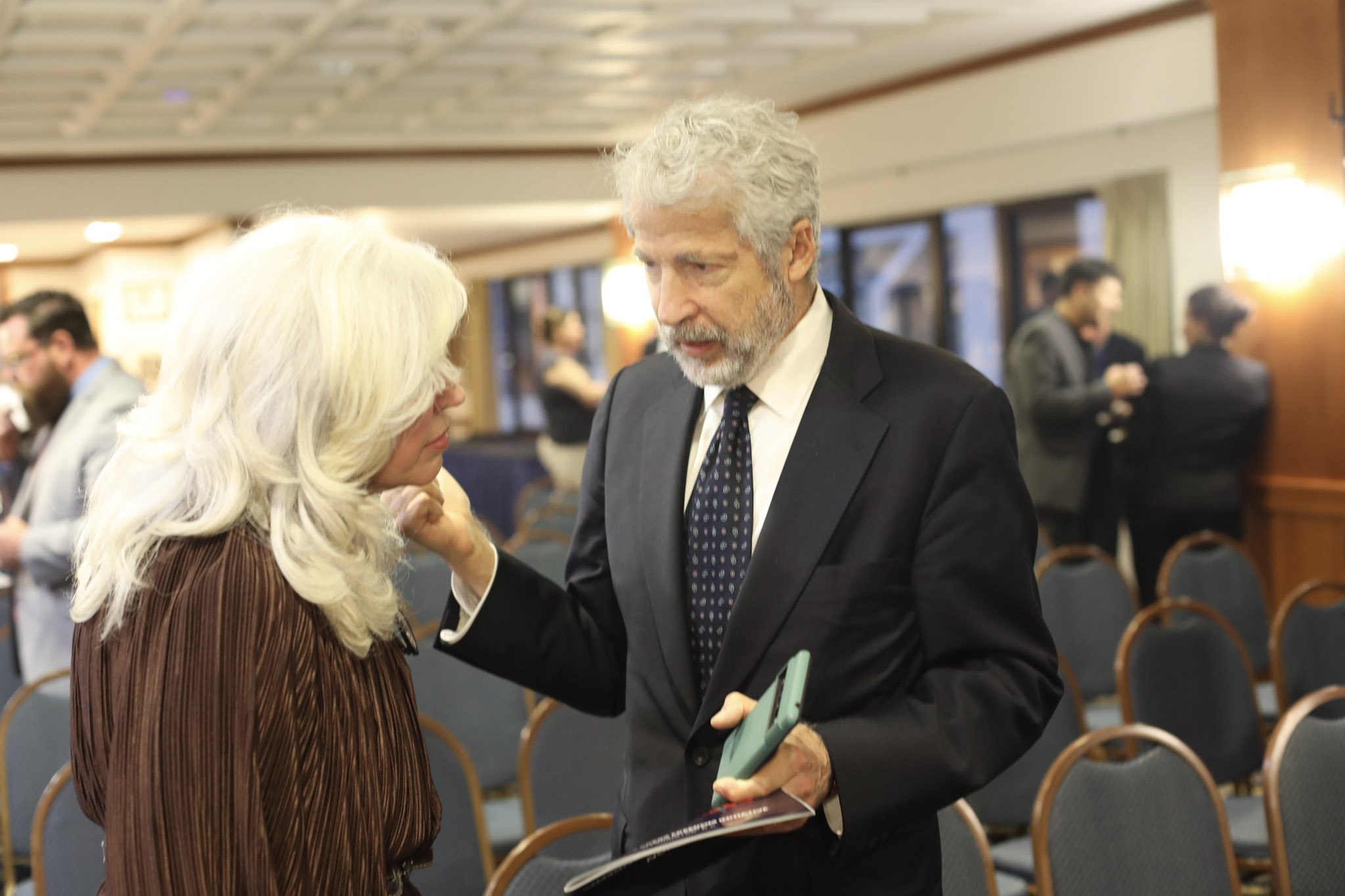
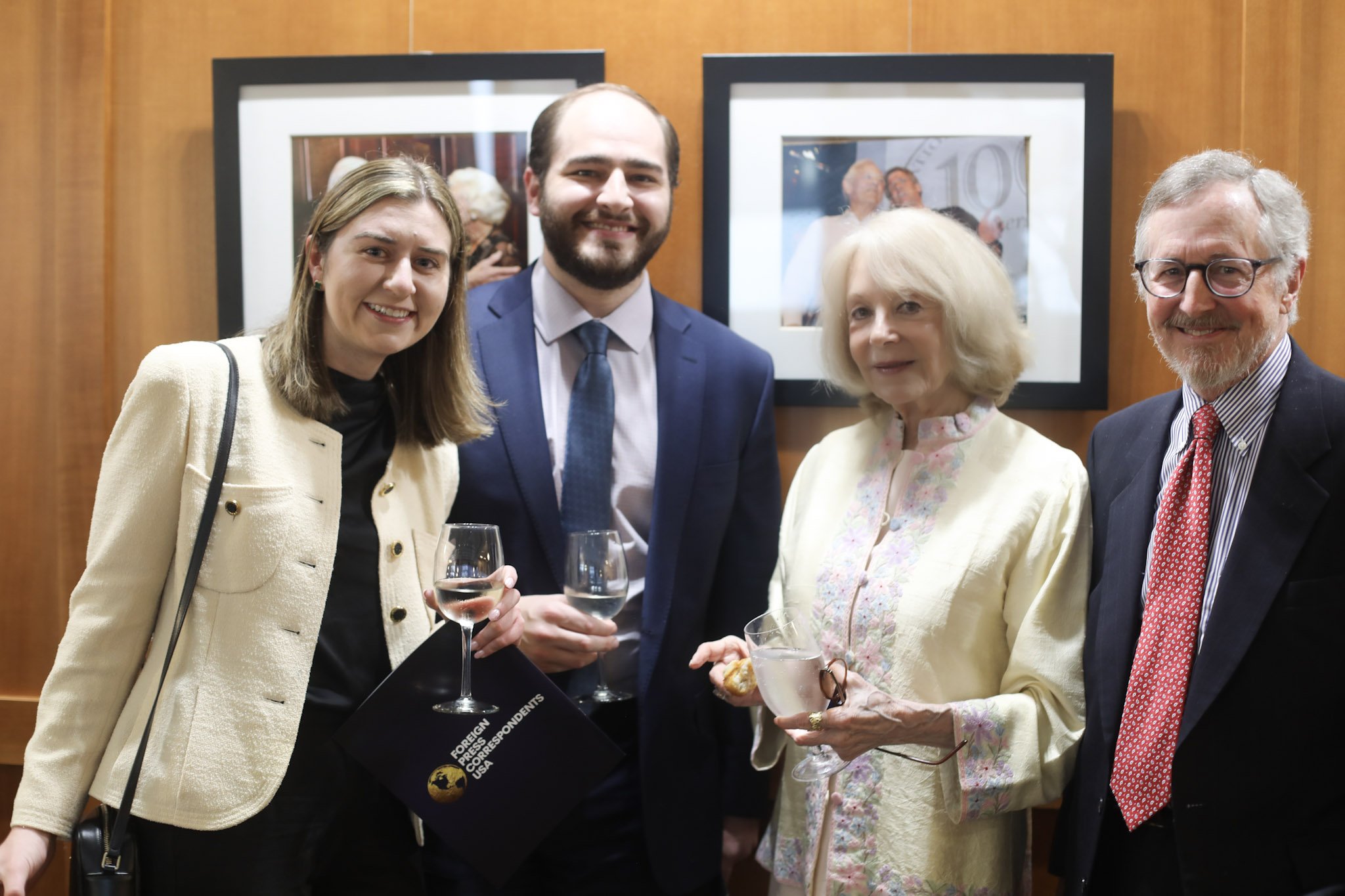
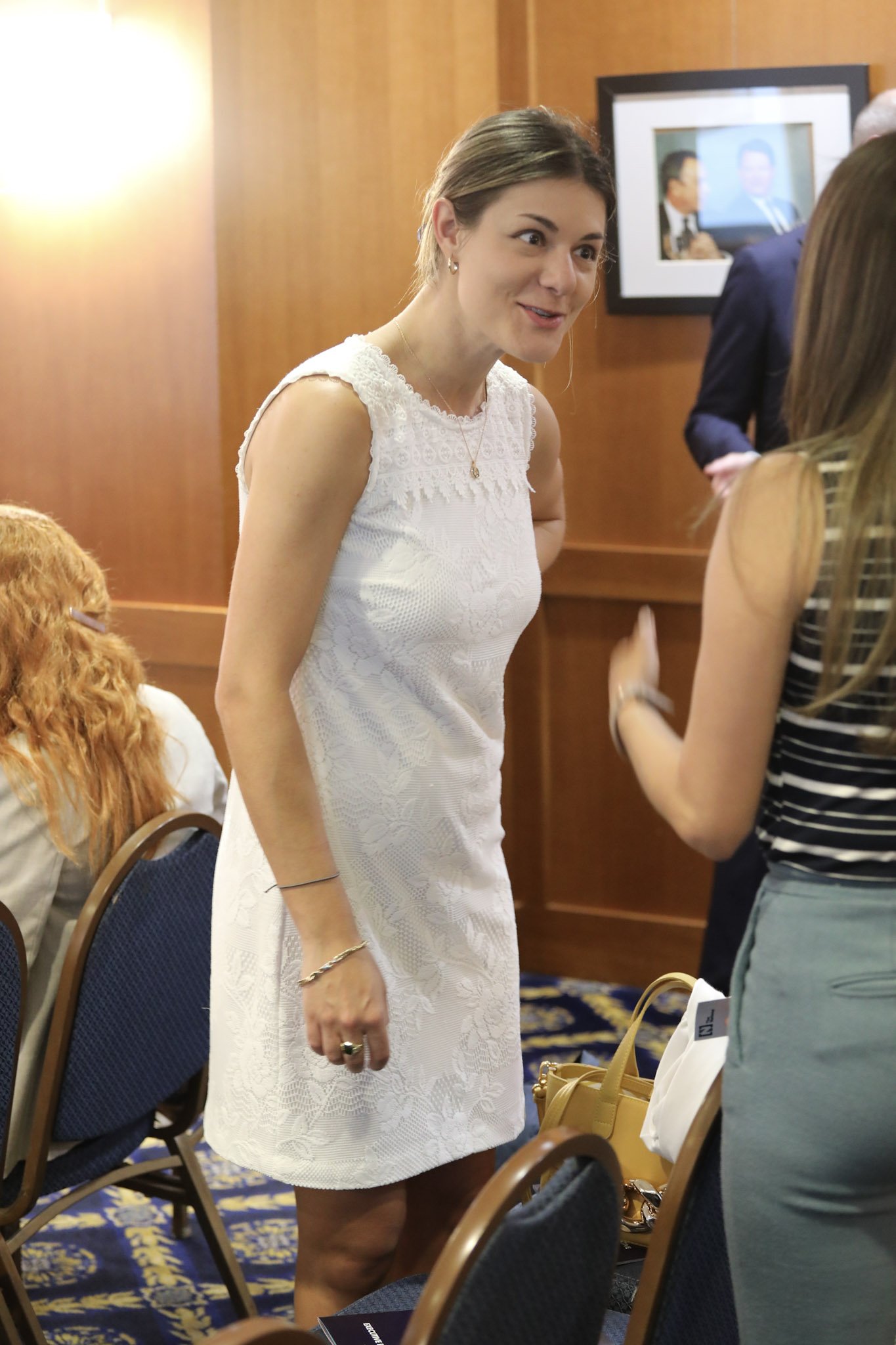
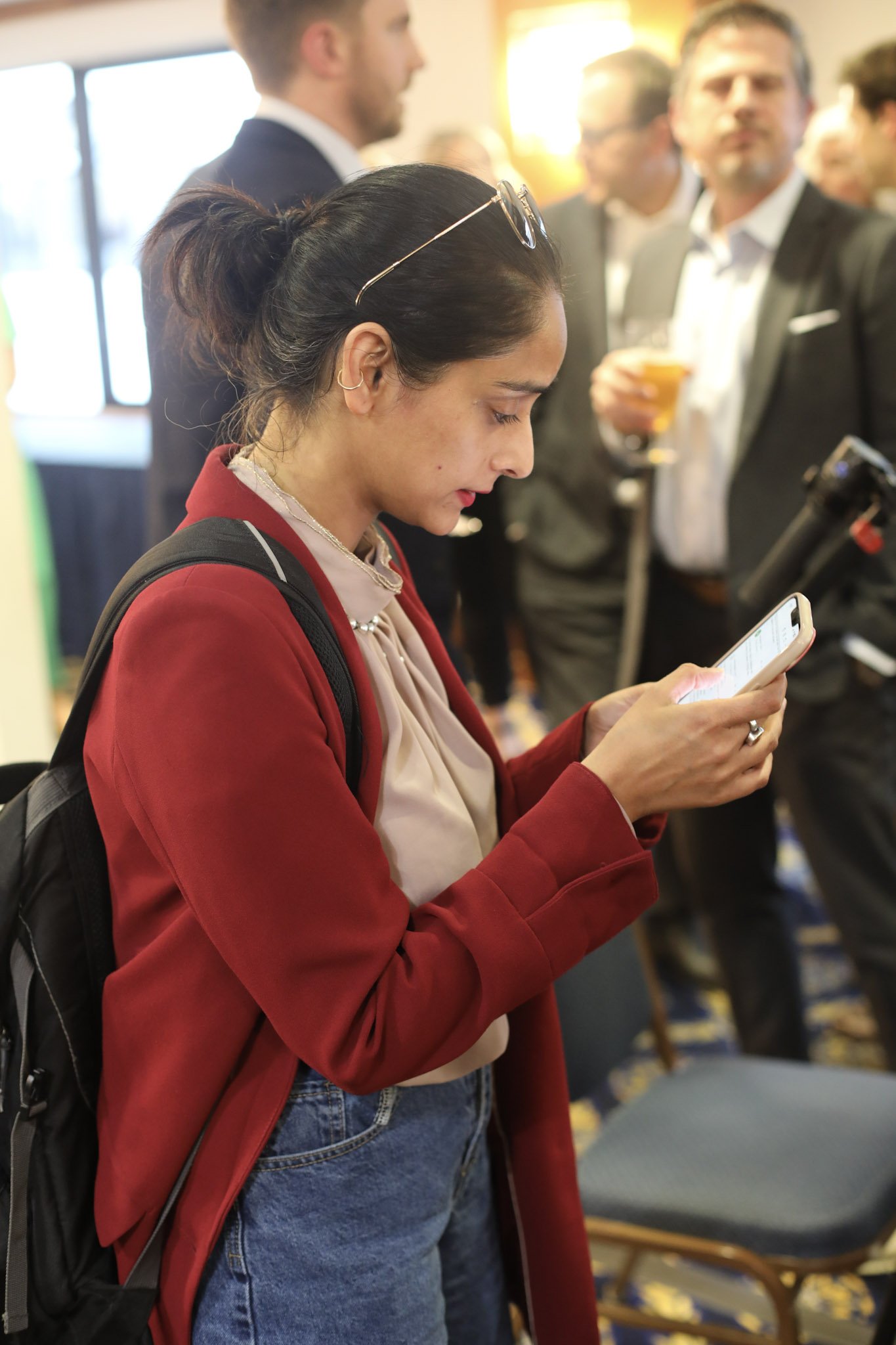
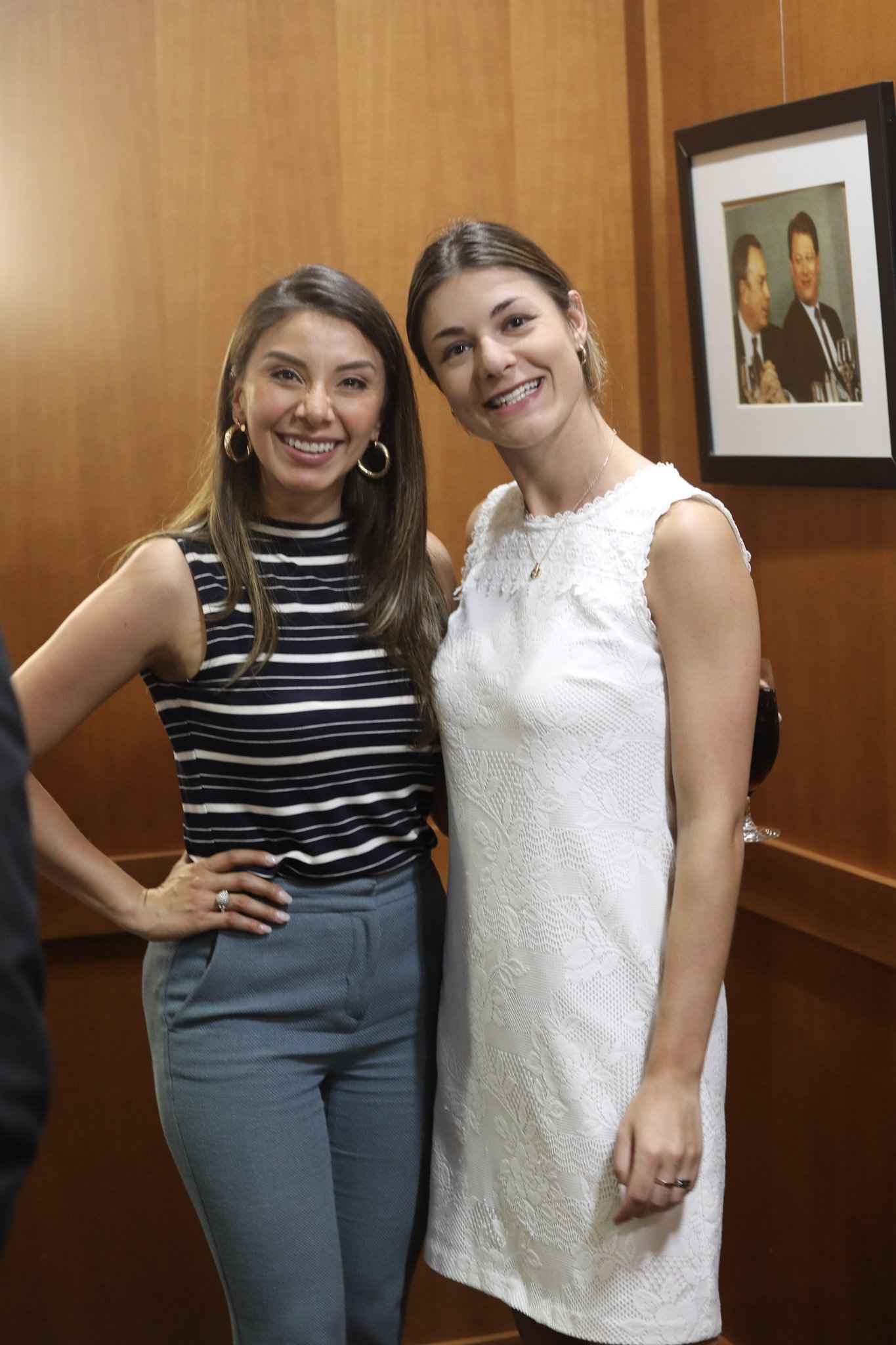
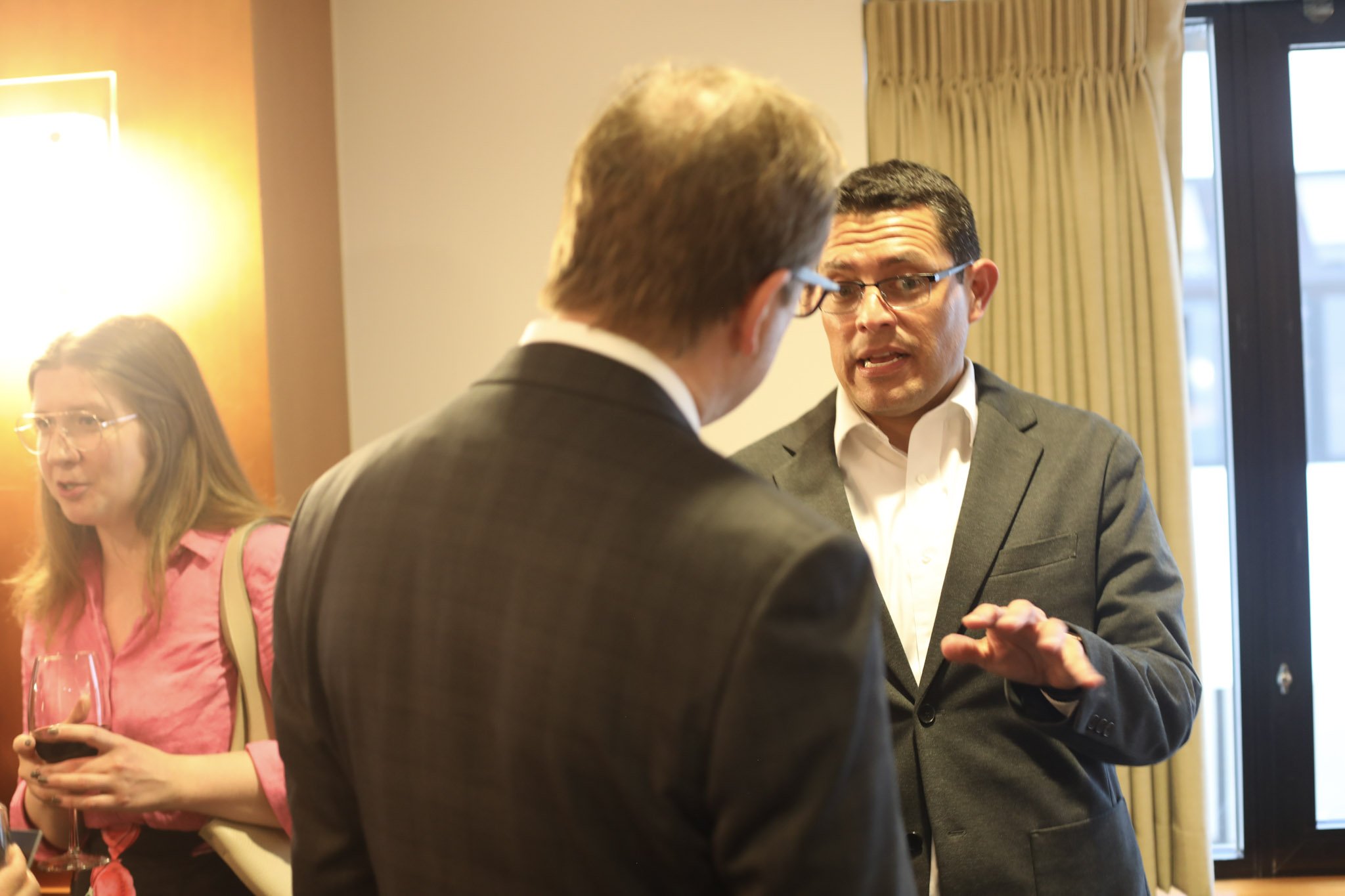
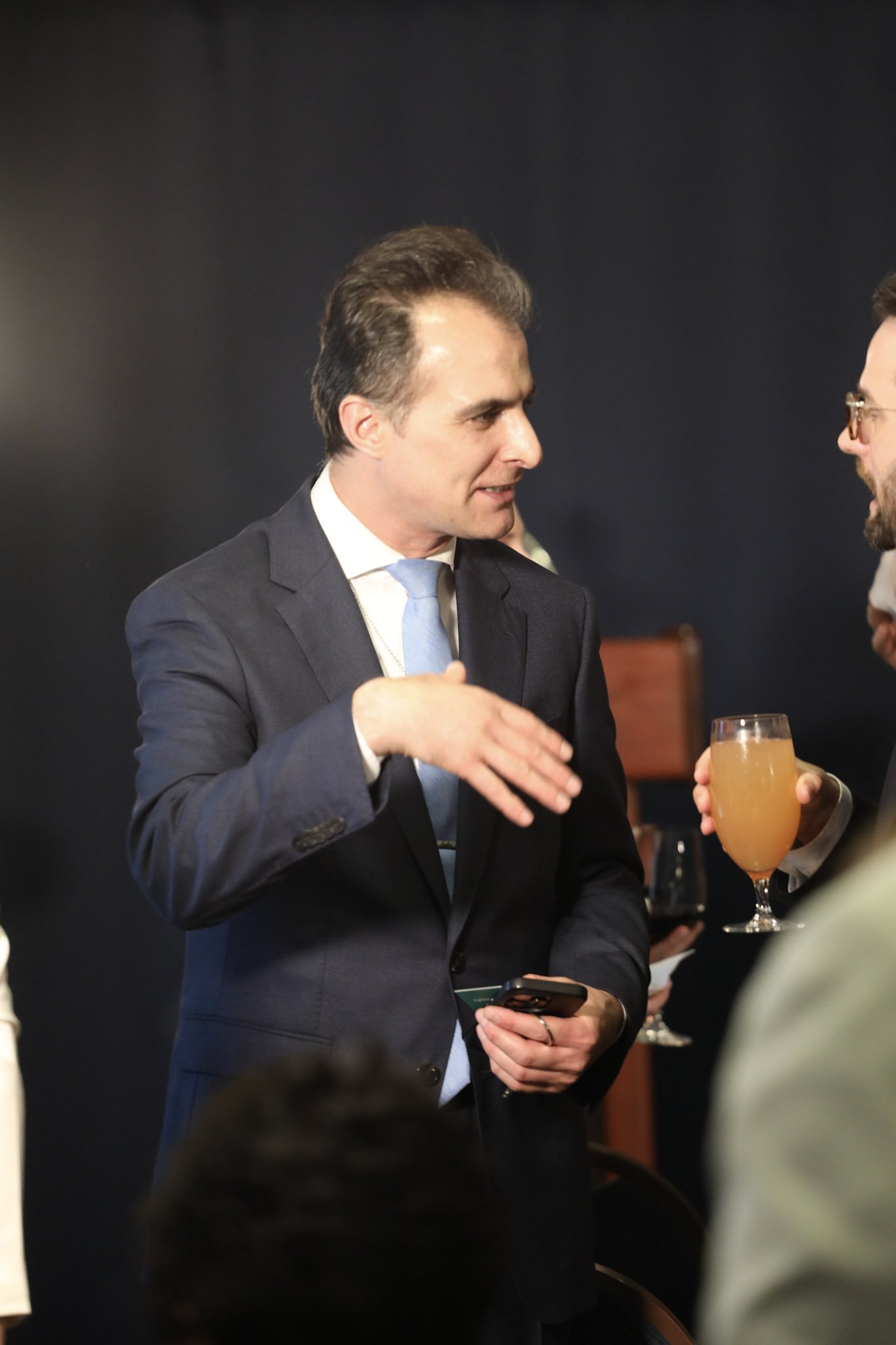
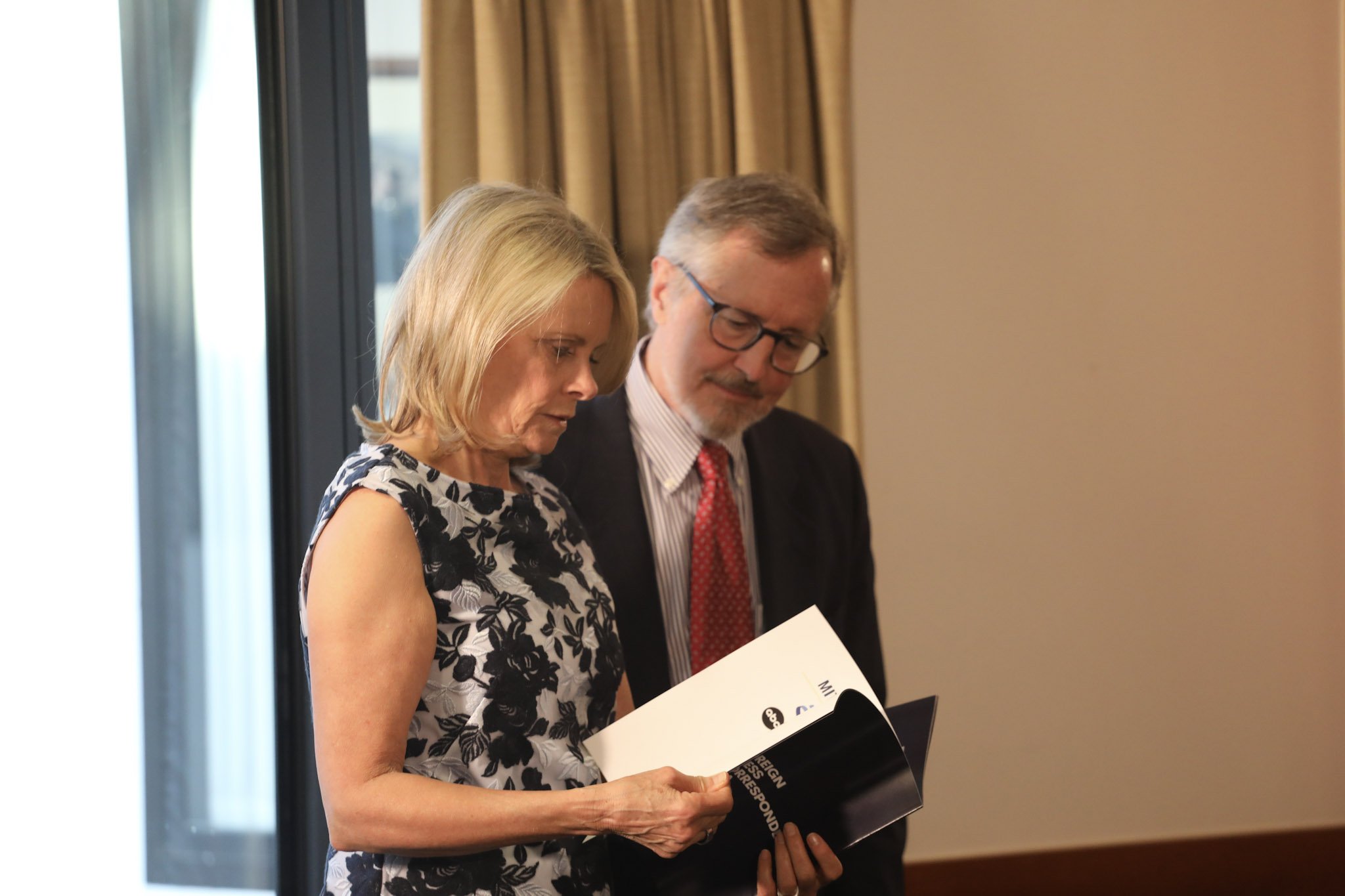
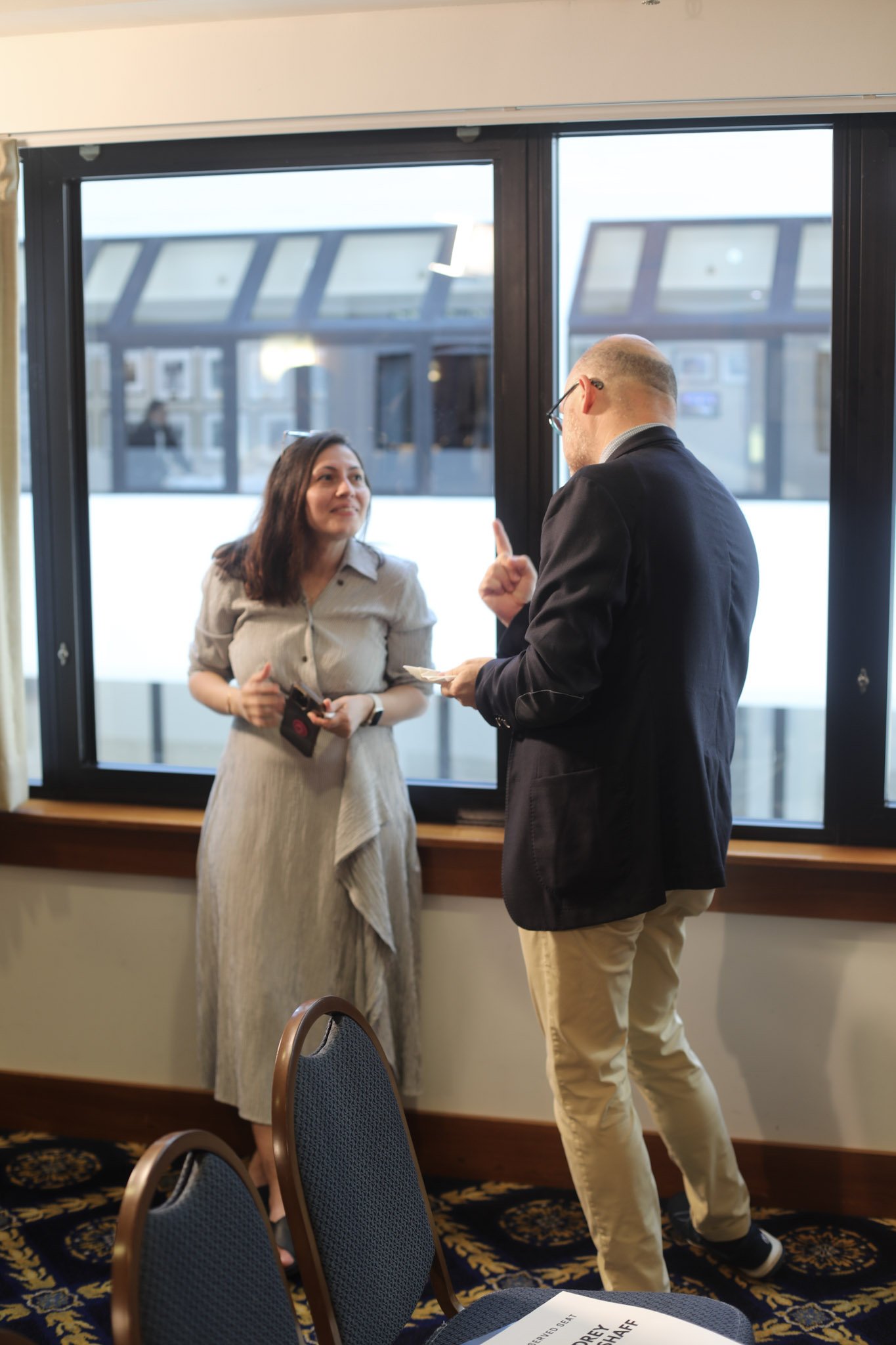
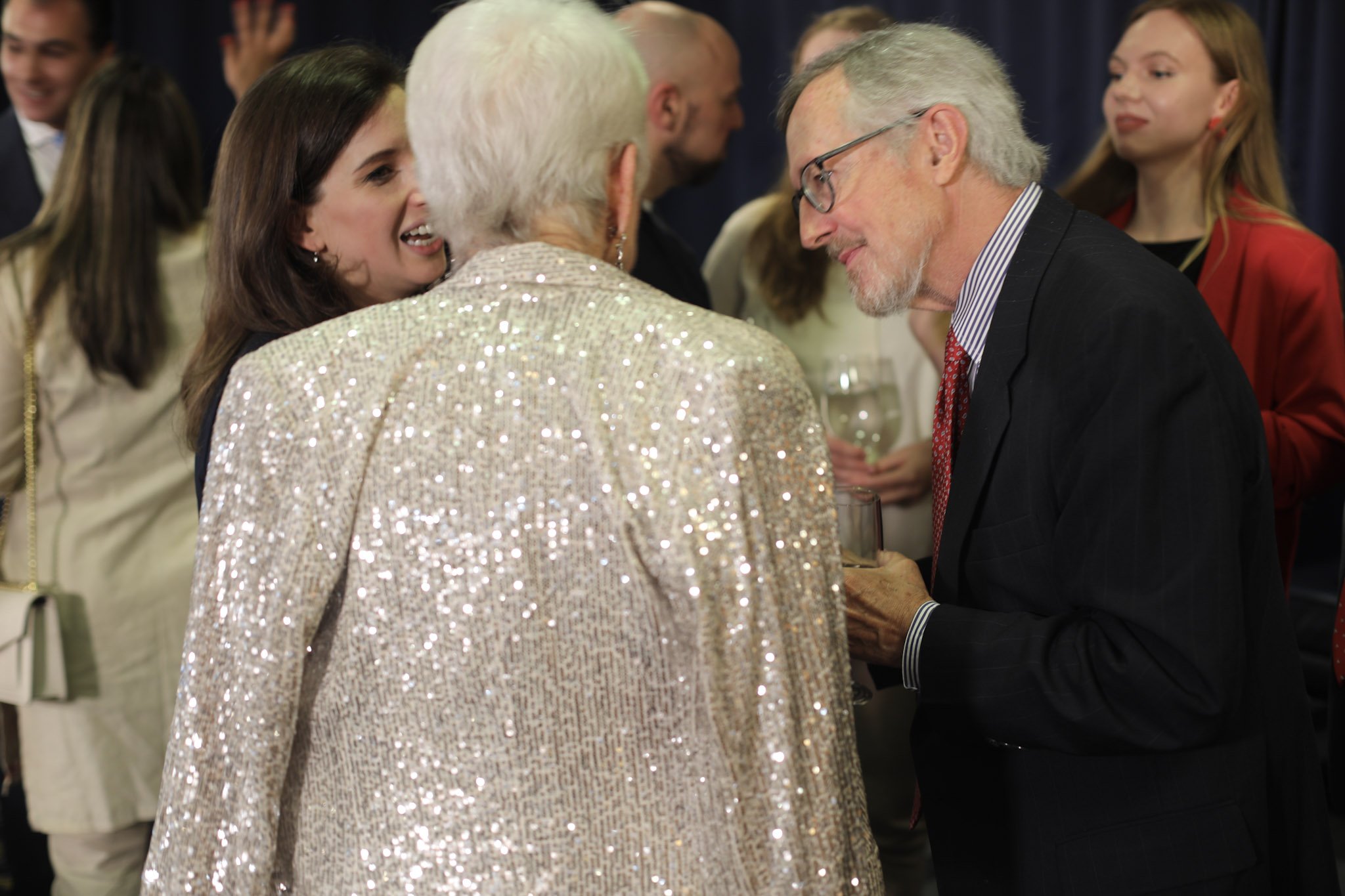
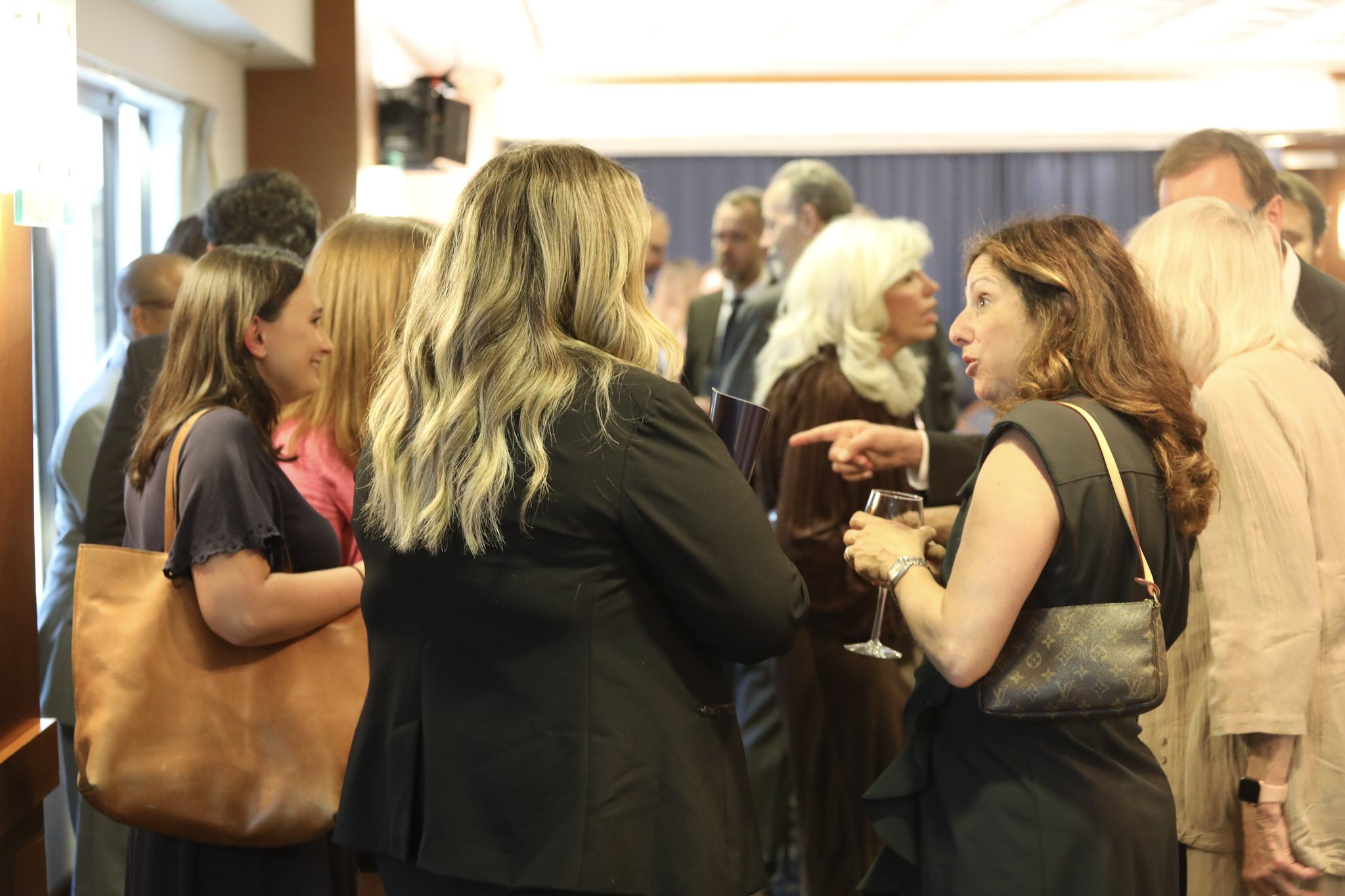
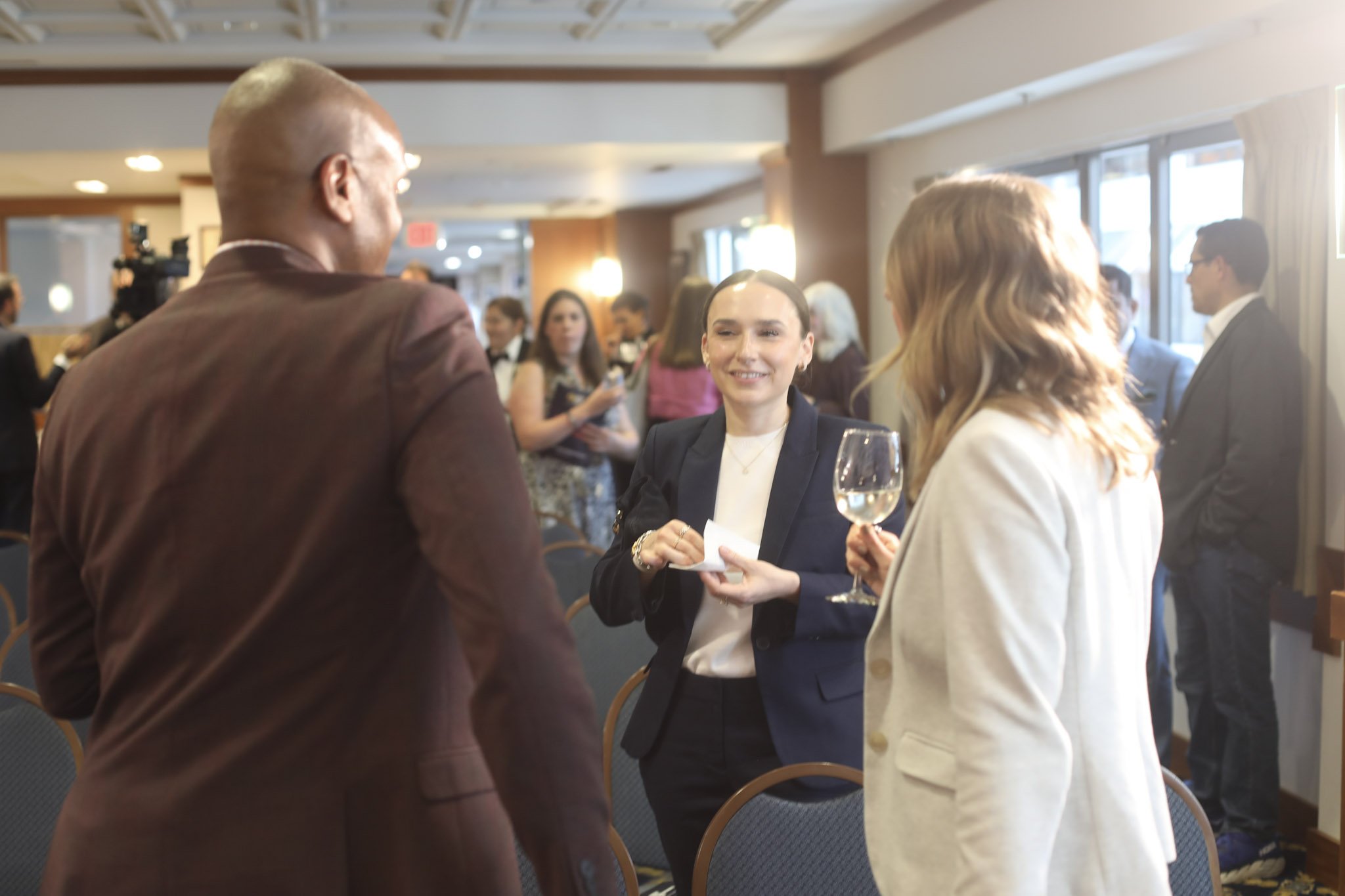
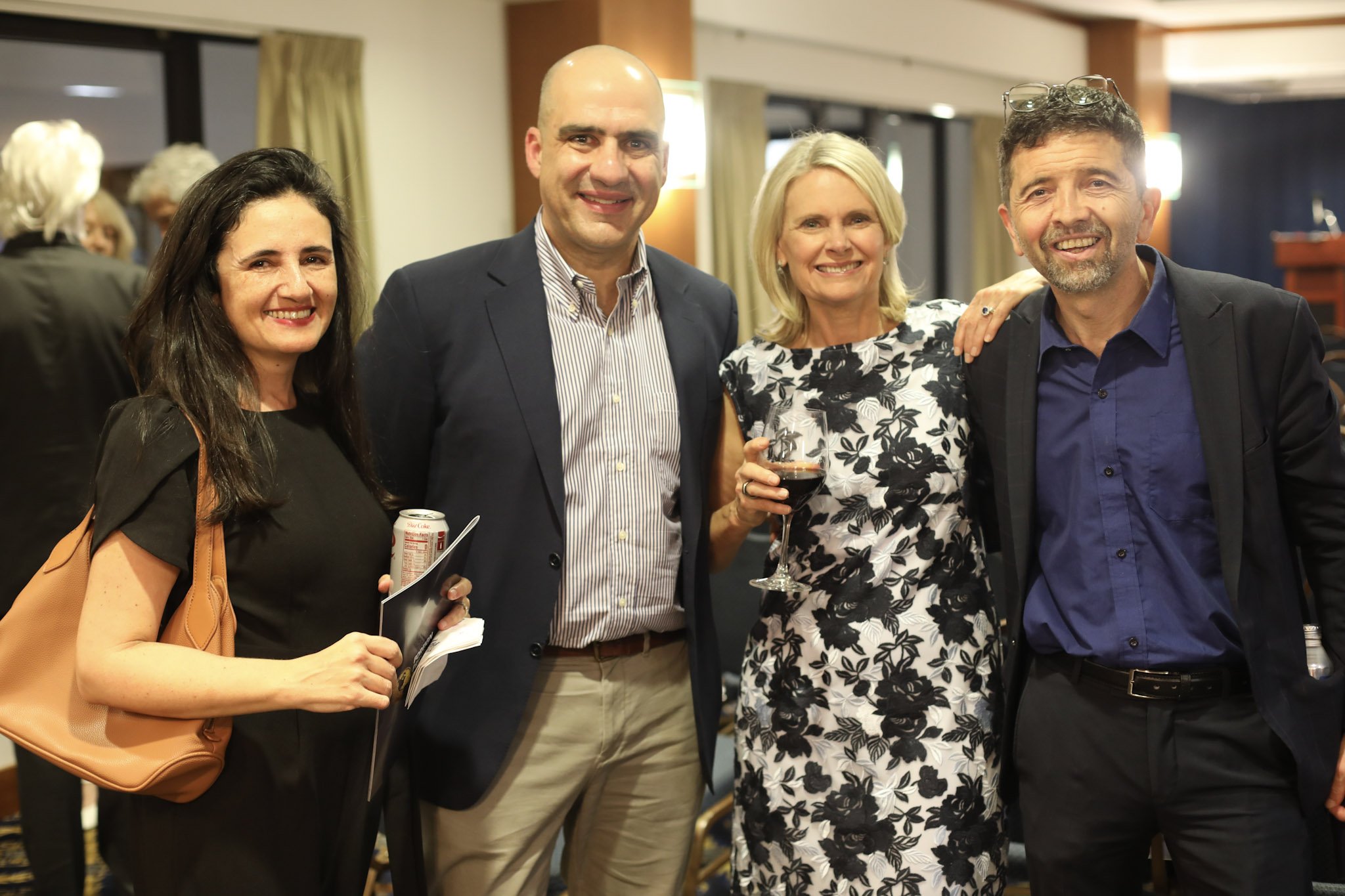
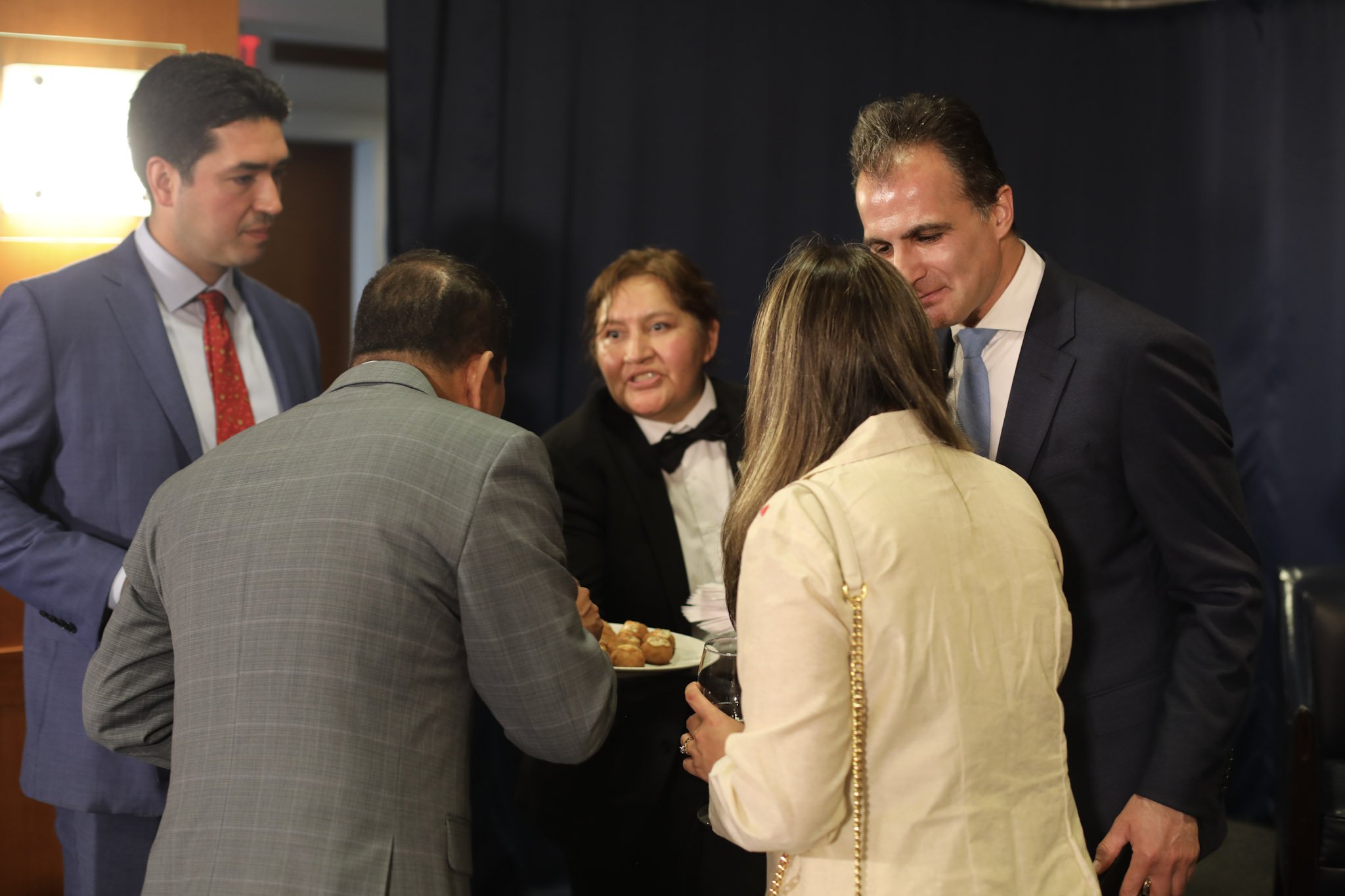
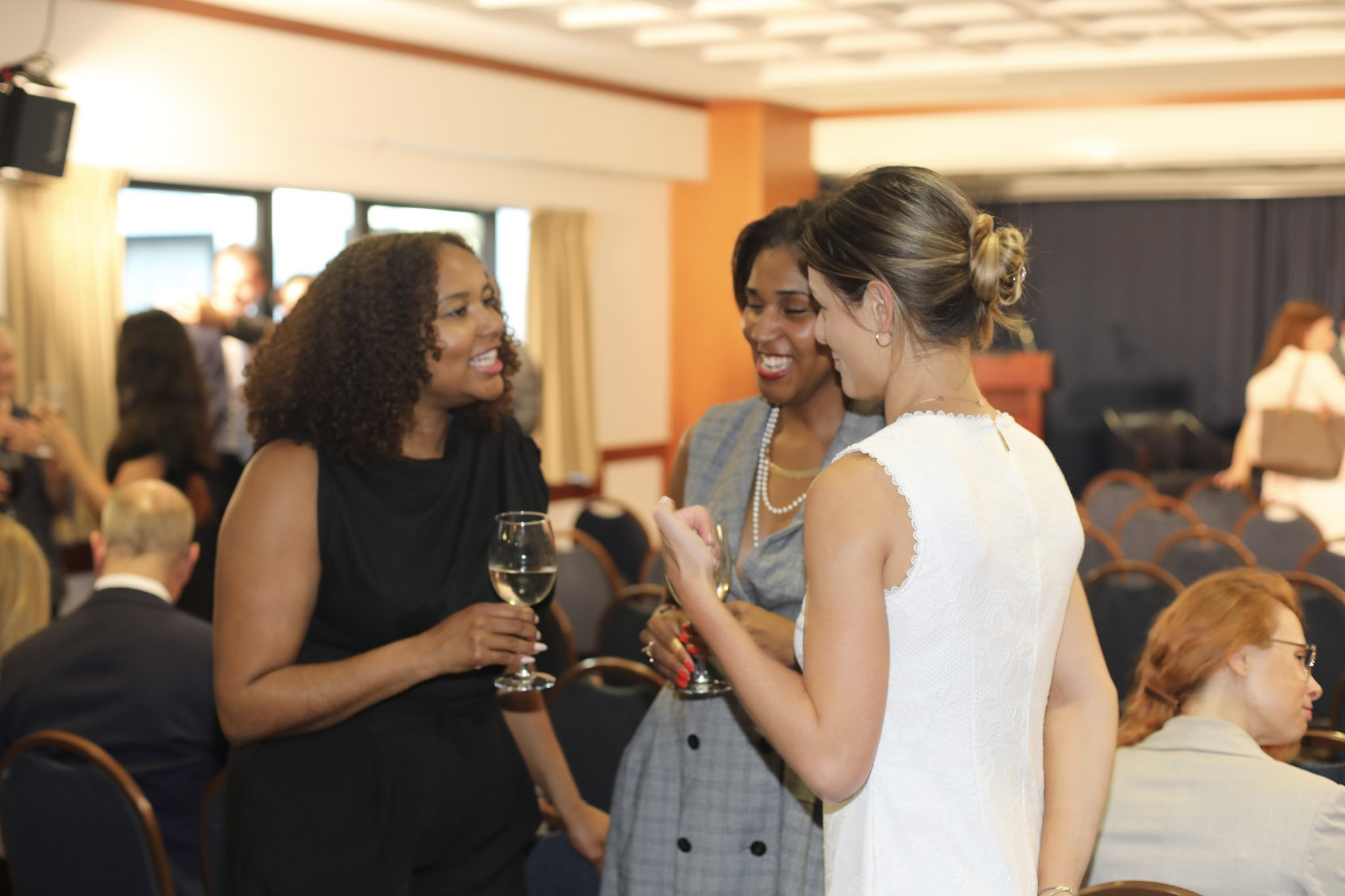
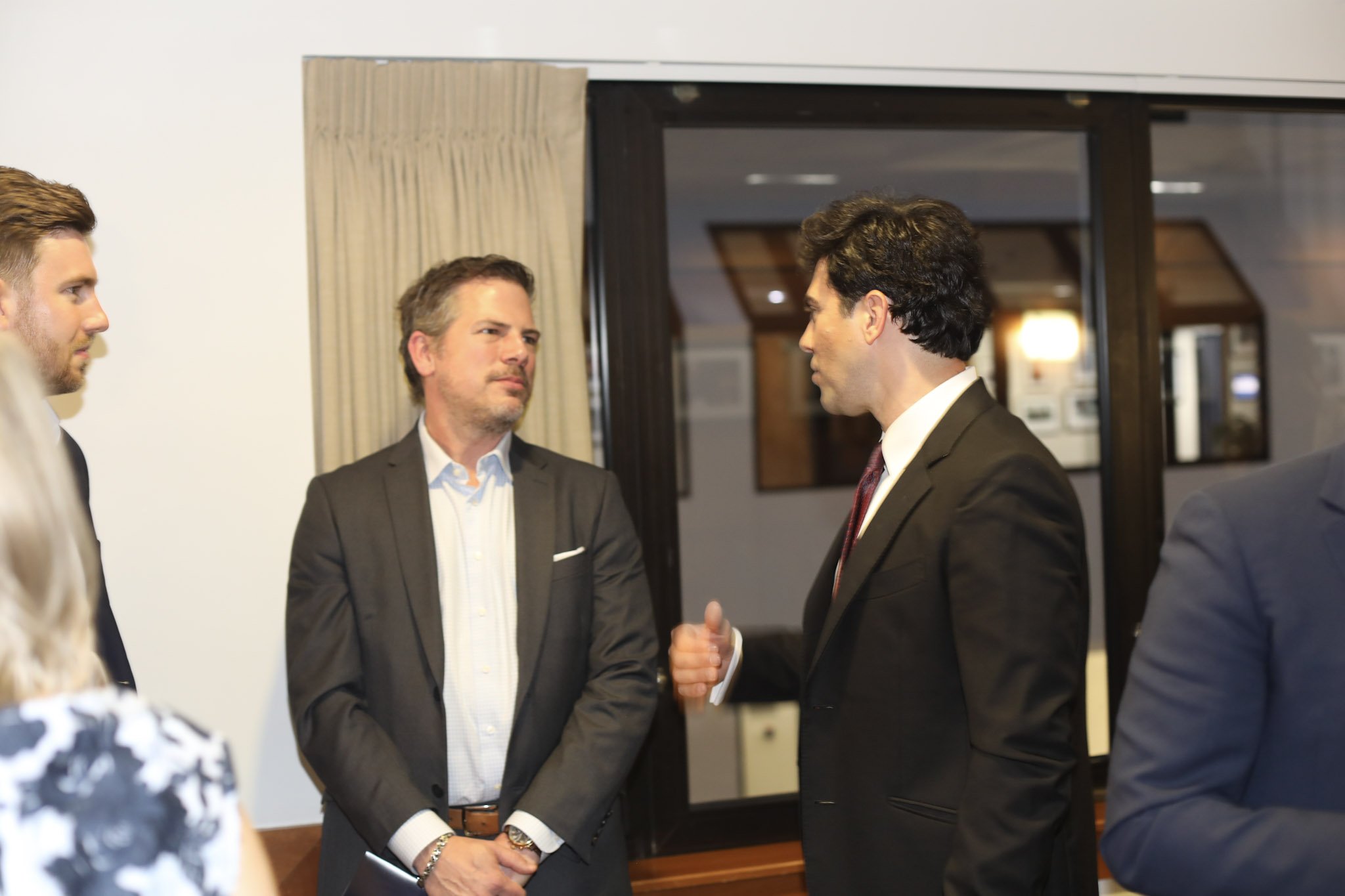
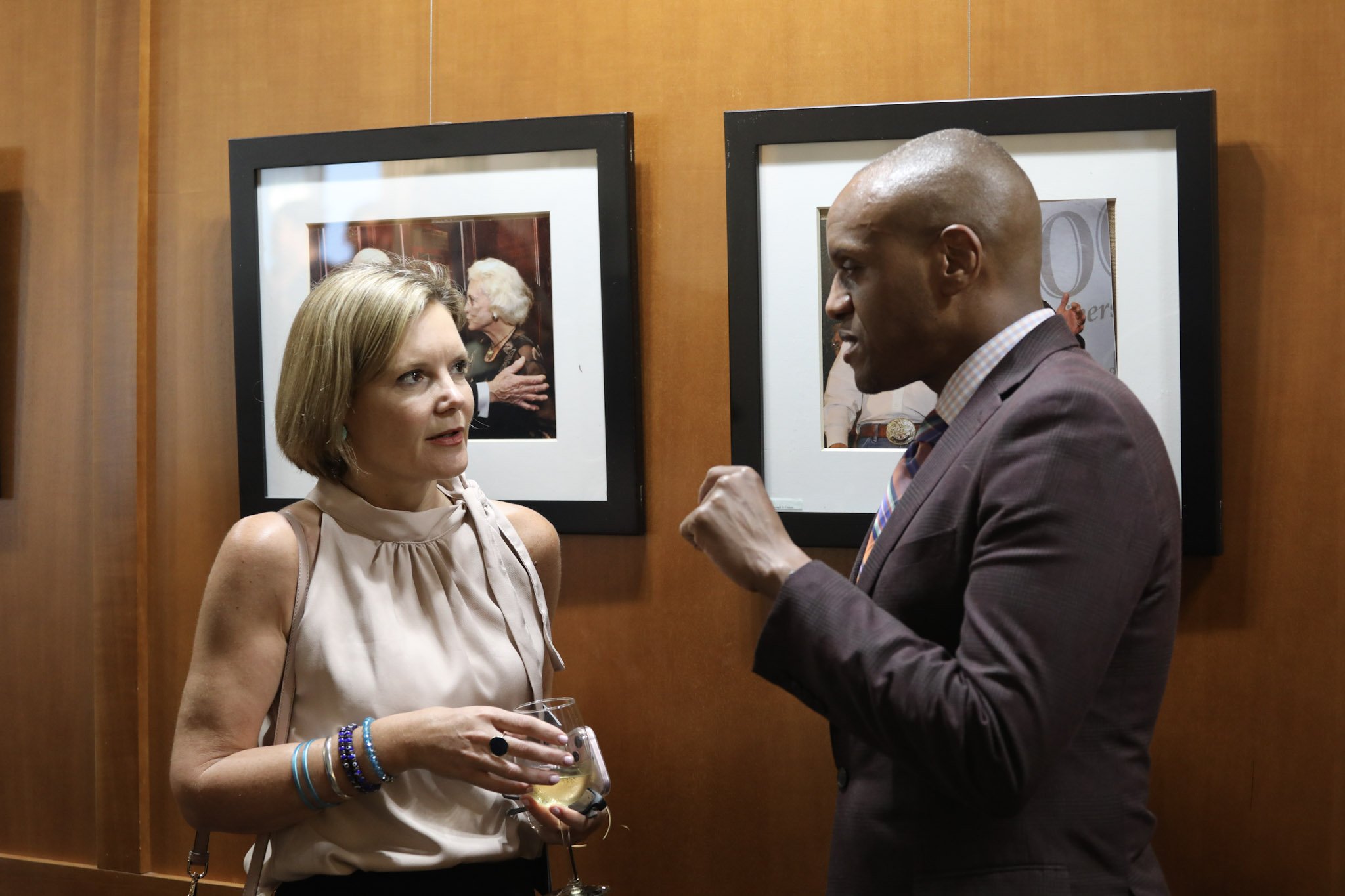

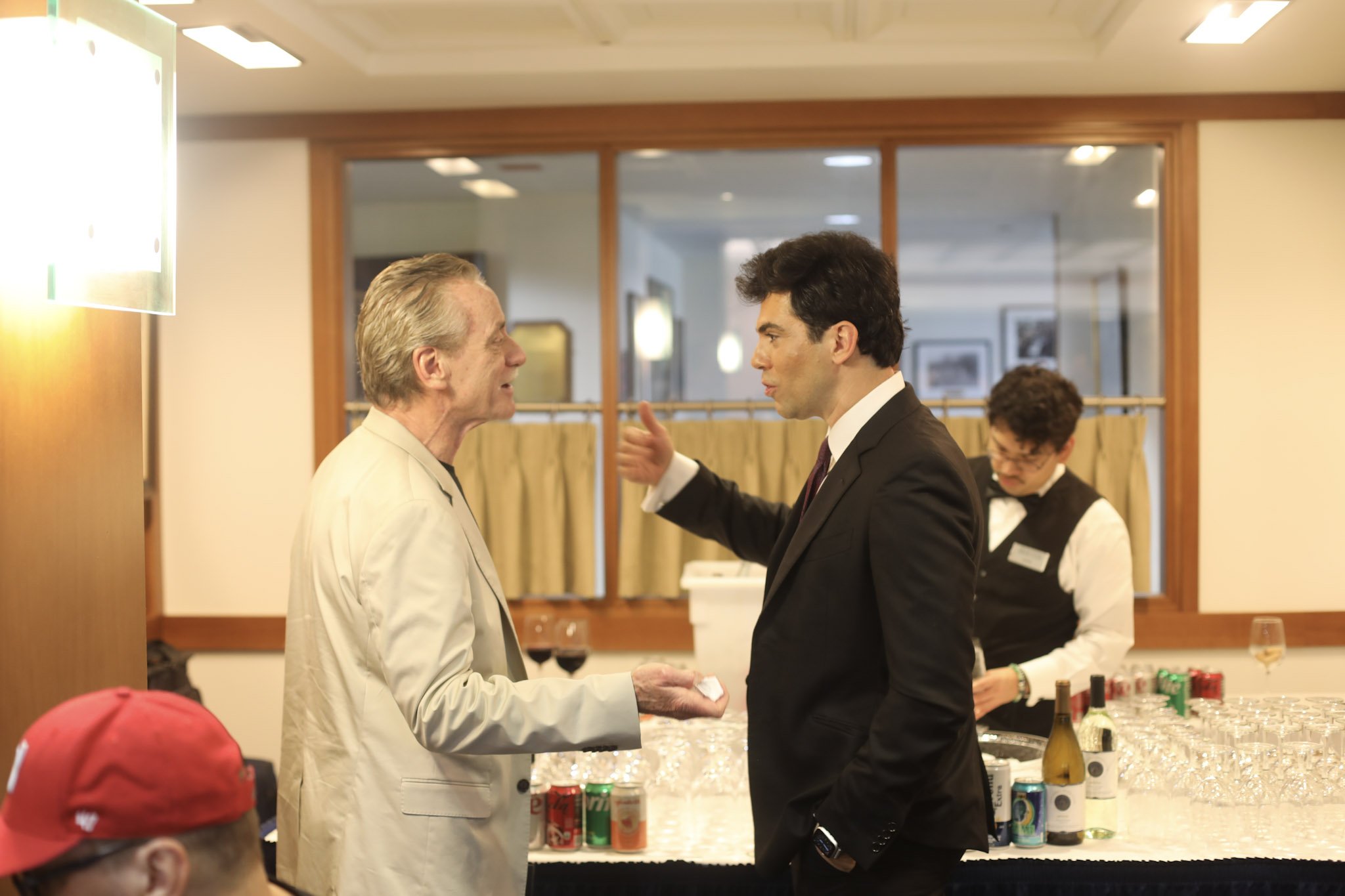
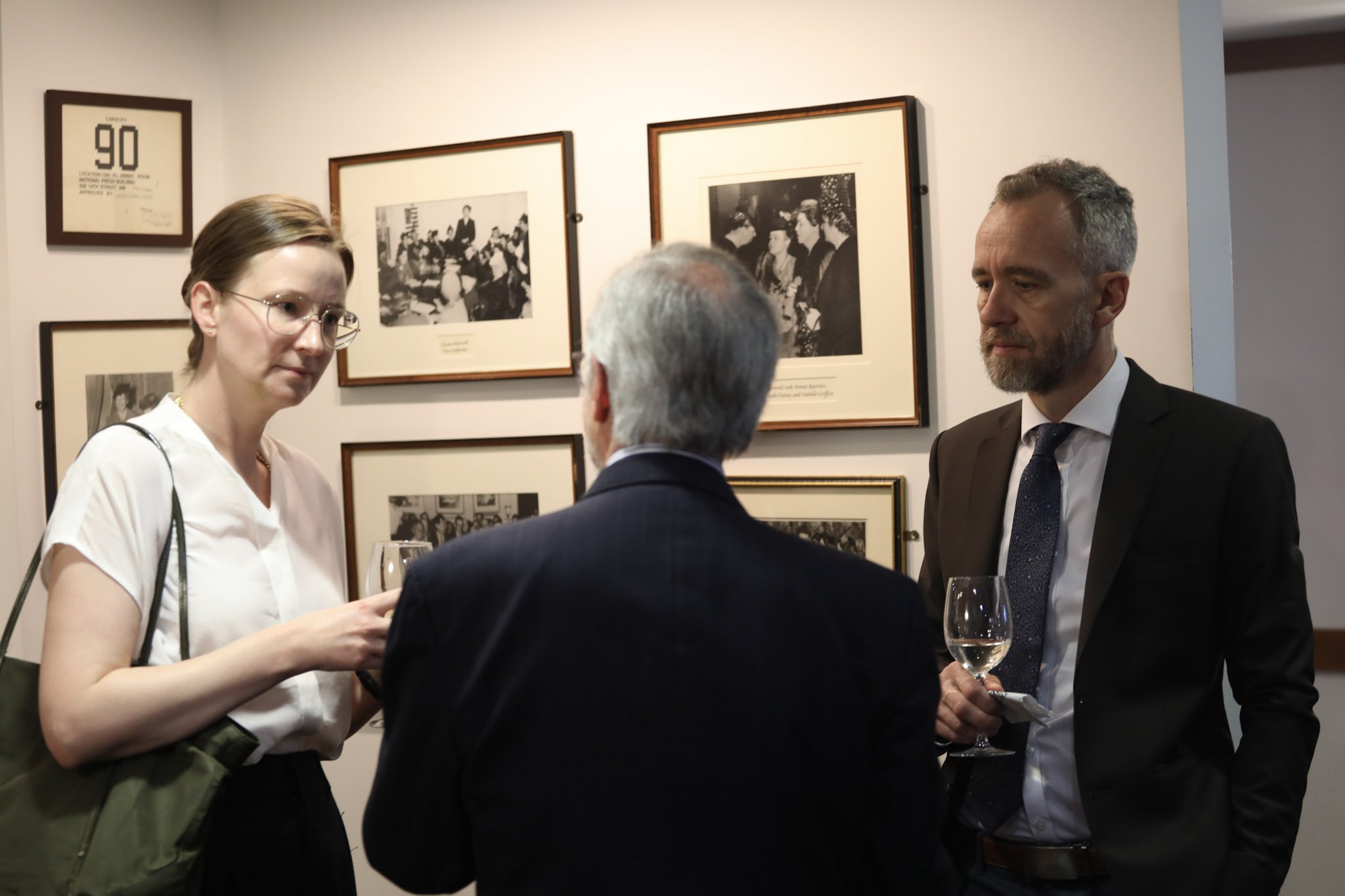
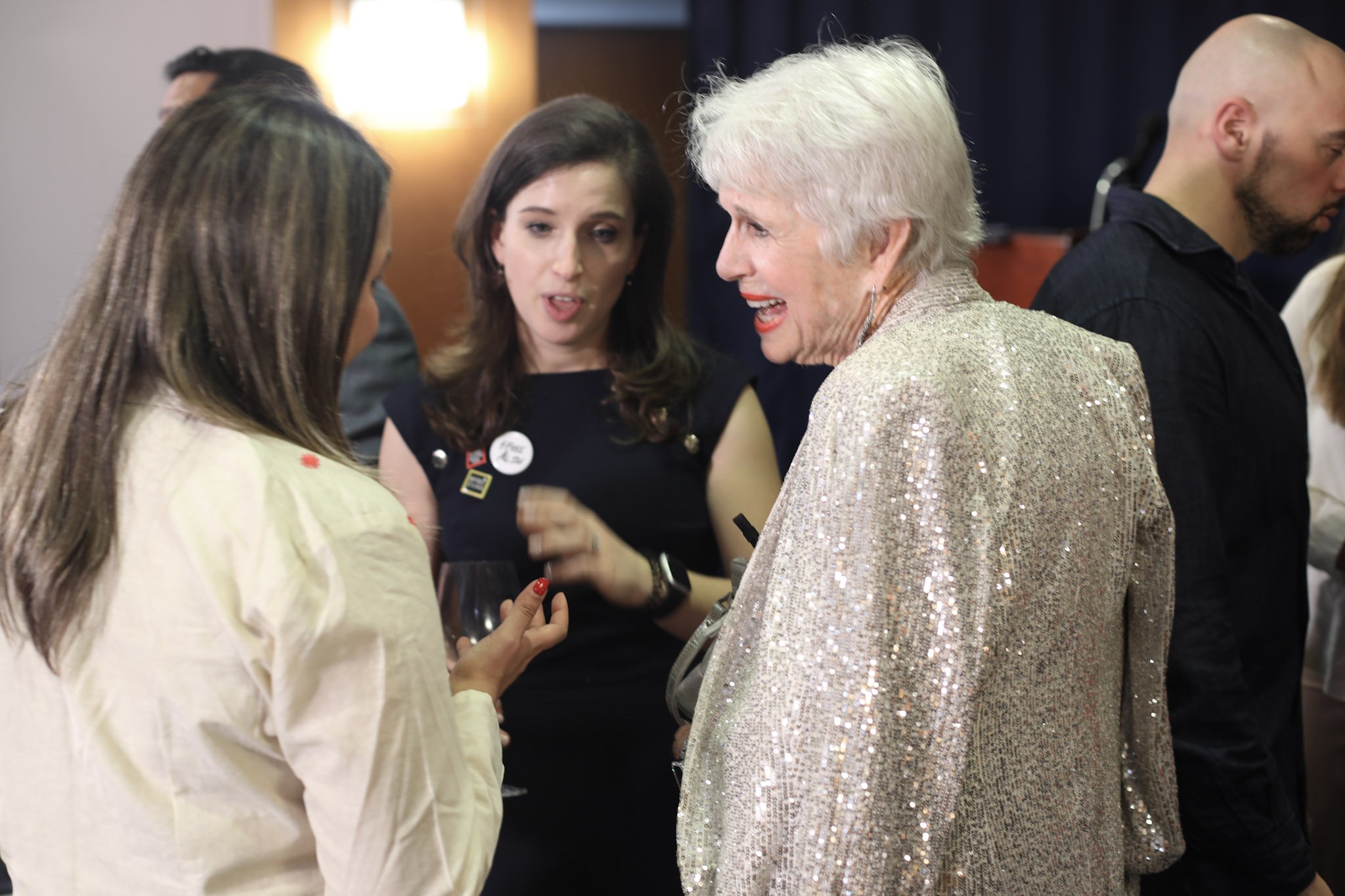
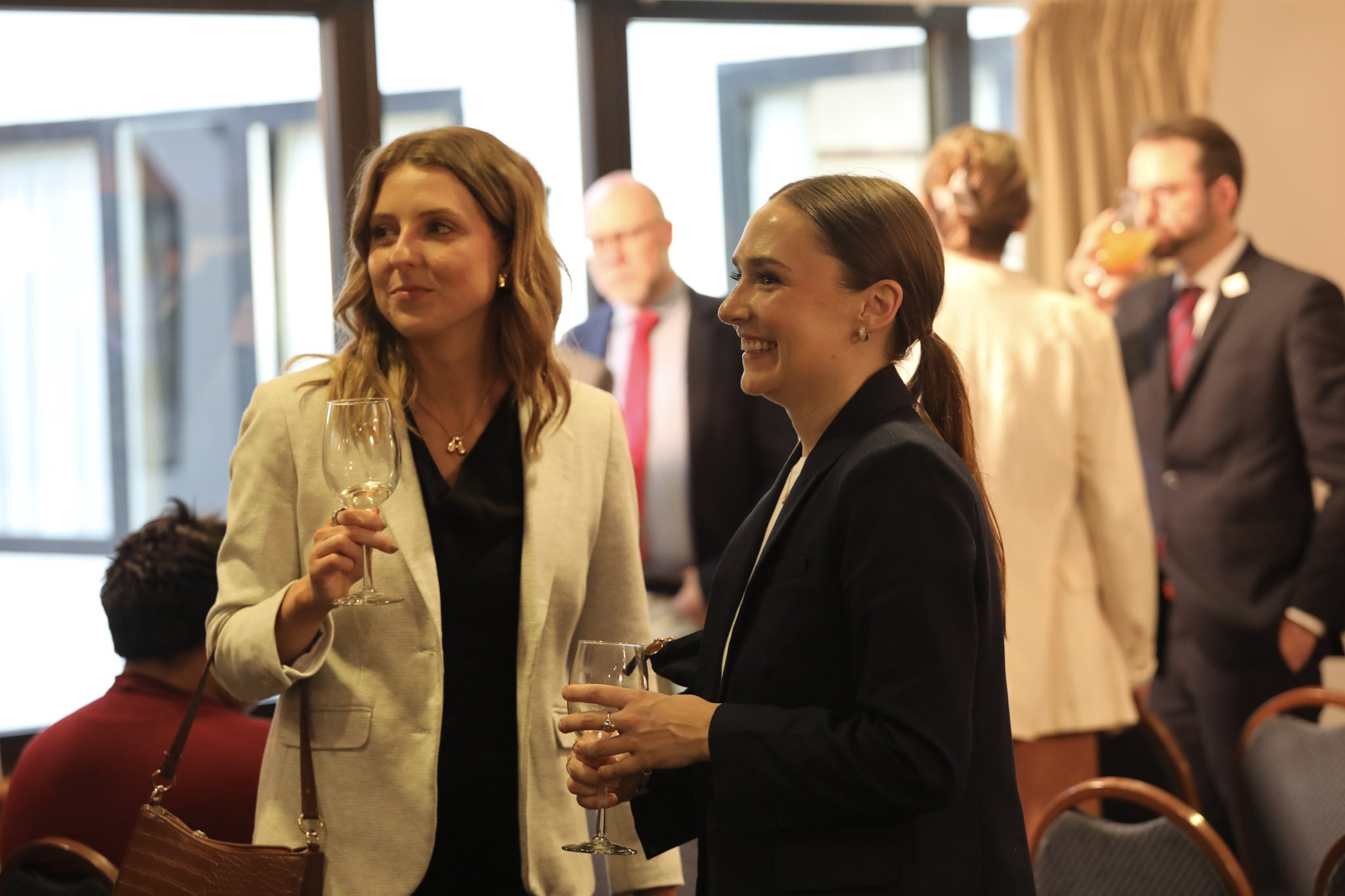

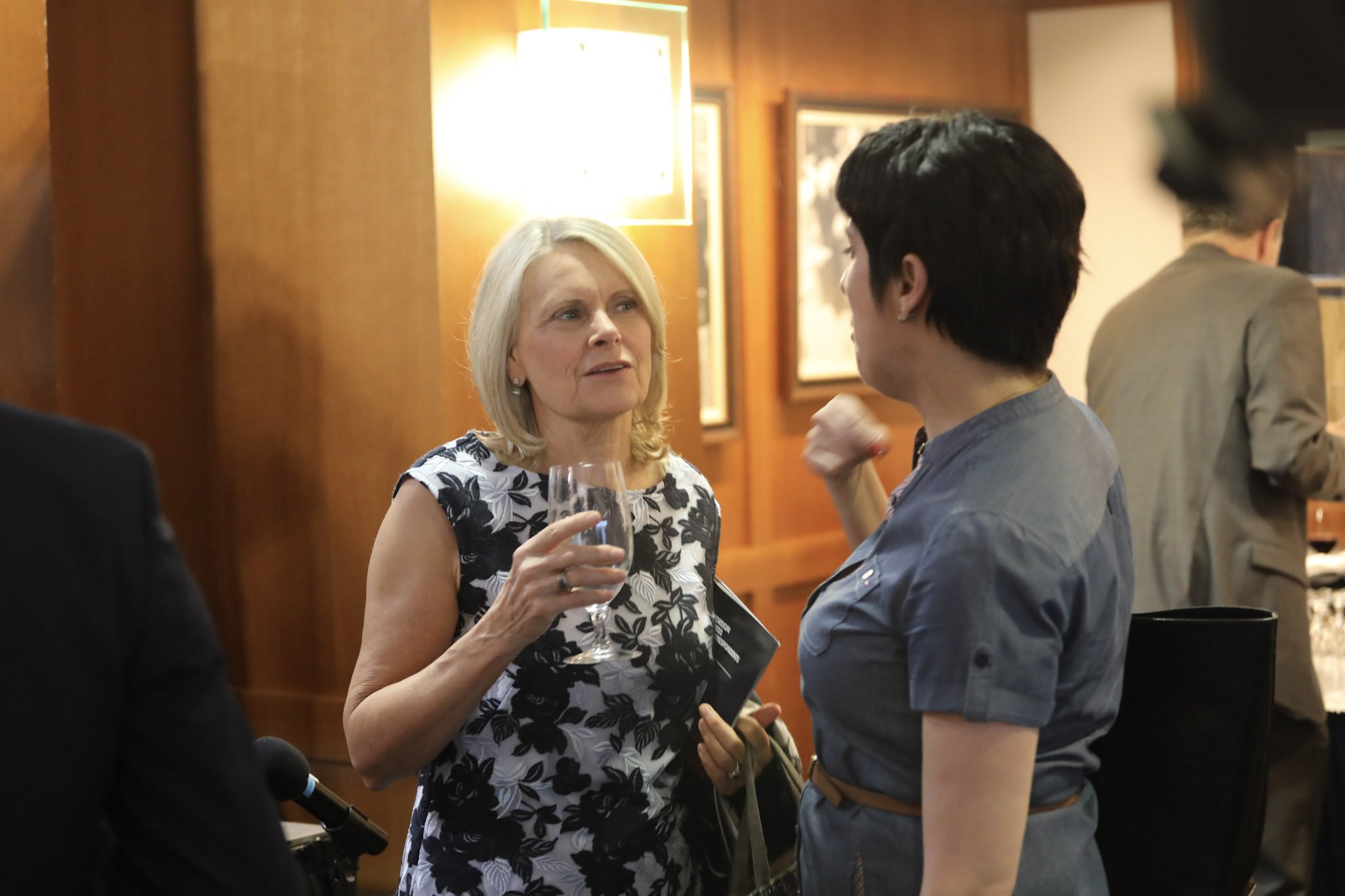
Storer H. (“Bob”) Rowley is a contributing writer for Washington Monthly and writes commentary for the Chicago Tribune, among other outlets. He teaches journalism at the Medill School of Journalism at Northwestern University and has co-directed Medill’s Politics, Policy and Foreign Affairs specialization for graduate students. He is also Adjunct Faculty at Northwestern’s School of Communication and a former Assistant Vice President of Media Relations at the University. Earlier, as an award-winning journalist, Rowley spent 30 years working for the Chicago Tribune (1979-2009), the last seven of them as national editor, and covered stories in more than 50 countries. He also served as a member of the Tribune’s Editorial Board writing about foreign affairs and defense issues, and before that, was a foreign correspondent for 12 years based in Mexico, Canada and Israel. He served as the Tribune’s White House and Pentagon correspondents in Washington, D.C. He has covered wars and conflict, natural disasters, human rights, politics, economics, culture, religion and the human condition around the world. He is Vice President and a member of the board of the Association of Foreign Press Correspondents in the USA.
